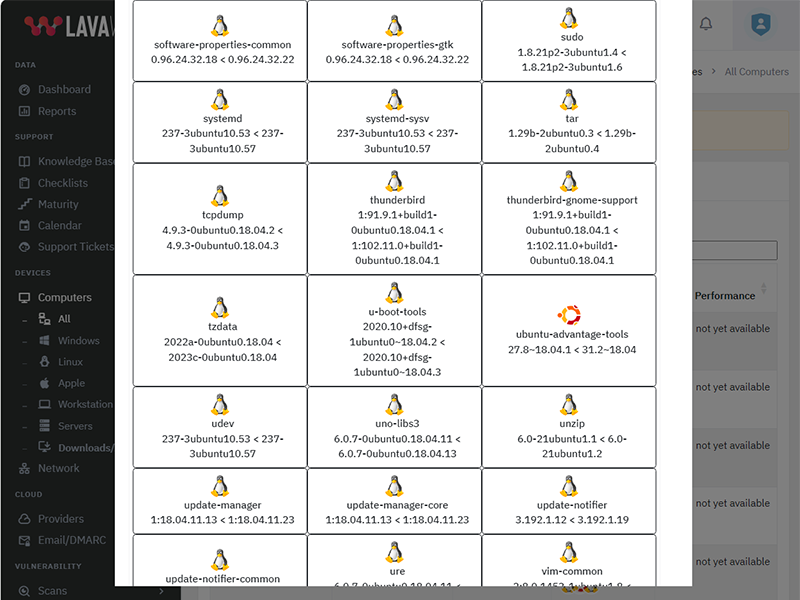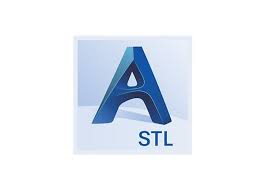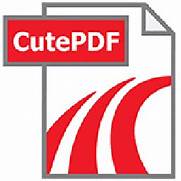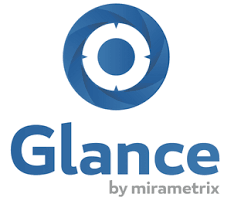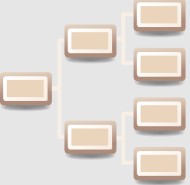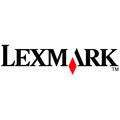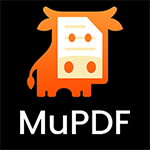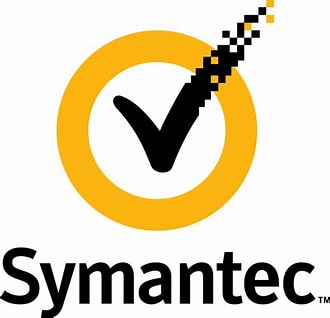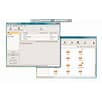
Update Adobe Acrobat Reader to version 25.001.21151
What patches are you missing?
CVE Vulnerabilities for Adobe Acrobat Reader
| CVE | Published | Severity | Details | Exploitability | Impact | Vector |
| CVE‑2023‑44372 | 2023‑11‑16 10:15:19 | HIGH (8) | Adobe Acrobat Reader versions 23.006.20360 (and earlier) and 20.005.30524 (and earlier) are affected by a Use After Free vulnerability that could result in arbitrary code execution in the context of the current user. Exploitation of this issue requires user interaction in that a victim must open a malicious file. | 2 | 6 | LOCAL |
| CVE‑2023‑44371 | 2023‑11‑16 10:15:18 | HIGH (8) | Adobe Acrobat Reader versions 23.006.20360 (and earlier) and 20.005.30524 (and earlier) are affected by a Use After Free vulnerability that could result in arbitrary code execution in the context of the current user. Exploitation of this issue requires user interaction in that a victim must open a malicious file. | 2 | 6 | LOCAL |
| CVE‑2023‑44367 | 2023‑11‑16 10:15:17 | HIGH (8) | Adobe Acrobat Reader versions 23.006.20360 (and earlier) and 20.005.30524 (and earlier) are affected by a Use After Free vulnerability that could result in arbitrary code execution in the context of the current user. Exploitation of this issue requires user interaction in that a victim must open a malicious file. | 2 | 6 | LOCAL |
| CVE‑2023‑44366 | 2023‑11‑16 10:15:17 | HIGH (8) | Adobe Acrobat Reader versions 23.006.20360 (and earlier) and 20.005.30524 (and earlier) are affected by an out-of-bounds write vulnerability that could result in arbitrary code execution in the context of the current user. Exploitation of this issue requires user interaction in that a victim must open a malicious file. | 2 | 6 | LOCAL |
| CVE‑2023‑44365 | 2023‑11‑16 10:15:16 | HIGH (8) | Adobe Acrobat Reader versions 23.006.20360 (and earlier) and 20.005.30524 (and earlier) are affected by an Access of Uninitialized Pointer vulnerability that could result in arbitrary code execution in the context of the current user. Exploitation of this issue requires user interaction in that a victim must open a malicious file. | 2 | 6 | LOCAL |
| CVE‑2023‑44361 | 2023‑11‑16 10:15:16 | MEDIUM (6) | Adobe Acrobat Reader versions 23.006.20360 (and earlier) and 20.005.30524 (and earlier) are affected by a Use After Free vulnerability that could lead to disclosure of sensitive memory. An attacker could leverage this vulnerability to bypass mitigations such as ASLR. Exploitation of this issue requires user interaction in that a victim must open a malicious file. | 2 | 4 | LOCAL |
| CVE‑2023‑44360 | 2023‑11‑16 10:15:15 | MEDIUM (6) | Adobe Acrobat Reader versions 23.006.20360 (and earlier) and 20.005.30524 (and earlier) are affected by an out-of-bounds read vulnerability that could lead to disclosure of sensitive memory. An attacker could leverage this vulnerability to bypass mitigations such as ASLR. Exploitation of this issue requires user interaction in that a victim must open a malicious file. | 2 | 4 | LOCAL |
| CVE‑2023‑44359 | 2023‑11‑16 10:15:14 | HIGH (8) | Adobe Acrobat Reader versions 23.006.20360 (and earlier) and 20.005.30524 (and earlier) are affected by a Use After Free vulnerability that could result in arbitrary code execution in the context of the current user. Exploitation of this issue requires user interaction in that a victim must open a malicious file. | 2 | 6 | LOCAL |
| CVE‑2023‑44358 | 2023‑11‑16 10:15:14 | MEDIUM (6) | Adobe Acrobat Reader versions 23.006.20360 (and earlier) and 20.005.30524 (and earlier) are affected by an out-of-bounds read vulnerability that could lead to disclosure of sensitive memory. An attacker could leverage this vulnerability to bypass mitigations such as ASLR. Exploitation of this issue requires user interaction in that a victim must open a malicious file. | 2 | 4 | LOCAL |
| CVE‑2023‑44357 | 2023‑11‑16 10:15:13 | MEDIUM (6) | Adobe Acrobat Reader versions 23.006.20360 (and earlier) and 20.005.30524 (and earlier) are affected by an out-of-bounds read vulnerability that could lead to disclosure of sensitive memory. An attacker could leverage this vulnerability to bypass mitigations such as ASLR. Exploitation of this issue requires user interaction in that a victim must open a malicious file. | 2 | 4 | LOCAL |
| CVE‑2023‑44356 | 2023‑11‑16 10:15:13 | MEDIUM (6) | Adobe Acrobat Reader versions 23.006.20360 (and earlier) and 20.005.30524 (and earlier) are affected by an out-of-bounds read vulnerability that could lead to disclosure of sensitive memory. An attacker could leverage this vulnerability to bypass mitigations such as ASLR. Exploitation of this issue requires user interaction in that a victim must open a malicious file. | 2 | 4 | LOCAL |
| CVE‑2023‑44348 | 2023‑11‑16 10:15:12 | MEDIUM (6) | Adobe Acrobat Reader versions 23.006.20360 (and earlier) and 20.005.30524 (and earlier) are affected by an out-of-bounds read vulnerability that could lead to disclosure of sensitive memory. An attacker could leverage this vulnerability to bypass mitigations such as ASLR. Exploitation of this issue requires user interaction in that a victim must open a malicious file. | 2 | 4 | LOCAL |
| CVE‑2023‑44340 | 2023‑11‑16 10:15:11 | MEDIUM (6) | Adobe Acrobat Reader versions 23.006.20360 (and earlier) and 20.005.30524 (and earlier) are affected by an out-of-bounds read vulnerability that could lead to disclosure of sensitive memory. An attacker could leverage this vulnerability to bypass mitigations such as ASLR. Exploitation of this issue requires user interaction in that a victim must open a malicious file. | 2 | 4 | LOCAL |
| CVE‑2023‑44339 | 2023‑11‑16 10:15:11 | MEDIUM (6) | Adobe Acrobat Reader versions 23.006.20360 (and earlier) and 20.005.30524 (and earlier) are affected by an out-of-bounds read vulnerability that could lead to disclosure of sensitive memory. An attacker could leverage this vulnerability to bypass mitigations such as ASLR. Exploitation of this issue requires user interaction in that a victim must open a malicious file. | 2 | 4 | LOCAL |
| CVE‑2023‑44338 | 2023‑11‑16 10:15:10 | HIGH (8) | Adobe Acrobat Reader versions 23.006.20360 (and earlier) and 20.005.30524 (and earlier) are affected by an out-of-bounds read vulnerability when parsing a crafted file, which could result in a read past the end of an allocated memory structure. An attacker could leverage this vulnerability to execute code in the context of the current user. Exploitation of this issue requires user interaction in that a victim must open a malicious file. | 2 | 6 | LOCAL |
| CVE‑2023‑44337 | 2023‑11‑16 10:15:10 | HIGH (8) | Adobe Acrobat Reader versions 23.006.20360 (and earlier) and 20.005.30524 (and earlier) are affected by an out-of-bounds read vulnerability when parsing a crafted file, which could result in a read past the end of an allocated memory structure. An attacker could leverage this vulnerability to execute code in the context of the current user. Exploitation of this issue requires user interaction in that a victim must open a malicious file. | 2 | 6 | LOCAL |
| CVE‑2023‑44336 | 2023‑11‑16 10:15:09 | HIGH (8) | Adobe Acrobat Reader versions 23.006.20360 (and earlier) and 20.005.30524 (and earlier) are affected by a Use After Free vulnerability that could result in arbitrary code execution in the context of the current user. Exploitation of this issue requires user interaction in that a victim must open a malicious file. | 2 | 6 | LOCAL |
| CVE‑2023‑38248 | 2023‑08‑10 14:15:15 | MEDIUM (6) | Adobe Acrobat Reader versions 23.003.20244 (and earlier) and 20.005.30467 (and earlier) are affected by an out-of-bounds read vulnerability that could lead to disclosure of sensitive memory. An attacker could leverage this vulnerability to bypass mitigations such as ASLR. Exploitation of this issue requires user interaction in that a victim must open a malicious file. | 2 | 4 | LOCAL |
| CVE‑2023‑38247 | 2023‑08‑10 14:15:15 | MEDIUM (6) | Adobe Acrobat Reader versions 23.003.20244 (and earlier) and 20.005.30467 (and earlier) are affected by an out-of-bounds read vulnerability that could lead to disclosure of sensitive memory. An attacker could leverage this vulnerability to bypass mitigations such as ASLR. Exploitation of this issue requires user interaction in that a victim must open a malicious file. | 2 | 4 | LOCAL |
| CVE‑2023‑38246 | 2023‑08‑10 14:15:15 | HIGH (8) | Adobe Acrobat Reader versions 23.003.20244 (and earlier) and 20.005.30467 (and earlier) are affected by an Access of Uninitialized Pointer vulnerability that could result in arbitrary code execution in the context of the current user. Exploitation of this issue requires user interaction in that a victim must open a malicious file. | 2 | 6 | LOCAL |
| CVE‑2023‑38245 | 2023‑08‑10 14:15:15 | MEDIUM (6) | Adobe Acrobat Reader versions 23.003.20244 (and earlier) and 20.005.30467 (and earlier) are affected by an Information Disclosure vulnerability. An unauthenticated attacker could leverage this vulnerability to obtain NTLMv2 credentials. Exploitation of this issue requires user interaction in that a victim must open a maliciously crafted Microsoft Office file, or visit an attacker controlled web page. | 2 | 4 | LOCAL |
| CVE‑2023‑38244 | 2023‑08‑10 14:15:15 | MEDIUM (6) | Adobe Acrobat Reader versions 23.003.20244 (and earlier) and 20.005.30467 (and earlier) are affected by an out-of-bounds read vulnerability that could lead to disclosure of sensitive memory. An attacker could leverage this vulnerability to bypass mitigations such as ASLR. Exploitation of this issue requires user interaction in that a victim must open a malicious file. | 2 | 4 | LOCAL |
| CVE‑2023‑38243 | 2023‑08‑10 14:15:15 | MEDIUM (6) | Adobe Acrobat Reader versions 23.003.20244 (and earlier) and 20.005.30467 (and earlier) are affected by a Use-After-Free vulnerability that could lead to disclosure of sensitive memory. An attacker could leverage this vulnerability to bypass mitigations such as ASLR. Exploitation of this issue requires user interaction in that a victim must open a malicious file. | 2 | 4 | LOCAL |
| CVE‑2023‑38242 | 2023‑08‑10 14:15:14 | MEDIUM (6) | Adobe Acrobat Reader versions 23.003.20244 (and earlier) and 20.005.30467 (and earlier) are affected by an out-of-bounds read vulnerability that could lead to disclosure of sensitive memory. An attacker could leverage this vulnerability to bypass mitigations such as ASLR. Exploitation of this issue requires user interaction in that a victim must open a malicious file. | 2 | 4 | LOCAL |
| CVE‑2023‑38241 | 2023‑08‑10 14:15:14 | MEDIUM (6) | Adobe Acrobat Reader versions 23.003.20244 (and earlier) and 20.005.30467 (and earlier) are affected by an out-of-bounds read vulnerability that could lead to disclosure of sensitive memory. An attacker could leverage this vulnerability to bypass mitigations such as ASLR. Exploitation of this issue requires user interaction in that a victim must open a malicious file. | 2 | 4 | LOCAL |
| CVE‑2023‑38240 | 2023‑08‑10 14:15:14 | MEDIUM (6) | Adobe Acrobat Reader versions 23.003.20244 (and earlier) and 20.005.30467 (and earlier) are affected by an out-of-bounds read vulnerability that could lead to disclosure of sensitive memory. An attacker could leverage this vulnerability to bypass mitigations such as ASLR. Exploitation of this issue requires user interaction in that a victim must open a malicious file. | 2 | 4 | LOCAL |
| CVE‑2023‑38239 | 2023‑08‑10 14:15:14 | MEDIUM (6) | Adobe Acrobat Reader versions 23.003.20244 (and earlier) and 20.005.30467 (and earlier) are affected by an out-of-bounds read vulnerability that could lead to disclosure of sensitive memory. An attacker could leverage this vulnerability to bypass mitigations such as ASLR. Exploitation of this issue requires user interaction in that a victim must open a malicious file. | 2 | 4 | LOCAL |
| CVE‑2023‑38238 | 2023‑08‑10 14:15:14 | MEDIUM (6) | Adobe Acrobat Reader versions 23.003.20244 (and earlier) and 20.005.30467 (and earlier) are affected by a Use-After-Free vulnerability that could lead to disclosure of sensitive memory. An attacker could leverage this vulnerability to bypass mitigations such as ASLR. Exploitation of this issue requires user interaction in that a victim must open a malicious file. | 2 | 4 | LOCAL |
| CVE‑2023‑38237 | 2023‑08‑10 14:15:14 | MEDIUM (6) | Adobe Acrobat Reader versions 23.003.20244 (and earlier) and 20.005.30467 (and earlier) are affected by an out-of-bounds read vulnerability that could lead to disclosure of sensitive memory. An attacker could leverage this vulnerability to bypass mitigations such as ASLR. Exploitation of this issue requires user interaction in that a victim must open a malicious file. | 2 | 4 | LOCAL |
| CVE‑2023‑38236 | 2023‑08‑10 14:15:14 | MEDIUM (6) | Adobe Acrobat Reader versions 23.003.20244 (and earlier) and 20.005.30467 (and earlier) are affected by an out-of-bounds read vulnerability that could lead to disclosure of sensitive memory. An attacker could leverage this vulnerability to bypass mitigations such as ASLR. Exploitation of this issue requires user interaction in that a victim must open a malicious file. | 2 | 4 | LOCAL |
| CVE‑2023‑38235 | 2023‑08‑10 14:15:14 | MEDIUM (6) | Adobe Acrobat Reader versions 23.003.20244 (and earlier) and 20.005.30467 (and earlier) are affected by an out-of-bounds read vulnerability that could lead to disclosure of sensitive memory. An attacker could leverage this vulnerability to bypass mitigations such as ASLR. Exploitation of this issue requires user interaction in that a victim must open a malicious file. | 2 | 4 | LOCAL |
| CVE‑2023‑38234 | 2023‑08‑10 14:15:14 | HIGH (8) | Adobe Acrobat Reader versions 23.003.20244 (and earlier) and 20.005.30467 (and earlier) are affected by an Access of Uninitialized Pointer vulnerability that could result in arbitrary code execution in the context of the current user. Exploitation of this issue requires user interaction in that a victim must open a malicious file. | 2 | 6 | LOCAL |
| CVE‑2023‑38233 | 2023‑08‑10 14:15:13 | HIGH (8) | Adobe Acrobat Reader versions 23.003.20244 (and earlier) and 20.005.30467 (and earlier) are affected by an out-of-bounds write vulnerability that could result in arbitrary code execution in the context of the current user. Exploitation of this issue requires user interaction in that a victim must open a malicious file. | 2 | 6 | LOCAL |
| CVE‑2023‑38232 | 2023‑08‑10 14:15:13 | MEDIUM (6) | Adobe Acrobat Reader versions 23.003.20244 (and earlier) and 20.005.30467 (and earlier) are affected by an out-of-bounds read vulnerability that could lead to disclosure of sensitive memory. An attacker could leverage this vulnerability to bypass mitigations such as ASLR. Exploitation of this issue requires user interaction in that a victim must open a malicious file. | 2 | 4 | LOCAL |
| CVE‑2023‑38231 | 2023‑08‑10 14:15:13 | HIGH (8) | Adobe Acrobat Reader versions 23.003.20244 (and earlier) and 20.005.30467 (and earlier) are affected by an out-of-bounds write vulnerability that could result in arbitrary code execution in the context of the current user. Exploitation of this issue requires user interaction in that a victim must open a malicious file. | 2 | 6 | LOCAL |
| CVE‑2023‑38230 | 2023‑08‑10 14:15:13 | MEDIUM (6) | Adobe Acrobat Reader versions 23.003.20244 (and earlier) and 20.005.30467 (and earlier) are affected by a Use-After-Free vulnerability that could lead to disclosure of sensitive memory. An attacker could leverage this vulnerability to bypass mitigations such as ASLR. Exploitation of this issue requires user interaction in that a victim must open a malicious file. | 2 | 4 | LOCAL |
| CVE‑2023‑38229 | 2023‑08‑10 14:15:13 | HIGH (8) | Adobe Acrobat Reader versions 23.003.20244 (and earlier) and 20.005.30467 (and earlier) are affected by an out-of-bounds read vulnerability that could result in arbitrary code execution in the context of the current user. Exploitation of this issue requires user interaction in that a victim must open a malicious file. | 2 | 6 | LOCAL |
| CVE‑2023‑38228 | 2023‑08‑10 14:15:13 | HIGH (8) | Adobe Acrobat Reader versions 23.003.20244 (and earlier) and 20.005.30467 (and earlier) are affected by a Use After Free vulnerability that could result in arbitrary code execution in the context of the current user. Exploitation of this issue requires user interaction in that a victim must open a malicious file. | 2 | 6 | LOCAL |
| CVE‑2023‑38227 | 2023‑08‑10 14:15:13 | HIGH (8) | Adobe Acrobat Reader versions 23.003.20244 (and earlier) and 20.005.30467 (and earlier) are affected by a Use After Free vulnerability that could result in arbitrary code execution in the context of the current user. Exploitation of this issue requires user interaction in that a victim must open a malicious file. | 2 | 6 | LOCAL |
| CVE‑2023‑38226 | 2023‑08‑10 14:15:13 | HIGH (8) | Adobe Acrobat Reader versions 23.003.20244 (and earlier) and 20.005.30467 (and earlier) are affected by an Access of Uninitialized Pointer vulnerability that could result in arbitrary code execution in the context of the current user. Exploitation of this issue requires user interaction in that a victim must open a malicious file. | 2 | 6 | LOCAL |
| CVE‑2023‑38225 | 2023‑08‑10 14:15:13 | HIGH (8) | Adobe Acrobat Reader versions 23.003.20244 (and earlier) and 20.005.30467 (and earlier) are affected by a Use After Free vulnerability that could result in arbitrary code execution in the context of the current user. Exploitation of this issue requires user interaction in that a victim must open a malicious file. | 2 | 6 | LOCAL |
| CVE‑2023‑38224 | 2023‑08‑10 14:15:13 | HIGH (8) | Adobe Acrobat Reader versions 23.003.20244 (and earlier) and 20.005.30467 (and earlier) are affected by a Use After Free vulnerability that could result in arbitrary code execution in the context of the current user. Exploitation of this issue requires user interaction in that a victim must open a malicious file. | 2 | 6 | LOCAL |
| CVE‑2023‑38223 | 2023‑08‑10 14:15:12 | HIGH (8) | Adobe Acrobat Reader versions 23.003.20244 (and earlier) and 20.005.30467 (and earlier) are affected by an Access of Uninitialized Pointer that could result in arbitrary code execution in the context of the current user. Exploitation of this issue requires user interaction in that a victim must open a malicious file. | 2 | 6 | LOCAL |
| CVE‑2023‑38222 | 2023‑08‑10 14:15:12 | HIGH (8) | Adobe Acrobat Reader versions 23.003.20244 (and earlier) and 20.005.30467 (and earlier) are affected by a Use After Free vulnerability that could result in arbitrary code execution in the context of the current user. Exploitation of this issue requires user interaction in that a victim must open a malicious file. | 2 | 6 | LOCAL |
| CVE‑2023‑29320 | 2023‑08‑10 14:15:12 | HIGH (8) | Adobe Acrobat Reader versions 23.003.20244 (and earlier) and 20.005.30467 (and earlier) are affected by an Violation of Secure Design Principles vulnerability that could result in arbitrary code execution in the context of the current user by bypassing the API blacklisting feature. Exploitation of this issue requires user interaction in that a victim must open a malicious file. | 2 | 6 | LOCAL |
| CVE‑2023‑29303 | 2023‑08‑10 14:15:12 | MEDIUM (6) | Adobe Acrobat Reader versions 23.003.20244 (and earlier) and 20.005.30467 (and earlier) are affected by a Use After Free vulnerability that could lead to disclosure of sensitive memory. An attacker could leverage this vulnerability to bypass mitigations such as ASLR. Exploitation of this issue requires user interaction in that a victim must open a malicious file. | 2 | 4 | LOCAL |
| CVE‑2023‑29299 | 2023‑08‑10 14:15:12 | MEDIUM (5) | Adobe Acrobat Reader versions 23.003.20244 (and earlier) and 20.005.30467 (and earlier) are affected by an Untrusted Search Path vulnerability that could lead to Application denial-of-service. An attacker could leverage this vulnerability if the default PowerShell Set-ExecutionPolicy is set to Unrestricted, making the attack complexity high. Exploitation of this issue requires user interaction in that a victim must open a malicious file. | 1 | 4 | LOCAL |
| CVE‑2023‑26425 | 2023‑04‑12 21:15:27 | HIGH (8) | Adobe Acrobat Reader versions 23.001.20093 (and earlier) and 20.005.30441 (and earlier) are affected by an out-of-bounds read vulnerability when parsing a crafted file, which could result in a read past the end of an allocated memory structure. An attacker could leverage this vulnerability to execute code in the context of the current user. Exploitation of this issue requires user interaction in that a victim must open a malicious file. | 2 | 6 | LOCAL |
| CVE‑2023‑26424 | 2023‑04‑12 21:15:27 | HIGH (8) | Adobe Acrobat Reader versions 23.001.20093 (and earlier) and 20.005.30441 (and earlier) are affected by a Use After Free vulnerability that could result in arbitrary code execution in the context of the current user. Exploitation of this issue requires user interaction in that a victim must open a malicious file. | 2 | 6 | LOCAL |
| CVE‑2023‑26423 | 2023‑04‑12 21:15:27 | HIGH (8) | Adobe Acrobat Reader versions 23.001.20093 (and earlier) and 20.005.30441 (and earlier) are affected by a Use After Free vulnerability that could result in arbitrary code execution in the context of the current user. Exploitation of this issue requires user interaction in that a victim must open a malicious file. | 2 | 6 | LOCAL |
| CVE‑2023‑26422 | 2023‑04‑12 21:15:26 | HIGH (8) | Adobe Acrobat Reader versions 23.001.20093 (and earlier) and 20.005.30441 (and earlier) are affected by a Use After Free vulnerability that could result in arbitrary code execution in the context of the current user. Exploitation of this issue requires user interaction in that a victim must open a malicious file. | 2 | 6 | LOCAL |
| CVE‑2023‑26421 | 2023‑04‑12 21:15:25 | HIGH (8) | Adobe Acrobat Reader versions 23.001.20093 (and earlier) and 20.005.30441 (and earlier) are affected by an Integer Underflow or Wraparound vulnerability that could result in arbitrary code execution in the context of the current user. Exploitation of this issue requires user interaction in that a victim must open a malicious file. | 2 | 6 | LOCAL |
| CVE‑2023‑26420 | 2023‑04‑12 21:15:25 | HIGH (8) | Adobe Acrobat Reader versions 23.001.20093 (and earlier) and 20.005.30441 (and earlier) are affected by a Use After Free vulnerability that could result in arbitrary code execution in the context of the current user. Exploitation of this issue requires user interaction in that a victim must open a malicious file. | 2 | 6 | LOCAL |
| CVE‑2023‑26419 | 2023‑04‑12 21:15:24 | HIGH (8) | Adobe Acrobat Reader versions 23.001.20093 (and earlier) and 20.005.30441 (and earlier) are affected by a Use After Free vulnerability that could result in arbitrary code execution in the context of the current user. Exploitation of this issue requires user interaction in that a victim must open a malicious file. | 2 | 6 | LOCAL |
| CVE‑2023‑26418 | 2023‑04‑12 21:15:24 | HIGH (8) | Adobe Acrobat Reader versions 23.001.20093 (and earlier) and 20.005.30441 (and earlier) are affected by a Use After Free vulnerability that could result in arbitrary code execution in the context of the current user. Exploitation of this issue requires user interaction in that a victim must open a malicious file. | 2 | 6 | LOCAL |
| CVE‑2023‑26417 | 2023‑04‑12 21:15:23 | HIGH (8) | Adobe Acrobat Reader versions 23.001.20093 (and earlier) and 20.005.30441 (and earlier) are affected by a Use After Free vulnerability that could result in arbitrary code execution in the context of the current user. Exploitation of this issue requires user interaction in that a victim must open a malicious file. | 2 | 6 | LOCAL |
| CVE‑2023‑26408 | 2023‑04‑12 21:15:22 | HIGH (8) | Adobe Acrobat Reader versions 23.001.20093 (and earlier) and 20.005.30441 (and earlier) are affected by an Improper Access Control vulnerability that could result in arbitrary code execution in the context of the current user. Exploitation of this issue requires user interaction in that a victim must open a malicious file. | 2 | 6 | LOCAL |
| CVE‑2023‑26407 | 2023‑04‑12 21:15:22 | HIGH (8) | Adobe Acrobat Reader versions 23.001.20093 (and earlier) and 20.005.30441 (and earlier) are affected by an Improper Input Validation vulnerability that could result in arbitrary code execution in the context of the current user. Exploitation of this issue requires user interaction in that a victim must open a malicious file. | 2 | 6 | LOCAL |
| CVE‑2023‑26406 | 2023‑04‑12 21:15:21 | HIGH (8) | Adobe Acrobat Reader versions 23.001.20093 (and earlier) and 20.005.30441 (and earlier) are affected by an Improper Access Control vulnerability that could result in arbitrary code execution in the context of the current user. Exploitation of this issue requires user interaction in that a victim must open a malicious file. | 2 | 6 | LOCAL |
| CVE‑2023‑26405 | 2023‑04‑12 21:15:21 | HIGH (8) | Adobe Acrobat Reader versions 23.001.20093 (and earlier) and 20.005.30441 (and earlier) are affected by an Improper Input Validation vulnerability that could result in arbitrary code execution in the context of the current user. Exploitation of this issue requires user interaction in that a victim must open a malicious file. | 2 | 6 | LOCAL |
| CVE‑2023‑26397 | 2023‑04‑12 21:15:20 | MEDIUM (6) | Adobe Acrobat Reader versions 23.001.20093 (and earlier) and 20.005.30441 (and earlier) are affected by an out-of-bounds read vulnerability that could lead to disclosure of sensitive memory. An attacker could leverage this vulnerability to bypass mitigations such as ASLR. Exploitation of this issue requires user interaction in that a victim must open a malicious file. | 2 | 4 | LOCAL |
| CVE‑2023‑26396 | 2023‑04‑12 21:15:20 | HIGH (8) | Adobe Acrobat Reader versions 23.001.20093 (and earlier) and 20.005.30441 (and earlier) are affected by a Creation of Temporary File in Directory with Incorrect Permissions vulnerability that could result in privilege escalation in the context of the current user. Exploitation of this issue requires user interaction in that a victim must open a malicious file. | 2 | 6 | LOCAL |
| CVE‑2023‑26395 | 2023‑04‑12 21:15:19 | HIGH (8) | Adobe Acrobat Reader versions 23.001.20093 (and earlier) and 20.005.30441 (and earlier) are affected by an out-of-bounds write vulnerability that could result in arbitrary code execution in the context of the current user. Exploitation of this issue requires user interaction in that a victim must open a malicious file. | 2 | 6 | LOCAL |
| CVE‑2023‑22242 | 2023‑01‑27 18:15:17 | HIGH (8) | Adobe Acrobat Reader versions 22.003.20282 (and earlier), 22.003.20281 (and earlier) and 20.005.30418 (and earlier) are affected by an out-of-bounds write vulnerability that could result in arbitrary code execution in the context of the current user. Exploitation of this issue requires user interaction in that a victim must open a malicious file. | 2 | 6 | LOCAL |
| CVE‑2023‑22241 | 2023‑01‑27 18:15:17 | HIGH (8) | Adobe Acrobat Reader versions 22.003.20282 (and earlier), 22.003.20281 (and earlier) and 20.005.30418 (and earlier) are affected by an out-of-bounds write vulnerability that could result in arbitrary code execution in the context of the current user. Exploitation of this issue requires user interaction in that a victim must open a malicious file. | 2 | 6 | LOCAL |
| CVE‑2023‑22240 | 2023‑01‑27 18:15:16 | HIGH (8) | Adobe Acrobat Reader versions 22.003.20282 (and earlier), 22.003.20281 (and earlier) and 20.005.30418 (and earlier) are affected by an out-of-bounds write vulnerability that could result in arbitrary code execution in the context of the current user. Exploitation of this issue requires user interaction in that a victim must open a malicious file. | 2 | 6 | LOCAL |
| CVE‑2023‑21614 | 2023‑01‑18 19:15:12 | MEDIUM (6) | Adobe Acrobat Reader versions 22.003.20282 (and earlier), 22.003.20281 (and earlier) and 20.005.30418 (and earlier) are affected by an out-of-bounds read vulnerability that could lead to disclosure of sensitive memory. An attacker could leverage this vulnerability to bypass mitigations such as ASLR. Exploitation of this issue requires user interaction in that a victim must open a malicious file. | 2 | 4 | LOCAL |
| CVE‑2023‑21613 | 2023‑01‑18 19:15:12 | MEDIUM (6) | Adobe Acrobat Reader versions 22.003.20282 (and earlier), 22.003.20281 (and earlier) and 20.005.30418 (and earlier) are affected by an out-of-bounds read vulnerability that could lead to disclosure of sensitive memory. An attacker could leverage this vulnerability to bypass mitigations such as ASLR. Exploitation of this issue requires user interaction in that a victim must open a malicious file. | 2 | 4 | LOCAL |
| CVE‑2023‑21612 | 2023‑01‑18 19:15:12 | HIGH (8) | Adobe Acrobat Reader versions 22.003.20282 (and earlier), 22.003.20281 (and earlier) and 20.005.30418 (and earlier) are affected by a Creation of Temporary File in Directory with Incorrect Permissions vulnerability that could result in privilege escalation in the context of the current user. Exploitation of this issue requires user interaction in that a victim must open a malicious file. | 2 | 6 | LOCAL |
| CVE‑2023‑21611 | 2023‑01‑18 19:15:12 | HIGH (8) | Adobe Acrobat Reader versions 22.003.20282 (and earlier), 22.003.20281 (and earlier) and 20.005.30418 (and earlier) are affected by a Creation of Temporary File in Directory with Incorrect Permissions vulnerability that could result in privilege escalation in the context of the current user. Exploitation of this issue requires user interaction in that a victim must open a malicious file. | 2 | 6 | LOCAL |
| CVE‑2023‑21610 | 2023‑01‑18 19:15:12 | HIGH (8) | Adobe Acrobat Reader versions 22.003.20282 (and earlier), 22.003.20281 (and earlier) and 20.005.30418 (and earlier) are affected by a Stack-based Buffer Overflow vulnerability that could result in arbitrary code execution in the context of the current user. Exploitation of this issue requires user interaction in that a victim must open a malicious file. | 2 | 6 | LOCAL |
| CVE‑2023‑21609 | 2023‑01‑18 19:15:12 | HIGH (8) | Adobe Acrobat Reader versions 22.003.20282 (and earlier), 22.003.20281 (and earlier) and 20.005.30418 (and earlier) are affected by an out-of-bounds write vulnerability that could result in arbitrary code execution in the context of the current user. Exploitation of this issue requires user interaction in that a victim must open a malicious file. | 2 | 6 | LOCAL |
| CVE‑2023‑21608 | 2023‑01‑18 19:15:12 | HIGH (8) | Adobe Acrobat Reader versions 22.003.20282 (and earlier), 22.003.20281 (and earlier) and 20.005.30418 (and earlier) are affected by a Use After Free vulnerability that could result in arbitrary code execution in the context of the current user. Exploitation of this issue requires user interaction in that a victim must open a malicious file. | 2 | 6 | LOCAL |
| CVE‑2023‑21607 | 2023‑01‑18 19:15:12 | HIGH (8) | Adobe Acrobat Reader versions 22.003.20282 (and earlier), 22.003.20281 (and earlier) and 20.005.30418 (and earlier) are affected by an Improper Input Validation vulnerability that could result in arbitrary code execution in the context of the current user. Exploitation of this issue requires user interaction in that a victim must open a malicious file. | 2 | 6 | LOCAL |
| CVE‑2023‑21606 | 2023‑01‑18 19:15:12 | HIGH (8) | Adobe Acrobat Reader versions 22.003.20282 (and earlier), 22.003.20281 (and earlier) and 20.005.30418 (and earlier) are affected by an out-of-bounds write vulnerability that could result in arbitrary code execution in the context of the current user. Exploitation of this issue requires user interaction in that a victim must open a malicious file. | 2 | 6 | LOCAL |
| CVE‑2023‑21605 | 2023‑01‑18 19:15:12 | HIGH (8) | Adobe Acrobat Reader versions 22.003.20282 (and earlier), 22.003.20281 (and earlier) and 20.005.30418 (and earlier) are affected by a Heap-based Buffer Overflow vulnerability that could result in arbitrary code execution in the context of the current user. Exploitation of this issue requires user interaction in that a victim must open a malicious file. | 2 | 6 | LOCAL |
| CVE‑2023‑21604 | 2023‑01‑18 19:15:12 | HIGH (8) | Adobe Acrobat Reader versions 22.003.20282 (and earlier), 22.003.20281 (and earlier) and 20.005.30418 (and earlier) are affected by a Stack-based Buffer Overflow vulnerability that could result in arbitrary code execution in the context of the current user. Exploitation of this issue requires user interaction in that a victim must open a malicious file. | 2 | 6 | LOCAL |
| CVE‑2023‑21586 | 2024‑12‑19 00:15:07 | MEDIUM (6) | Adobe Acrobat Reader versions 22.003.20282 (and earlier), 22.003.20281 (and earlier) and 20.005.30418 (and earlier) are affected by a NULL Pointer Dereference vulnerability. An unauthenticated attacker could leverage this vulnerability to achieve an application denial-of-service in the context of the current user. Exploitation of this issue requires user interaction in that a victim must open a malicious file. | 2 | 4 | LOCAL |
| CVE‑2023‑21585 | 2023‑01‑18 19:15:11 | MEDIUM (6) | Adobe Acrobat Reader versions 22.003.20282 (and earlier), 22.003.20281 (and earlier) and 20.005.30418 (and earlier) are affected by an out-of-bounds read vulnerability that could lead to disclosure of sensitive memory. An attacker could leverage this vulnerability to bypass mitigations such as ASLR. Exploitation of this issue requires user interaction in that a victim must open a malicious file. | 2 | 4 | LOCAL |
| CVE‑2023‑21581 | 2023‑01‑18 19:15:11 | MEDIUM (6) | Adobe Acrobat Reader versions 22.003.20282 (and earlier), 22.003.20281 (and earlier) and 20.005.30418 (and earlier) are affected by an out-of-bounds read vulnerability that could lead to disclosure of sensitive memory. An attacker could leverage this vulnerability to bypass mitigations such as ASLR. Exploitation of this issue requires user interaction in that a victim must open a malicious file. | 2 | 4 | LOCAL |
| CVE‑2023‑21579 | 2023‑01‑18 19:15:11 | HIGH (8) | Adobe Acrobat Reader versions 22.003.20282 (and earlier), 22.003.20281 (and earlier) and 20.005.30418 (and earlier) are affected by an Integer Overflow or Wraparound vulnerability that could result in arbitrary code execution in the context of the current user. Exploitation of this issue requires user interaction in that a victim must open a malicious file. | 2 | 6 | LOCAL |
| CVE‑2022‑42342 | 2022‑10‑14 20:15:18 | MEDIUM (6) | Adobe Acrobat Reader versions 22.002.20212 (and earlier) and 20.005.30381 (and earlier) are affected by an out-of-bounds read vulnerability that could lead to disclosure of sensitive memory. An attacker could leverage this vulnerability to bypass mitigations such as ASLR. Exploitation of this issue requires user interaction in that a victim must open a malicious file. | 2 | 4 | LOCAL |
| CVE‑2022‑42339 | 2022‑10‑14 20:15:17 | HIGH (8) | Adobe Acrobat Reader versions 22.002.20212 (and earlier) and 20.005.30381 (and earlier) are affected by a Stack-based Buffer Overflow vulnerability that could result in arbitrary code execution in the context of the current user. Exploitation of this issue requires user interaction in that a victim must open a malicious file. | 2 | 6 | LOCAL |
| CVE‑2022‑38450 | 2022‑10‑14 20:15:15 | HIGH (8) | Adobe Acrobat Reader versions 22.002.20212 (and earlier) and 20.005.30381 (and earlier) are affected by a Stack-based Buffer Overflow vulnerability that could result in arbitrary code execution in the context of the current user. Exploitation of this issue requires user interaction in that a victim must open a malicious file. | 2 | 6 | LOCAL |
| CVE‑2022‑38449 | 2022‑10‑14 20:15:15 | MEDIUM (6) | Adobe Acrobat Reader versions 22.002.20212 (and earlier) and 20.005.30381 (and earlier) are affected by an out-of-bounds read vulnerability that could lead to disclosure of sensitive memory. An attacker could leverage this vulnerability to bypass mitigations such as ASLR. Exploitation of this issue requires user interaction in that a victim must open a malicious file. | 2 | 4 | LOCAL |
| CVE‑2022‑38437 | 2022‑10‑14 20:15:14 | MEDIUM (6) | Adobe Acrobat Reader versions 22.002.20212 (and earlier) and 20.005.30381 (and earlier) are affected by a Use After Free vulnerability that could lead to disclosure of sensitive memory. An attacker could leverage this vulnerability to bypass mitigations such as ASLR. Exploitation of this issue requires user interaction in that a victim must open a malicious file. | 2 | 4 | LOCAL |
| CVE‑2022‑35691 | 2022‑10‑14 20:15:12 | MEDIUM (6) | Adobe Acrobat Reader versions 22.002.20212 (and earlier) and 20.005.30381 (and earlier) are affected by a NULL Pointer Dereference vulnerability. An unauthenticated attacker could leverage this vulnerability to achieve an application denial-of-service in the context of the current user. Exploitation of this issue requires user interaction in that a victim must open a malicious file. | 2 | 4 | LOCAL |
| CVE‑2022‑35678 | 2022‑08‑11 15:15:13 | MEDIUM (6) | Adobe Acrobat Reader versions 22.001.20169 (and earlier), 20.005.30362 (and earlier) and 17.012.30249 (and earlier) are affected by an out-of-bounds read vulnerability that could lead to disclosure of sensitive memory. An attacker could leverage this vulnerability to bypass mitigations such as ASLR. Exploitation of this issue requires user interaction in that a victim must open a malicious file. | 2 | 4 | LOCAL |
| CVE‑2022‑35672 | 2022‑07‑27 17:15:08 | HIGH (8) | Adobe Acrobat Reader version 22.001.20085 (and earlier), 20.005.30314 (and earlier) and 17.012.30205 (and earlier) are affected by an out-of-bounds read vulnerability when parsing a crafted file, which could result in a read past the end of an allocated memory structure. An attacker could leverage this vulnerability to execute code in the context of the current user. Exploitation of this issue requires user interaction in that a victim must open a malicious file. | 2 | 6 | LOCAL |
| CVE‑2022‑35671 | 2022‑08‑11 15:15:13 | MEDIUM (6) | Adobe Acrobat Reader versions 22.001.20169 (and earlier), 20.005.30362 (and earlier) and 17.012.30249 (and earlier) are affected by an out-of-bounds read vulnerability that could lead to disclosure of sensitive memory. An attacker could leverage this vulnerability to bypass mitigations such as ASLR. Exploitation of this issue requires user interaction in that a victim must open a malicious file. | 2 | 4 | LOCAL |
| CVE‑2022‑35670 | 2022‑08‑11 15:15:13 | MEDIUM (6) | Adobe Acrobat Reader versions 22.001.20169 (and earlier), 20.005.30362 (and earlier) and 17.012.30249 (and earlier) are affected by a Use After Free vulnerability that could lead to disclosure of sensitive memory. An attacker could leverage this vulnerability to bypass mitigations such as ASLR. Exploitation of this issue requires user interaction in that a victim must open a malicious file. | 2 | 4 | LOCAL |
| CVE‑2022‑35668 | 2022‑08‑11 15:15:13 | MEDIUM (6) | Adobe Acrobat Reader versions 22.001.20169 (and earlier), 20.005.30362 (and earlier) and 17.012.30249 (and earlier) are affected by an Improper Input Validation vulnerability that could lead to disclosure of sensitive memory. An attacker could leverage this vulnerability to bypass mitigations such as ASLR. Exploitation of this issue requires user interaction in that a victim must open a malicious file. | 2 | 4 | LOCAL |
| CVE‑2022‑35667 | 2022‑08‑11 15:15:13 | HIGH (8) | Adobe Acrobat Reader versions 22.001.20169 (and earlier), 20.005.30362 (and earlier) and 17.012.30249 (and earlier) are affected by an out-of-bounds write vulnerability that could result in arbitrary code execution in the context of the current user. Exploitation of this issue requires user interaction in that a victim must open a malicious file. | 2 | 6 | LOCAL |
| CVE‑2022‑35666 | 2022‑08‑11 15:15:13 | HIGH (8) | Adobe Acrobat Reader versions 22.001.20169 (and earlier), 20.005.30362 (and earlier) and 17.012.30249 (and earlier) are affected by an Improper Input Validation vulnerability that could result in arbitrary code execution in the context of the current user. Exploitation of this issue requires user interaction in that a victim must open a malicious file. | 2 | 6 | LOCAL |
| CVE‑2022‑35665 | 2022‑08‑11 15:15:13 | HIGH (8) | Adobe Acrobat Reader versions 22.001.20169 (and earlier), 20.005.30362 (and earlier) and 17.012.30249 (and earlier) are affected by a Use After Free vulnerability that could result in arbitrary code execution in the context of the current user. Exploitation of this issue requires user interaction in that a victim must open a malicious file. | 2 | 6 | LOCAL |
| CVE‑2022‑34239 | 2022‑07‑15 16:15:14 | MEDIUM (6) | Adobe Acrobat Reader versions 22.001.20142 (and earlier), 20.005.30334 (and earlier) and 17.012.30229 (and earlier) are affected by an out-of-bounds read vulnerability that could lead to disclosure of sensitive memory. An attacker could leverage this vulnerability to bypass mitigations such as ASLR. Exploitation of this issue requires user interaction in that a victim must open a malicious file. | 2 | 4 | LOCAL |
| CVE‑2022‑34237 | 2022‑07‑15 16:15:14 | MEDIUM (6) | Adobe Acrobat Reader versions 22.001.20142 (and earlier), 20.005.30334 (and earlier) and 17.012.30229 (and earlier) are affected by a Use After Free vulnerability that could lead to disclosure of sensitive memory. An attacker could leverage this vulnerability to bypass mitigations such as ASLR. Exploitation of this issue requires user interaction in that a victim must open a malicious file.. | 2 | 4 | LOCAL |
| CVE‑2022‑34236 | 2022‑07‑15 16:15:14 | MEDIUM (6) | Adobe Acrobat Reader versions 22.001.20142 (and earlier), 20.005.30334 (and earlier) and 17.012.30229 (and earlier) are affected by an out-of-bounds read vulnerability that could lead to disclosure of sensitive memory. An attacker could leverage this vulnerability to bypass mitigations such as ASLR. Exploitation of this issue requires user interaction in that a victim must open a malicious file. | 2 | 4 | LOCAL |
| CVE‑2022‑34234 | 2022‑07‑15 16:15:14 | MEDIUM (6) | Adobe Acrobat Reader versions 22.001.20142 (and earlier), 20.005.30334 (and earlier) and 17.012.30229 (and earlier) are affected by a Use After Free vulnerability that could lead to disclosure of sensitive memory. An attacker could leverage this vulnerability to bypass mitigations such as ASLR. Exploitation of this issue requires user interaction in that a victim must open a malicious file. | 2 | 4 | LOCAL |
| CVE‑2022‑34233 | 2022‑07‑15 16:15:14 | MEDIUM (6) | Adobe Acrobat Reader versions 22.001.20142 (and earlier), 20.005.30334 (and earlier) and 17.012.30229 (and earlier) are affected by a Use After Free vulnerability that could lead to disclosure of sensitive memory. An attacker could leverage this vulnerability to bypass mitigations such as ASLR. Exploitation of this issue requires user interaction in that a victim must open a malicious file. | 2 | 4 | LOCAL |
| CVE‑2022‑34232 | 2022‑07‑15 16:15:14 | MEDIUM (6) | Adobe Acrobat Reader versions 22.001.20142 (and earlier), 20.005.30334 (and earlier) and 17.012.30229 (and earlier) are affected by a Use After Free vulnerability that could lead to disclosure of sensitive memory. An attacker could leverage this vulnerability to bypass mitigations such as ASLR. Exploitation of this issue requires user interaction in that a victim must open a malicious file. | 2 | 4 | LOCAL |
| CVE‑2022‑34230 | 2022‑07‑15 16:15:14 | HIGH (8) | Adobe Acrobat Reader versions 22.001.20142 (and earlier), 20.005.30334 (and earlier) and 17.012.30229 (and earlier) are affected by a Use After Free vulnerability that could result in arbitrary code execution in the context of the current user. Exploitation of this issue requires user interaction in that a victim must open a malicious file. | 2 | 6 | LOCAL |
| CVE‑2022‑34229 | 2022‑07‑15 16:15:13 | HIGH (8) | Adobe Acrobat Reader versions 22.001.20142 (and earlier), 20.005.30334 (and earlier) and 17.012.30229 (and earlier) are affected by a Use After Free vulnerability that could result in arbitrary code execution in the context of the current user. Exploitation of this issue requires user interaction in that a victim must open a malicious file. | 2 | 6 | LOCAL |
| CVE‑2022‑34228 | 2022‑07‑15 16:15:13 | HIGH (8) | Adobe Acrobat Reader versions 22.001.20142 (and earlier), 20.005.30334 (and earlier) and 17.012.30229 (and earlier) are affected by an Access of Uninitialized Pointer vulnerability that could result in arbitrary code execution in the context of the current user. Exploitation of this issue requires user interaction in that a victim must open a malicious file. | 2 | 6 | LOCAL |
| CVE‑2022‑34227 | 2023‑09‑11 14:15:09 | HIGH (8) | Adobe Acrobat Reader versions 22.001.20142 (and earlier), 20.005.30334 (and earlier) and 17.012.30229 (and earlier) are affected by a Use After Free vulnerability that could result in arbitrary code execution in the context of the current user. Exploitation of this issue requires user interaction in that a victim must open a malicious file. | 2 | 6 | LOCAL |
| CVE‑2022‑34226 | 2022‑07‑15 16:15:13 | HIGH (8) | Adobe Acrobat Reader versions 22.001.20142 (and earlier), 20.005.30334 (and earlier) and 17.012.30229 (and earlier) are affected by an out-of-bounds read vulnerability when parsing a crafted file, which could result in a read past the end of an allocated memory structure. An attacker could leverage this vulnerability to execute code in the context of the current user. Exploitation of this issue requires user interaction in that a victim must open a malicious file. | 2 | 6 | LOCAL |
| CVE‑2022‑34225 | 2022‑07‑15 16:15:13 | HIGH (8) | Adobe Acrobat Reader versions 22.001.20142 (and earlier), 20.005.30334 (and earlier) and 17.012.30229 (and earlier) are affected by a Use After Free vulnerability that could result in arbitrary code execution in the context of the current user. Exploitation of this issue requires user interaction in that a victim must open a malicious file. | 2 | 6 | LOCAL |
| CVE‑2022‑34224 | 2023‑09‑11 14:15:09 | HIGH (8) | Adobe Acrobat Reader versions 22.001.20142 (and earlier), 20.005.30334 (and earlier) and 17.012.30229 (and earlier) are affected by a Use After Free vulnerability that could result in arbitrary code execution in the context of the current user. Exploitation of this issue requires user interaction in that a victim must open a malicious file. | 2 | 6 | LOCAL |
| CVE‑2022‑34223 | 2022‑07‑15 16:15:13 | HIGH (8) | Adobe Acrobat Reader versions 22.001.20142 (and earlier), 20.005.30334 (and earlier) and 17.012.30229 (and earlier) are affected by a Use After Free vulnerability that could result in arbitrary code execution in the context of the current user. Exploitation of this issue requires user interaction in that a victim must open a malicious file. | 2 | 6 | LOCAL |
| CVE‑2022‑34222 | 2022‑07‑15 16:15:13 | HIGH (8) | Adobe Acrobat Reader versions 22.001.20142 (and earlier), 20.005.30334 (and earlier) and 17.012.30229 (and earlier) are affected by an out-of-bounds read vulnerability when parsing a crafted file, which could result in a read past the end of an allocated memory structure. An attacker could leverage this vulnerability to execute code in the context of the current user. Exploitation of this issue requires user interaction in that a victim must open a malicious file. | 2 | 6 | LOCAL |
| CVE‑2022‑34221 | 2022‑07‑15 16:15:13 | HIGH (8) | Adobe Acrobat Reader versions 22.001.20142 (and earlier), 20.005.30334 (and earlier) and 17.012.30229 (and earlier) are affected by an Access of Resource Using Incompatible Type ('Type Confusion') vulnerability that could result in arbitrary code execution in the context of the current user. Exploitation of this issue requires user interaction in that a victim must open a malicious file. | 2 | 6 | LOCAL |
| CVE‑2022‑34220 | 2022‑07‑15 16:15:13 | HIGH (8) | Adobe Acrobat Reader versions 22.001.20142 (and earlier), 20.005.30334 (and earlier) and 17.012.30229 (and earlier) are affected by a Use After Free vulnerability that could result in arbitrary code execution in the context of the current user. Exploitation of this issue requires user interaction in that a victim must open a malicious file. | 2 | 6 | LOCAL |
| CVE‑2022‑34219 | 2022‑07‑15 16:15:13 | HIGH (8) | Adobe Acrobat Reader versions 22.001.20142 (and earlier), 20.005.30334 (and earlier) and 17.012.30229 (and earlier) are affected by a Use After Free vulnerability that could result in arbitrary code execution in the context of the current user. Exploitation of this issue requires user interaction in that a victim must open a malicious file. | 2 | 6 | LOCAL |
| CVE‑2022‑34217 | 2022‑07‑15 16:15:13 | HIGH (8) | Adobe Acrobat Reader versions 22.001.20142 (and earlier), 20.005.30334 (and earlier) and 17.012.30229 (and earlier) are affected by an Out-Of-Bounds Write vulnerability that could result in arbitrary code execution in the context of the current user. Exploitation of this issue requires user interaction in that a victim must open a malicious file. | 2 | 6 | LOCAL |
| CVE‑2022‑34216 | 2022‑07‑15 16:15:13 | HIGH (8) | Adobe Acrobat Reader versions 22.001.20142 (and earlier), 20.005.30334 (and earlier) and 17.012.30229 (and earlier) are affected by a Use After Free vulnerability that could result in arbitrary code execution in the context of the current user. Exploitation of this issue requires user interaction in that a victim must open a malicious file. | 2 | 6 | LOCAL |
| CVE‑2022‑34215 | 2022‑07‑15 16:15:12 | HIGH (8) | Adobe Acrobat Reader versions 22.001.20142 (and earlier), 20.005.30334 (and earlier) and 17.012.30229 (and earlier) are affected by an out-of-bounds read vulnerability when parsing a crafted file, which could result in a read past the end of an allocated memory structure. An attacker could leverage this vulnerability to execute code in the context of the current user. Exploitation of this issue requires user interaction in that a victim must open a malicious file. | 2 | 6 | LOCAL |
| CVE‑2021‑44739 | 2022‑01‑14 20:15:13 | MEDIUM (4) | Acrobat Reader DC ActiveX Control versions 21.007.20099 (and earlier), 20.004.30017 (and earlier) and 17.011.30204 (and earlier) are affected by an Information Disclosure vulnerability. An unauthenticated attacker could leverage this vulnerability to obtain NTLMv2 credentials. Exploitation of this issue requires user interaction in that a victim must open a maliciously crafted Microsoft Office file, or visit an attacker controlled web page. | 3 | 1 | NETWORK |
| CVE‑2021‑40731 | 2021‑10‑15 15:15:09 | MEDIUM (7) | Adobe Acrobat Reader DC version 21.007.20095 (and earlier), 21.007.20096 (and earlier), 20.004.30015 (and earlier), and 17.011.30202 (and earlier) is affected by an out-of-bounds write vulnerability when parsing a crafted JPEG2000 file, which could result in arbitrary code execution in the context of the current user. Exploitation of this issue requires user interaction in that a victim must open a malicious file. | 0 | 0 | NETWORK |
| CVE‑2021‑40730 | 2021‑10‑15 15:15:09 | MEDIUM (4) | Adobe Acrobat Reader DC version 21.007.20095 (and earlier), 21.007.20096 (and earlier), 20.004.30015 (and earlier), and 17.011.30202 (and earlier) is affected by a use-after-free that allow a remote attacker to disclose sensitive information on affected installations of of Adobe Acrobat Reader DC. User interaction is required to exploit this vulnerability in that the target must visit a malicious page or open a malicious file. The specific flaw exists within the parsing of JPG2000 images. | 0 | 0 | NETWORK |
| CVE‑2021‑40729 | 2021‑10‑15 15:15:09 | LOW (3) | Adobe Acrobat Reader DC version 21.007.20095 (and earlier), 21.007.20096 (and earlier), 20.004.30015 (and earlier), and 17.011.30202 (and earlier) is affected by a out-of-bounds read vulnerability that could lead to disclosure of sensitive memory. An attacker could leverage this vulnerability to bypass mitigations such as ASLR. Exploitation of this issue requires user interaction in that a victim must open a malicious PDF file. | 2 | 1 | LOCAL |
| CVE‑2021‑40728 | 2021‑10‑15 15:15:09 | HIGH (8) | Adobe Acrobat Reader DC version 21.007.20095 (and earlier), 21.007.20096 (and earlier), 20.004.30015 (and earlier), and 17.011.30202 (and earlier) is affected by a use-after-free vulnerability in the processing of the GetURL function on a global object window that could result in arbitrary code execution in the context of the current user. Exploitation of this issue requires user interaction in that a victim must open a malicious file. | 2 | 6 | LOCAL |
| CVE‑2021‑39857 | 2021‑09‑29 16:15:11 | MEDIUM (4) | Adobe Acrobat Reader DC add-on for Internet Explorer versions 2021.005.20060 (and earlier), 2020.004.30006 (and earlier) and 2017.011.30199 (and earlier) are affected by an Information Disclosure vulnerability. An unauthenticated attacker could leverage this vulnerability to check for existence of local files. Exploitation of this issue requires user interaction in that a victim must visit an attacker controlled web page. | 0 | 0 | NETWORK |
| CVE‑2021‑39855 | 2021‑09‑29 16:15:10 | MEDIUM (7) | Acrobat Reader DC ActiveX Control versions 2021.005.20060 (and earlier), 2020.004.30006 (and earlier) and 2017.011.30199 (and earlier) are affected by an Information Disclosure vulnerability. An unauthenticated attacker could leverage this vulnerability to obtain NTLMv2 credentials. Exploitation of this issue requires user interaction in that a victim must open a maliciously crafted Microsoft Office file, or visit an attacker controlled web page. | 3 | 4 | NETWORK |
| CVE‑2021‑21060 | 2021‑02‑11 20:15:16 | MEDIUM (5) | Adobe Acrobat Pro DC versions 2020.013.20074 (and earlier), 2020.001.30018 (and earlier) and 2017.011.30188 (and earlier) are affected by an improper input validation vulnerability. An unauthenticated attacker could leverage this vulnerability to disclose sensitive information in the context of the current user. Exploitation of this issue requires user interaction in that a victim must open a malicious file. | 2 | 3 | LOCAL |
| CVE‑2020‑24441 | 2020‑11‑12 15:15:12 | MEDIUM (6) | Adobe Acrobat Reader for Android version 20.6.2 (and earlier) does not properly restrict access to directories created by the application. This could result in disclosure of sensitive information stored in databases used by the application. Exploitation requires a victim to download and run a malicious application. | 2 | 4 | LOCAL |
| CVE‑2020‑24439 | 2020‑11‑05 20:15:17 | LOW (3) | Acrobat Reader DC for macOS versions 2020.012.20048 (and earlier), 2020.001.30005 (and earlier) and 2017.011.30175 (and earlier) are affected by a security feature bypass. While the practical security impact is minimal, a defense-in-depth fix has been implemented to further harden the Adobe Reader update process. | 1 | 1 | LOCAL |
| CVE‑2020‑24433 | 2020‑11‑05 20:15:16 | HIGH (8) | Adobe Acrobat Reader DC versions 2020.012.20048 (and earlier), 2020.001.30005 (and earlier) and 2017.011.30175 (and earlier) are affected by a local privilege escalation vulnerability that could enable a user without administrator privileges to delete arbitrary files and potentially execute arbitrary code as SYSTEM. Exploitation of this issue requires an attacker to socially engineer a victim, or the attacker must already have some access to the environment. | 2 | 6 | LOCAL |
| CVE‑2020‑24432 | 2020‑11‑05 20:15:16 | MEDIUM (7) | Acrobat Reader DC versions 2020.012.20048 (and earlier), 2020.001.30005 (and earlier) and 2017.011.30175 (and earlier) and Adobe Acrobat Pro DC 2017.011.30175 (and earlier) are affected by an improper input validation vulnerability that could result in arbitrary JavaScript execution in the context of the current user. To exploit this issue, an attacker must acquire and then modify a certified PDF document that is trusted by the victim. The attacker then needs to convince the victim to open the document. | 1 | 6 | LOCAL |
| CVE‑2020‑24431 | 2020‑11‑05 20:15:16 | MEDIUM (4) | Acrobat Reader DC versions 2020.012.20048 (and earlier), 2020.001.30005 (and earlier) and 2017.011.30175 (and earlier) for macOS are affected by a security feature bypass that could result in dynamic library code injection by the Adobe Reader process. Exploitation of this issue requires user interaction in that a victim must open a malicious file. | 2 | 3 | LOCAL |
| CVE‑2018‑4999 | 2018‑07‑09 19:29:04 | MEDIUM (4) | Adobe Acrobat and Reader versions 2018.009.20050 and earlier, 2017.011.30070 and earlier, and 2015.006.30394 and earlier have an Out-of-bounds read vulnerability. Successful exploitation could lead to arbitrary code execution in the context of the current user. | 0 | 0 | NETWORK |
| CVE‑2018‑4998 | 2018‑07‑09 19:29:04 | MEDIUM (7) | Adobe Acrobat and Reader versions 2018.009.20050 and earlier, 2017.011.30070 and earlier, and 2015.006.30394 and earlier have a Memory corruption vulnerability. Successful exploitation could lead to arbitrary code execution in the context of the current user. | 0 | 0 | NETWORK |
| CVE‑2018‑4997 | 2018‑07‑09 19:29:04 | MEDIUM (7) | Adobe Acrobat and Reader versions 2018.009.20050 and earlier, 2017.011.30070 and earlier, and 2015.006.30394 and earlier have an Out-of-bounds write vulnerability. Successful exploitation could lead to arbitrary code execution in the context of the current user. | 0 | 0 | NETWORK |
| CVE‑2018‑4918 | 2018‑05‑19 17:29:01 | CRITICAL (10) | Adobe Acrobat and Reader versions 2018.009.20050 and earlier, 2017.011.30070 and earlier, 2015.006.30394 and earlier have an exploitable out-of-bounds write vulnerability. Successful exploitation could lead to arbitrary code execution in the context of the current user. | 4 | 6 | NETWORK |
| CVE‑2018‑4916 | 2018‑02‑27 05:29:02 | MEDIUM (7) | An issue was discovered in Adobe Acrobat Reader 2018.009.20050 and earlier versions, 2017.011.30070 and earlier versions, 2015.006.30394 and earlier versions. The vulnerability is caused by the computation that writes data past the end of the intended buffer; the computation is part of the image conversion module that handless TIFF data. An attacker can potentially leverage the vulnerability to corrupt sensitive data or execute arbitrary code. | 0 | 0 | NETWORK |
| CVE‑2018‑4915 | 2018‑02‑27 05:29:02 | MEDIUM (7) | An issue was discovered in Adobe Acrobat Reader 2018.009.20050 and earlier versions, 2017.011.30070 and earlier versions, 2015.006.30394 and earlier versions. The vulnerability is caused by the computation that writes data past the end of the intended buffer; the computation is part of the JavaScript API related to color conversion. An attacker can potentially leverage the vulnerability to corrupt sensitive data or execute arbitrary code. | 0 | 0 | NETWORK |
| CVE‑2018‑4914 | 2018‑02‑27 05:29:02 | MEDIUM (4) | An issue was discovered in Adobe Acrobat Reader 2018.009.20050 and earlier versions, 2017.011.30070 and earlier versions, 2015.006.30394 and earlier versions. This vulnerability occurs as a result of computation that reads data that is past the end of the target buffer; the computation is part of the TIFF processing in the XPS engine. A successful attack can lead to sensitive data exposure. | 0 | 0 | NETWORK |
| CVE‑2018‑4913 | 2018‑02‑27 05:29:02 | MEDIUM (7) | An issue was discovered in Adobe Acrobat Reader 2018.009.20050 and earlier versions, 2017.011.30070 and earlier versions, 2015.006.30394 and earlier versions. This vulnerability is an instance of a use after free vulnerability in the XFA engine, related to DOM manipulation. The vulnerability is triggered by crafted XFA script definitions in a PDF file. Successful exploitation could lead to arbitrary code execution. | 0 | 0 | NETWORK |
| CVE‑2018‑4912 | 2018‑02‑27 05:29:02 | MEDIUM (4) | An issue was discovered in Adobe Acrobat Reader 2018.009.20050 and earlier versions, 2017.011.30070 and earlier versions, 2015.006.30394 and earlier versions. This vulnerability occurs as a result of computation that reads data that is past the end of the target buffer; the computation is part of the image conversion module that handles JPEG 2000 data. A successful attack can lead to sensitive data exposure. | 0 | 0 | NETWORK |
| CVE‑2018‑4911 | 2018‑02‑27 05:29:02 | MEDIUM (7) | An issue was discovered in Adobe Acrobat Reader 2018.009.20050 and earlier versions, 2017.011.30070 and earlier versions, 2015.006.30394 and earlier versions. This vulnerability is an instance of a use after free vulnerability in the JavaScript API related to bookmark functionality. The vulnerability is triggered by crafted JavaScript code embedded within a PDF file. A successful attack can lead to code corruption, control-flow hijack, or a code re-use attack. | 0 | 0 | NETWORK |
| CVE‑2018‑4910 | 2018‑02‑27 05:29:02 | MEDIUM (7) | An issue was discovered in Adobe Acrobat Reader 2018.009.20050 and earlier versions, 2017.011.30070 and earlier versions, 2015.006.30394 and earlier versions. This vulnerability is an instance of a heap overflow vulnerability in the JavaScript engine. The vulnerability is triggered by a PDF file with crafted JavaScript code that manipulates the optional content group (OCG). A successful attack can lead to code corruption, control-flow hijack, or a code re-use attack. | 0 | 0 | NETWORK |
| CVE‑2018‑4909 | 2018‑02‑27 05:29:02 | MEDIUM (4) | An issue was discovered in Adobe Acrobat Reader 2018.009.20050 and earlier versions, 2017.011.30070 and earlier versions, 2015.006.30394 and earlier versions. This vulnerability occurs as a result of computation that reads data that is past the end of the target buffer; the computation is part of the image conversion module when processing metadata in JPEG images. A successful attack can lead to sensitive data exposure. | 0 | 0 | NETWORK |
| CVE‑2018‑4908 | 2018‑02‑27 05:29:02 | MEDIUM (4) | An issue was discovered in Adobe Acrobat Reader 2018.009.20050 and earlier versions, 2017.011.30070 and earlier versions, 2015.006.30394 and earlier versions. This vulnerability occurs as a result of computation that reads data that is past the end of the target buffer; the computation is part of the TTF font processing in the XPS module. A successful attack can lead to sensitive data exposure. | 0 | 0 | NETWORK |
| CVE‑2018‑4907 | 2018‑02‑27 05:29:02 | MEDIUM (4) | An issue was discovered in Adobe Acrobat Reader 2018.009.20050 and earlier versions, 2017.011.30070 and earlier versions, 2015.006.30394 and earlier versions. This vulnerability occurs as a result of computation that reads data that is past the end of the target buffer; the computation is part of the TIFF processing in the XPS module. A successful attack can lead to sensitive data exposure. | 0 | 0 | NETWORK |
| CVE‑2018‑4906 | 2018‑02‑27 05:29:02 | MEDIUM (4) | An issue was discovered in Adobe Acrobat Reader 2018.009.20050 and earlier versions, 2017.011.30070 and earlier versions, 2015.006.30394 and earlier versions. This vulnerability occurs as a result of computation that reads data that is past the end of the target buffer; the computation is part of the image conversion module that handles Enhanced Metafile Format Plus (EMF+) data related to graphic object image attributes. A successful attack can lead to sensitive data exposure. | 0 | 0 | NETWORK |
| CVE‑2018‑4905 | 2018‑02‑27 05:29:02 | MEDIUM (4) | An issue was discovered in Adobe Acrobat Reader 2018.009.20050 and earlier versions, 2017.011.30070 and earlier versions, 2015.006.30394 and earlier versions. This vulnerability occurs as a result of computation that reads data that is past the end of the target buffer; the computation is part of TIFF processing within the XPS module. A successful attack can lead to sensitive data exposure. | 0 | 0 | NETWORK |
| CVE‑2018‑4904 | 2018‑02‑27 05:29:02 | MEDIUM (7) | An issue was discovered in Adobe Acrobat Reader 2018.009.20050 and earlier versions, 2017.011.30070 and earlier versions, 2015.006.30394 and earlier versions. This vulnerability is an instance of a heap overflow vulnerability. The vulnerability is triggered by crafted TIFF data within an XPS file, which causes an out of bounds memory access. An attacker can potentially leverage the vulnerability to corrupt sensitive data or execute arbitrary code. | 0 | 0 | NETWORK |
| CVE‑2018‑4903 | 2018‑02‑27 05:29:02 | MEDIUM (4) | An issue was discovered in Adobe Acrobat Reader 2018.009.20050 and earlier versions, 2017.011.30070 and earlier versions, 2015.006.30394 and earlier versions. This vulnerability occurs as a result of computation that reads data that is past the end of the target buffer; the computation is part of the TIFF processing within the XPS module. A successful attack can lead to sensitive data exposure. | 0 | 0 | NETWORK |
| CVE‑2018‑4902 | 2018‑02‑27 05:29:02 | MEDIUM (7) | An issue was discovered in Adobe Acrobat Reader 2018.009.20050 and earlier versions, 2017.011.30070 and earlier versions, 2015.006.30394 and earlier versions. This vulnerability is an instance of a use after free vulnerability in the rendering engine. The vulnerability is triggered by a crafted PDF file containing a video annotation (and corresponding media files) that is activated by the embedded JavaScript. Successful exploitation could lead to arbitrary code execution. | 0 | 0 | NETWORK |
| CVE‑2018‑4901 | 2018‑02‑27 05:29:02 | MEDIUM (7) | An issue was discovered in Adobe Acrobat Reader 2018.009.20050 and earlier versions, 2017.011.30070 and earlier versions, 2015.006.30394 and earlier versions. The vulnerability is caused by the computation that writes data past the end of the intended buffer; the computation is part of the document identity representation. An attacker can potentially leverage the vulnerability to corrupt sensitive data or execute arbitrary code. | 0 | 0 | NETWORK |
| CVE‑2018‑4900 | 2018‑02‑27 05:29:01 | MEDIUM (4) | An issue was discovered in Adobe Acrobat Reader 2018.009.20050 and earlier versions, 2017.011.30070 and earlier versions, 2015.006.30394 and earlier versions. This vulnerability occurs as a result of computation that reads data that is past the end of the target buffer; the computation is part of JavaScript manipulation of an Annotation object. A successful attack can lead to sensitive data exposure. | 0 | 0 | NETWORK |
| CVE‑2018‑4899 | 2018‑02‑27 05:29:01 | MEDIUM (4) | An issue was discovered in Adobe Acrobat Reader 2018.009.20050 and earlier versions, 2017.011.30070 and earlier versions, 2015.006.30394 and earlier versions. This vulnerability occurs as a result of computation that reads data that is past the end of the target buffer; the computation is part of the initial XPS page processing. A successful attack can lead to sensitive data exposure. | 0 | 0 | NETWORK |
| CVE‑2018‑4898 | 2018‑02‑27 05:29:01 | MEDIUM (7) | An issue was discovered in Adobe Acrobat Reader 2018.009.20050 and earlier versions, 2017.011.30070 and earlier versions, 2015.006.30394 and earlier versions. The vulnerability is caused by the computation that writes data past the end of the intended buffer; the computation is part of the XPS engine that adds vector graphics and images to a fixed page. An attacker can potentially leverage the vulnerability to corrupt sensitive data or execute arbitrary code. | 0 | 0 | NETWORK |
| CVE‑2018‑4897 | 2018‑02‑27 05:29:01 | MEDIUM (4) | An issue was discovered in Adobe Acrobat Reader 2018.009.20050 and earlier versions, 2017.011.30070 and earlier versions, 2015.006.30394 and earlier versions. This vulnerability occurs as a result of computation that reads data that is past the end of the target buffer; the computation is part of the image conversion module that parses TIFF metadata. A successful attack can lead to sensitive data exposure. | 0 | 0 | NETWORK |
| CVE‑2018‑4896 | 2018‑02‑27 05:29:01 | MEDIUM (4) | An issue was discovered in Adobe Acrobat Reader 2018.009.20050 and earlier versions, 2017.011.30070 and earlier versions, 2015.006.30394 and earlier versions. This vulnerability occurs as a result of computation that reads data that is past the end of the target buffer; the computation is part of the image conversion module that handles Enhanced Metafile Format Plus (EMF+) data. A successful attack can lead to sensitive data exposure. | 0 | 0 | NETWORK |
| CVE‑2018‑4895 | 2018‑02‑27 05:29:01 | HIGH (10) | An issue was discovered in Adobe Acrobat Reader 2018.009.20050 and earlier versions, 2017.011.30070 and earlier versions, 2015.006.30394 and earlier versions. The vulnerability is caused by the computation that writes data past the end of the intended buffer; the computation is part of the image conversion engine when processing Enhanced Metafile Format Plus (EMF+) data. An attacker can potentially leverage the vulnerability to corrupt sensitive data or execute arbitrary code. | 0 | 0 | NETWORK |
| CVE‑2018‑4894 | 2018‑02‑27 05:29:01 | MEDIUM (4) | An issue was discovered in Adobe Acrobat Reader 2018.009.20050 and earlier versions, 2017.011.30070 and earlier versions, 2015.006.30394 and earlier versions. This vulnerability occurs as a result of computation that reads data that is past the end of the target buffer; the computation is part of the XPS font processing. A successful attack can lead to sensitive data exposure. | 0 | 0 | NETWORK |
| CVE‑2018‑4893 | 2018‑02‑27 05:29:01 | MEDIUM (4) | An issue was discovered in Adobe Acrobat Reader 2018.009.20050 and earlier versions, 2017.011.30070 and earlier versions, 2015.006.30394 and earlier versions. This vulnerability occurs as a result of computation that reads data that is past the end of the target buffer; the computation is part of XPS font processing. A successful attack can lead to sensitive data exposure. | 0 | 0 | NETWORK |
| CVE‑2018‑4892 | 2018‑02‑27 05:29:01 | MEDIUM (7) | An issue was discovered in Adobe Acrobat Reader 2018.009.20050 and earlier versions, 2017.011.30070 and earlier versions, 2015.006.30394 and earlier versions. This vulnerability is an instance of a use after free vulnerability in the JBIG2 decoder. The vulnerability is triggered by a crafted PDF file that contains a malformed JBIG2 stream. Successful exploitation could lead to arbitrary code execution. | 0 | 0 | NETWORK |
| CVE‑2018‑4891 | 2018‑02‑27 05:29:01 | MEDIUM (4) | An issue was discovered in Adobe Acrobat Reader 2018.009.20050 and earlier versions, 2017.011.30070 and earlier versions, 2015.006.30394 and earlier versions. This vulnerability occurs as a result of computation that reads data that is past the end of the target buffer; the computation is part of the XPS module that handles TIFF data. A successful attack can lead to sensitive data exposure. | 0 | 0 | NETWORK |
| CVE‑2018‑4890 | 2018‑02‑27 05:29:01 | MEDIUM (7) | An issue was discovered in Adobe Acrobat Reader 2018.009.20050 and earlier versions, 2017.011.30070 and earlier versions, 2015.006.30394 and earlier versions. This vulnerability is an instance of a heap overflow vulnerability in the image conversion engine, when handling JPEG data embedded within an XPS file. A successful attack can lead to code corruption, control-flow hijack, or an information leak attack. | 0 | 0 | NETWORK |
| CVE‑2018‑4889 | 2018‑02‑27 05:29:01 | MEDIUM (4) | An issue was discovered in Adobe Acrobat Reader 2018.009.20050 and earlier versions, 2017.011.30070 and earlier versions, 2015.006.30394 and earlier versions. This vulnerability occurs as a result of computation that reads data that is past the end of the target buffer; the computation is part of the XPS image conversion. A successful attack can lead to sensitive data exposure. | 0 | 0 | NETWORK |
| CVE‑2018‑4888 | 2018‑02‑27 05:29:01 | MEDIUM (7) | An issue was discovered in Adobe Acrobat Reader 2018.009.20050 and earlier versions, 2017.011.30070 and earlier versions, 2015.006.30394 and earlier versions. This vulnerability is an instance of a use after free vulnerability. The vulnerability is triggered by a crafted PDF file that can cause a memory access violation exception in the XFA engine because of a dangling reference left as a consequence of freeing an object in the computation that manipulates internal nodes in a graph representation of a document object model used in XFA. Successful exploitation could lead to arbitrary code execution. | 0 | 0 | NETWORK |
| CVE‑2018‑4887 | 2018‑02‑27 05:29:01 | MEDIUM (4) | An issue was discovered in Adobe Acrobat Reader 2018.009.20050 and earlier versions, 2017.011.30070 and earlier versions, 2015.006.30394 and earlier versions. This vulnerability occurs as a result of computation that reads data that is past the end of the target buffer; the computation is part of the Unicode mapping module that is invoked when processing Enhanced Metafile Format (EMF) data (during image conversion). A successful attack can lead to sensitive data exposure. | 0 | 0 | NETWORK |
| CVE‑2018‑4886 | 2018‑02‑27 05:29:01 | MEDIUM (4) | An issue was discovered in Adobe Acrobat Reader 2018.009.20050 and earlier versions, 2017.011.30070 and earlier versions, 2015.006.30394 and earlier versions. This vulnerability occurs as a result of computation that reads data that is past the end of the target buffer; the computation occurs in the image conversion engine when processing Enhanced Metafile Format (EMF) data related to handling of bitmap rectangles. A successful attack can lead to sensitive data exposure. | 0 | 0 | NETWORK |
| CVE‑2018‑4885 | 2018‑02‑27 05:29:01 | MEDIUM (4) | An issue was discovered in Adobe Acrobat Reader 2018.009.20050 and earlier versions, 2017.011.30070 and earlier versions, 2015.006.30394 and earlier versions. This vulnerability occurs as a result of computation that reads data that is past the end of the target buffer; the computation is part of Enhanced Metafile Format processing engine (within the image conversion module). A successful attack can lead to sensitive data exposure. | 0 | 0 | NETWORK |
| CVE‑2018‑4884 | 2018‑02‑27 05:29:01 | MEDIUM (4) | An issue was discovered in Adobe Acrobat Reader 2018.009.20050 and earlier versions, 2017.011.30070 and earlier versions, 2015.006.30394 and earlier versions. This vulnerability occurs as a result of computation that reads data that is past the end of the target buffer; the computation is part of the image conversion engine when processing Enhanced Metafile Format (EMF) data that embeds an image in the bitmap (BMP) file format. A successful attack can lead to sensitive data exposure. | 0 | 0 | NETWORK |
| CVE‑2018‑4883 | 2018‑02‑27 05:29:01 | MEDIUM (4) | An issue was discovered in Adobe Acrobat Reader 2018.009.20050 and earlier versions, 2017.011.30070 and earlier versions, 2015.006.30394 and earlier versions. This vulnerability occurs because of computation that reads data that is past the end of the target buffer; the computation is part of the image conversion engine that handles Enhanced Metafile Format (EMF). A successful attack can lead to sensitive data exposure. | 0 | 0 | NETWORK |
| CVE‑2018‑4882 | 2018‑02‑27 05:29:01 | MEDIUM (4) | An issue was discovered in Adobe Acrobat Reader 2018.009.20050 and earlier versions, 2017.011.30070 and earlier versions, 2015.006.30394 and earlier versions. This vulnerability occurs as a result of computation that reads data that is past the end of the target buffer; the computation is part of the string literal parser. A successful attack can lead to sensitive data exposure. | 0 | 0 | NETWORK |
| CVE‑2018‑4881 | 2018‑02‑27 05:29:00 | MEDIUM (4) | An issue was discovered in Adobe Acrobat Reader 2018.009.20050 and earlier versions, 2017.011.30070 and earlier versions, 2015.006.30394 and earlier versions. This vulnerability occurs as a result of computation that reads data that is past the end of the target buffer; the computation is part of the image conversion module that reads bitmap image file (BMP) data. A successful attack can lead to sensitive data exposure. | 0 | 0 | NETWORK |
| CVE‑2018‑4880 | 2018‑02‑27 05:29:00 | MEDIUM (4) | An issue was discovered in Adobe Acrobat Reader 2018.009.20050 and earlier versions, 2017.011.30070 and earlier versions, 2015.006.30394 and earlier versions. This vulnerability occurs as a result of computation that reads data that is past the end of the target buffer; the computation is part of the conversion module that reads U3D data. A successful attack can lead to sensitive data exposure. | 0 | 0 | NETWORK |
| CVE‑2018‑4879 | 2018‑02‑27 05:29:00 | HIGH (10) | An issue was discovered in Adobe Acrobat Reader 2018.009.20050 and earlier versions, 2017.011.30070 and earlier versions, 2015.006.30394 and earlier versions. The vulnerability is caused by the computation that writes data past the end of the intended buffer; the computation is part of the image conversion module that processes Enhanced Metafile Format Plus (EMF+) data. An attacker can potentially leverage the vulnerability to corrupt sensitive data or execute arbitrary code. | 0 | 0 | NETWORK |
| CVE‑2018‑4872 | 2018‑02‑27 05:29:00 | HIGH (10) | An issue was discovered in Adobe Acrobat Reader 2018.009.20050 and earlier versions, 2017.011.30070 and earlier versions, 2015.006.30394 and earlier versions. This vulnerability is a security bypass vulnerability that leads to a sandbox escape. Specifically, the vulnerability exists in the way a cross call is handled. | 0 | 0 | NETWORK |
| CVE‑2017‑16420 | 2017‑12‑09 06:29:03 | HIGH (9) | An issue was discovered in Adobe Acrobat and Reader: 2017.012.20098 and earlier versions, 2017.011.30066 and earlier versions, 2015.006.30355 and earlier versions, and 11.0.22 and earlier versions. This vulnerability occurs as a result of a computation that reads data that is past the end of the target buffer; the computation is in the part of the JavaScript engine that handles annotation abstraction. The use of an invalid (out-of-range) pointer offset during access of internal data structure fields causes the vulnerability. A successful attack can lead to sensitive data exposure. | 0 | 0 | NETWORK |
| CVE‑2017‑16419 | 2017‑12‑09 06:29:03 | MEDIUM (4) | An issue was discovered in Adobe Acrobat and Reader: 2017.012.20098 and earlier versions, 2017.011.30066 and earlier versions, 2015.006.30355 and earlier versions, and 11.0.22 and earlier versions. The issue is a stack exhaustion problem within the JavaScript API, where the computation does not correctly control the amount of recursion that can happen with respect to system resources. | 0 | 0 | NETWORK |
| CVE‑2017‑16418 | 2017‑12‑09 06:29:03 | HIGH (9) | An issue was discovered in Adobe Acrobat and Reader: 2017.012.20098 and earlier versions, 2017.011.30066 and earlier versions, 2015.006.30355 and earlier versions, and 11.0.22 and earlier versions. This vulnerability occurs as a result of a computation that reads data that is past the end of the target buffer; the computation is a part of the image conversion module that handles XPS files. The use of an invalid (out-of-range) pointer offset during access of internal data structure fields causes the vulnerability. A successful attack can lead to sensitive data exposure. | 0 | 0 | NETWORK |
| CVE‑2017‑16417 | 2017‑12‑09 06:29:03 | HIGH (9) | An issue was discovered in Adobe Acrobat and Reader: 2017.012.20098 and earlier versions, 2017.011.30066 and earlier versions, 2015.006.30355 and earlier versions, and 11.0.22 and earlier versions. This vulnerability occurs as a result of a computation that reads data that is past the end of the target buffer; the computation is a part of the font parsing module. The use of an invalid (out-of-range) pointer offset during access of internal data structure fields causes the vulnerability. A successful attack can lead to sensitive data exposure. | 0 | 0 | NETWORK |
| CVE‑2017‑16416 | 2017‑12‑09 06:29:03 | HIGH (9) | An issue was discovered in Adobe Acrobat and Reader: 2017.012.20098 and earlier versions, 2017.011.30066 and earlier versions, 2015.006.30355 and earlier versions, and 11.0.22 and earlier versions. The vulnerability is caused by a computation that writes data past the end of the intended buffer; the computation is part of the image conversion module that handles Enhanced Metafile Format Plus (EMF+) data. The vulnerability is a result of an out of range pointer offset that is used to access sub-elements of an internal data structure. An attacker can potentially leverage the vulnerability to corrupt sensitive data or execute arbitrary code. | 0 | 0 | NETWORK |
| CVE‑2017‑16415 | 2017‑12‑09 06:29:03 | HIGH (9) | An issue was discovered in Adobe Acrobat and Reader: 2017.012.20098 and earlier versions, 2017.011.30066 and earlier versions, 2015.006.30355 and earlier versions, and 11.0.22 and earlier versions. The vulnerability is caused by a computation that writes data past the end of the intended buffer; the computation is a part of the functionality that handles font encodings. The vulnerability is a result of out of range pointer offset that is used to access sub-elements of an internal data structure. An attacker can potentially leverage the vulnerability to corrupt sensitive data or execute arbitrary code. | 0 | 0 | NETWORK |
| CVE‑2017‑16414 | 2017‑12‑09 06:29:03 | HIGH (9) | An issue was discovered in Adobe Acrobat and Reader: 2017.012.20098 and earlier versions, 2017.011.30066 and earlier versions, 2015.006.30355 and earlier versions, and 11.0.22 and earlier versions. This vulnerability occurs as a result of a computation that reads data that is past the end of the target buffer; the computation is a part of the JavaScript API module responsible for form field computation. The use of an invalid (out-of-range) pointer offset during access of internal data structure fields causes the vulnerability. A successful attack can lead to sensitive data exposure. | 0 | 0 | NETWORK |
| CVE‑2017‑16413 | 2017‑12‑09 06:29:03 | HIGH (9) | An issue was discovered in Adobe Acrobat and Reader: 2017.012.20098 and earlier versions, 2017.011.30066 and earlier versions, 2015.006.30355 and earlier versions, and 11.0.22 and earlier versions. The vulnerability is caused by a computation that writes data past the end of the intended buffer; the computation is part of the XPS to PDF conversion module, when processing TIFF files. The vulnerability is a result of an out of range pointer offset that is used to access sub-elements of an internal data structure. An attacker can potentially leverage the vulnerability to corrupt sensitive data or execute arbitrary code. | 0 | 0 | NETWORK |
| CVE‑2017‑16412 | 2017‑12‑09 06:29:03 | HIGH (9) | An issue was discovered in Adobe Acrobat and Reader: 2017.012.20098 and earlier versions, 2017.011.30066 and earlier versions, 2015.006.30355 and earlier versions, and 11.0.22 and earlier versions. This vulnerability occurs because of a computation that reads data that is past the end of the target buffer; the computation is part of the XPS conversion module, when handling a JPEG resource. The use of an invalid (out-of-range) pointer offset during access of internal data structure fields causes the vulnerability. A successful attack can lead to sensitive data exposure. | 0 | 0 | NETWORK |
| CVE‑2017‑16411 | 2017‑12‑09 06:29:03 | HIGH (9) | An issue was discovered in Adobe Acrobat and Reader: 2017.012.20098 and earlier versions, 2017.011.30066 and earlier versions, 2015.006.30355 and earlier versions, and 11.0.22 and earlier versions. This vulnerability occurs as a result of a computation that reads data that is past the end of the target buffer; the computation is part of the WebCapture module, related to an internal hash table implementation. The use of an invalid (out-of-range) pointer offset during access of internal data structure fields causes the vulnerability. A successful attack can lead to sensitive data exposure. | 0 | 0 | NETWORK |
| CVE‑2017‑16410 | 2017‑12‑09 06:29:03 | HIGH (9) | An issue was discovered in Adobe Acrobat and Reader: 2017.012.20098 and earlier versions, 2017.011.30066 and earlier versions, 2015.006.30355 and earlier versions, and 11.0.22 and earlier versions. The vulnerability is a result of untrusted input that is used to calculate an array index; the calculation occurs in the image conversion module, when processing GIF files. The vulnerability leads to an operation that can write to a memory location that is outside of the memory addresses allocated for the data structure. The specific scenario leads to a write access to a memory location that does not belong to the relevant process address space. | 0 | 0 | NETWORK |
| CVE‑2017‑16409 | 2017‑12‑09 06:29:03 | HIGH (9) | An issue was discovered in Adobe Acrobat and Reader: 2017.012.20098 and earlier versions, 2017.011.30066 and earlier versions, 2015.006.30355 and earlier versions, and 11.0.22 and earlier versions. This vulnerability occurs as a result of a computation that reads data that is past the end of the target buffer; the computation is part of the Adobe graphics module responsible for displaying textual data. The use of an invalid (out-of-range) pointer offset during access of internal data structure fields causes the vulnerability. A successful attack can lead to sensitive data exposure. | 0 | 0 | NETWORK |
| CVE‑2017‑16408 | 2017‑12‑09 06:29:03 | HIGH (9) | An issue was discovered in Adobe Acrobat and Reader: 2017.012.20098 and earlier versions, 2017.011.30066 and earlier versions, 2015.006.30355 and earlier versions, and 11.0.22 and earlier versions. This vulnerability occurs as a result of a computation that reads data that is past the end of the target buffer; the computation is a part of the WebCapture module. The use of an invalid (out-of-range) pointer offset during access of internal data structure fields causes the vulnerability. A successful attack can lead to sensitive data exposure. | 0 | 0 | NETWORK |
| CVE‑2017‑16407 | 2017‑12‑09 06:29:03 | HIGH (9) | An issue was discovered in Adobe Acrobat and Reader: 2017.012.20098 and earlier versions, 2017.011.30066 and earlier versions, 2015.006.30355 and earlier versions, and 11.0.22 and earlier versions. The vulnerability is caused by a computation that writes data past the end of the intended buffer; the computation is part of handling an EMF EMR_BITBLT record. The vulnerability is a result of an out of range pointer offset that is used to access sub-elements of an internal data structure. An attacker can potentially leverage the vulnerability to corrupt sensitive data or execute arbitrary code. | 0 | 0 | NETWORK |
| CVE‑2017‑16406 | 2017‑12‑09 06:29:03 | HIGH (9) | An issue was discovered in Adobe Acrobat and Reader: 2017.012.20098 and earlier versions, 2017.011.30066 and earlier versions, 2015.006.30355 and earlier versions, and 11.0.22 and earlier versions. This vulnerability is an instance of a type confusion vulnerability in the EMF processing module. The issue causes the program to access an object using an incompatible type, leading to an out of bounds memory access. Attackers can exploit the vulnerability by using the out of bounds access for unintended reads, writes, or frees -- potentially leading to code corruption, control-flow hijack, or information leak attack. | 0 | 0 | NETWORK |
| CVE‑2017‑16405 | 2017‑12‑09 06:29:03 | HIGH (9) | An issue was discovered in Adobe Acrobat and Reader: 2017.012.20098 and earlier versions, 2017.011.30066 and earlier versions, 2015.006.30355 and earlier versions, and 11.0.22 and earlier versions. This vulnerability occurs as a result of a computation that reads data that is past the end of the target buffer; the computation is part of Acrobat's page display functionality. The use of an invalid (out-of-range) pointer offset during access of internal data structure fields causes the vulnerability. A successful attack can lead to sensitive data exposure. | 0 | 0 | NETWORK |
| CVE‑2017‑16404 | 2017‑12‑09 06:29:02 | HIGH (9) | An issue was discovered in Adobe Acrobat and Reader: 2017.012.20098 and earlier versions, 2017.011.30066 and earlier versions, 2015.006.30355 and earlier versions, and 11.0.22 and earlier versions. The vulnerability is caused by a computation that writes data past the end of the intended buffer; the computation is part of processing Enhanced Metafile Format Plus (EMF+). The vulnerability is a result of an out of range pointer offset that is used to access sub-elements of an internal data structure. An attacker can potentially leverage the vulnerability to corrupt sensitive data or execute arbitrary code. | 0 | 0 | NETWORK |
| CVE‑2017‑16403 | 2017‑12‑09 06:29:02 | HIGH (9) | An issue was discovered in Adobe Acrobat and Reader: 2017.012.20098 and earlier versions, 2017.011.30066 and earlier versions, 2015.006.30355 and earlier versions, and 11.0.22 and earlier versions. This vulnerability occurs as a result of a computation that reads data that is past the end of the target buffer; the computation is part of the image conversion module that processes Enhanced Metafile Format Plus (EMF+) data. The use of an invalid (out-of-range) pointer offset during access of internal data structure fields causes the vulnerability. A successful attack can lead to sensitive data exposure. | 0 | 0 | NETWORK |
| CVE‑2017‑16402 | 2017‑12‑09 06:29:02 | HIGH (9) | An issue was discovered in Adobe Acrobat and Reader: 2017.012.20098 and earlier versions, 2017.011.30066 and earlier versions, 2015.006.30355 and earlier versions, and 11.0.22 and earlier versions. This vulnerability occurs as a result of a computation that reads data that is past the end of the target buffer; the computation is a part of the JPEG 2000 module. The use of an invalid (out-of-range) pointer offset during access of internal data structure fields causes the vulnerability. A successful attack can lead to sensitive data exposure. | 0 | 0 | NETWORK |
| CVE‑2017‑16401 | 2017‑12‑09 06:29:02 | HIGH (9) | An issue was discovered in Adobe Acrobat and Reader: 2017.012.20098 and earlier versions, 2017.011.30066 and earlier versions, 2015.006.30355 and earlier versions, and 11.0.22 and earlier versions. This vulnerability occurs as a result of a computation that reads data that is past the end of the target buffer; the computation is part of an image conversion, specifically in Enhanced Metafile Format Plus (EMF +) processing modules. The use of an invalid (out-of-range) pointer offset during access of internal data structure fields causes the vulnerability. A successful attack can lead to sensitive data exposure. | 0 | 0 | NETWORK |
| CVE‑2017‑16400 | 2017‑12‑09 06:29:02 | HIGH (9) | An issue was discovered in Adobe Acrobat and Reader: 2017.012.20098 and earlier versions, 2017.011.30066 and earlier versions, 2015.006.30355 and earlier versions, and 11.0.22 and earlier versions. This vulnerability occurs as a result of a computation that reads data that is past the end of the target buffer; the computation is part of the JPEG 2000 parser. The use of an invalid (out-of-range) pointer offset during access of internal data structure fields causes the vulnerability. A successful attack can lead to sensitive data exposure. | 0 | 0 | NETWORK |
| CVE‑2017‑16399 | 2017‑12‑09 06:29:02 | HIGH (9) | An issue was discovered in Adobe Acrobat and Reader: 2017.012.20098 and earlier versions, 2017.011.30066 and earlier versions, 2015.006.30355 and earlier versions, and 11.0.22 and earlier versions. This issue is due to an untrusted pointer dereference in the XPS parsing module. In this scenario, the input is crafted in a way that the computation results in pointers to memory locations that do not belong to the relevant process address space. The dereferencing operation is a read operation, and an attack can result in sensitive data exposure. | 0 | 0 | NETWORK |
| CVE‑2017‑16398 | 2017‑12‑09 06:29:02 | HIGH (9) | An issue was discovered in Adobe Acrobat and Reader: 2017.012.20098 and earlier versions, 2017.011.30066 and earlier versions, 2015.006.30355 and earlier versions, and 11.0.22 and earlier versions. This vulnerability is an instance of a use after free vulnerability in the JavaScript engine. The mismatch between an old and a new object can provide an attacker with unintended memory access -- potentially leading to code corruption, control-flow hijack, or an information leak attack. Successful exploitation could lead to arbitrary code execution. | 0 | 0 | NETWORK |
| CVE‑2017‑16397 | 2017‑12‑09 06:29:02 | HIGH (9) | An issue was discovered in Adobe Acrobat and Reader: 2017.012.20098 and earlier versions, 2017.011.30066 and earlier versions, 2015.006.30355 and earlier versions, and 11.0.22 and earlier versions. This vulnerability occurs as a result of a computation that reads data that is past the end of the target buffer; the computation is a part of Enhanced Metafile Format (EMF) processing within the image conversion module. The use of an invalid (out-of-range) pointer offset during access of internal data structure fields causes the vulnerability. A successful attack can lead to sensitive data exposure. | 0 | 0 | NETWORK |
| CVE‑2017‑16396 | 2017‑12‑09 06:29:02 | HIGH (9) | An issue was discovered in Adobe Acrobat and Reader: 2017.012.20098 and earlier versions, 2017.011.30066 and earlier versions, 2015.006.30355 and earlier versions, and 11.0.22 and earlier versions. The vulnerability is caused by a buffer access with an incorrect length value in the TIFF processing module. Crafted input causes a mismatch between allocated buffer size and the access allowed by the computation. If an attacker can adequately control the accessible memory then this vulnerability can be leveraged to achieve arbitrary code execution. | 0 | 0 | NETWORK |
| CVE‑2017‑16395 | 2017‑12‑09 06:29:02 | HIGH (9) | An issue was discovered in Adobe Acrobat and Reader: 2017.012.20098 and earlier versions, 2017.011.30066 and earlier versions, 2015.006.30355 and earlier versions, and 11.0.22 and earlier versions. The vulnerability is caused by a buffer access with an incorrect length value in the image conversion module when processing Enhanced Metafile Format (EMF). Crafted EMF input (EMR_STRETCHDIBITS) causes a mismatch between allocated buffer size and the access allowed by the computation. If an attacker can adequately control the accessible memory then this vulnerability can be leveraged to achieve arbitrary code execution. | 0 | 0 | NETWORK |
| CVE‑2017‑16394 | 2017‑12‑09 06:29:02 | HIGH (9) | An issue was discovered in Adobe Acrobat and Reader: 2017.012.20098 and earlier versions, 2017.011.30066 and earlier versions, 2015.006.30355 and earlier versions, and 11.0.22 and earlier versions. This vulnerability occurs as a result of a computation that reads data that is past the end of the target buffer; the computation is a part of the WebCapture module. The use of an invalid (out-of-range) pointer offset during access of internal data structure fields causes the vulnerability. A successful attack can lead to sensitive data exposure. | 0 | 0 | NETWORK |
| CVE‑2017‑16393 | 2017‑12‑09 06:29:02 | HIGH (9) | An issue was discovered in Adobe Acrobat and Reader: 2017.012.20098 and earlier versions, 2017.011.30066 and earlier versions, 2015.006.30355 and earlier versions, and 11.0.22 and earlier versions. This vulnerability is an instance of a use after free vulnerability in the JavaScript engine. The mismatch between an old and a new object can provide an attacker with unintended memory access -- potentially leading to code corruption, control-flow hijack, or an information leak attack. Successful exploitation could lead to arbitrary code execution. | 0 | 0 | NETWORK |
| CVE‑2017‑16392 | 2017‑12‑09 06:29:02 | HIGH (9) | An issue was discovered in Adobe Acrobat and Reader: 2017.012.20098 and earlier versions, 2017.011.30066 and earlier versions, 2015.006.30355 and earlier versions, and 11.0.22 and earlier versions. The vulnerability is caused by a buffer access with an incorrect length value in the JPEG processing module. Crafted input with an unexpected JPEG file segment size causes a mismatch between allocated buffer size and the access allowed by the computation. If an attacker can adequately control the accessible memory then this vulnerability can be leveraged to achieve arbitrary code execution. | 0 | 0 | NETWORK |
| CVE‑2017‑16391 | 2017‑12‑09 06:29:02 | HIGH (9) | An issue was discovered in Adobe Acrobat and Reader: 2017.012.20098 and earlier versions, 2017.011.30066 and earlier versions, 2015.006.30355 and earlier versions, and 11.0.22 and earlier versions. The vulnerability is a result of untrusted input that is used to calculate an array index; the calculation occurs in the printing functionality. The vulnerability leads to an operation that can write to a memory location that is outside of the memory addresses allocated for the data structure. The specific scenario leads to a write access to a memory location that does not belong to the relevant process address space. | 0 | 0 | NETWORK |
| CVE‑2017‑16390 | 2017‑12‑09 06:29:02 | HIGH (9) | An issue was discovered in Adobe Acrobat and Reader: 2017.012.20098 and earlier versions, 2017.011.30066 and earlier versions, 2015.006.30355 and earlier versions, and 11.0.22 and earlier versions. This vulnerability is an instance of a use after free vulnerability in the JavaScript engine API. The mismatch between an old and a new object can provide an attacker with unintended memory access -- potentially leading to code corruption, control-flow hijack, or an information leak attack. Successful exploitation could lead to arbitrary code execution. | 0 | 0 | NETWORK |
| CVE‑2017‑16389 | 2017‑12‑09 06:29:02 | HIGH (9) | An issue was discovered in Adobe Acrobat and Reader: 2017.012.20098 and earlier versions, 2017.011.30066 and earlier versions, 2015.006.30355 and earlier versions, and 11.0.22 and earlier versions. This vulnerability is an instance of a use after free vulnerability in the JavaScript engine. The mismatch between an old and a new object can provide an attacker with unintended memory access. Successful exploitation could lead to arbitrary code execution. | 0 | 0 | NETWORK |
| CVE‑2017‑16388 | 2017‑12‑09 06:29:02 | HIGH (9) | An issue was discovered in Adobe Acrobat and Reader: 2017.012.20098 and earlier versions, 2017.011.30066 and earlier versions, 2015.006.30355 and earlier versions, and 11.0.22 and earlier versions. This vulnerability is an instance of a use after free vulnerability in the JavaScript API engine. The mismatch between an old and a new object can provide an attacker with unintended memory access -- potentially leading to code corruption, control-flow hijack, or an information leak attack. Successful exploitation could lead to arbitrary code execution. | 0 | 0 | NETWORK |
| CVE‑2017‑16387 | 2017‑12‑09 06:29:02 | HIGH (9) | An issue was discovered in Adobe Acrobat and Reader: 2017.012.20098 and earlier versions, 2017.011.30066 and earlier versions, 2015.006.30355 and earlier versions, and 11.0.22 and earlier versions. This vulnerability occurs as a result of a computation that reads data that is past the end of the target buffer; the computation is part of the JPEG2000 codec. The use of an invalid (out-of-range) pointer offset during access of internal data structure fields causes the vulnerability. A successful attack can lead to sensitive data exposure. | 0 | 0 | NETWORK |
| CVE‑2017‑16386 | 2017‑12‑09 06:29:02 | HIGH (9) | An issue was discovered in Adobe Acrobat and Reader: 2017.012.20098 and earlier versions, 2017.011.30066 and earlier versions, 2015.006.30355 and earlier versions, and 11.0.22 and earlier versions. This vulnerability occurs as a result of a computation that reads data that is past the end of the target buffer; the computation is part of the XPS2PDF conversion engine. The use of an invalid (out-of-range) pointer offset during access of internal data structure fields causes the vulnerability. A successful attack can lead to sensitive data exposure. | 0 | 0 | NETWORK |
| CVE‑2017‑16385 | 2017‑12‑09 06:29:02 | HIGH (9) | An issue was discovered in Adobe Acrobat and Reader: 2017.012.20098 and earlier versions, 2017.011.30066 and earlier versions, 2015.006.30355 and earlier versions, and 11.0.22 and earlier versions. The vulnerability is caused by a buffer access with an incorrect length value in TIFF parsing during XPS conversion. Crafted TIFF image input causes a mismatch between allocated buffer size and the access allowed by the computation. If an attacker can adequately control the accessible memory then this vulnerability can be leveraged to achieve arbitrary code execution. | 0 | 0 | NETWORK |
| CVE‑2017‑16384 | 2017‑12‑09 06:29:02 | HIGH (9) | An issue was discovered in Adobe Acrobat and Reader: 2017.012.20098 and earlier versions, 2017.011.30066 and earlier versions, 2015.006.30355 and earlier versions, and 11.0.22 and earlier versions. The vulnerability is caused by a buffer over-read in the exif processing module for a PNG file (during XPS conversion). Invalid input leads to a computation where pointer arithmetic results in a location outside valid memory locations belonging to the buffer. An attack can be used to obtain sensitive information, such as object heap addresses, etc. | 0 | 0 | NETWORK |
| CVE‑2017‑16383 | 2017‑12‑09 06:29:02 | HIGH (9) | An issue was discovered in Adobe Acrobat and Reader: 2017.012.20098 and earlier versions, 2017.011.30066 and earlier versions, 2015.006.30355 and earlier versions, and 11.0.22 and earlier versions. This vulnerability is an instance of a heap overflow vulnerability when processing a JPEG file embedded within an XPS document. | 0 | 0 | NETWORK |
| CVE‑2017‑16382 | 2017‑12‑09 06:29:02 | HIGH (9) | An issue was discovered in Adobe Acrobat and Reader: 2017.012.20098 and earlier versions, 2017.011.30066 and earlier versions, 2015.006.30355 and earlier versions, and 11.0.22 and earlier versions. This vulnerability occurs as a result of a computation that reads data that is past the end of the target buffer; the computation is part of the image conversion module. The use of an invalid (out-of-range) pointer offset during access of internal data structure fields causes the vulnerability. A successful attack can lead to sensitive data exposure. | 0 | 0 | NETWORK |
| CVE‑2017‑16381 | 2017‑12‑09 06:29:02 | HIGH (9) | An issue was discovered in Adobe Acrobat and Reader: 2017.012.20098 and earlier versions, 2017.011.30066 and earlier versions, 2015.006.30355 and earlier versions, and 11.0.22 and earlier versions. The vulnerability is caused by a buffer access with an incorrect length value when processing TIFF files embedded within an XPS document. Crafted TIFF image input causes a mismatch between allocated buffer size and the access allowed by the computation. If an attacker can adequately control the accessible memory then this vulnerability can be leveraged to achieve arbitrary code execution. | 0 | 0 | NETWORK |
| CVE‑2017‑16380 | 2017‑12‑09 06:29:02 | HIGH (9) | An issue was discovered in Adobe Acrobat and Reader: 2017.012.20098 and earlier versions, 2017.011.30066 and earlier versions, 2015.006.30355 and earlier versions, and 11.0.22 and earlier versions. This vulnerability is an instance of a security bypass vulnerability for a certain file-type extension. Acrobat maintains both a blacklist and whitelist (the user can specify an allowed attachment). However, any file extensions that are neither on the blacklist nor the whitelist can still be opened after displaying a warning prompt. | 0 | 0 | NETWORK |
| CVE‑2017‑16379 | 2017‑12‑09 06:29:02 | HIGH (9) | An issue was discovered in Adobe Acrobat and Reader: 2017.012.20098 and earlier versions, 2017.011.30066 and earlier versions, 2015.006.30355 and earlier versions, and 11.0.22 and earlier versions. This vulnerability is an instance of a type confusion overflow vulnerability in the graphics rendering engine. | 0 | 0 | NETWORK |
| CVE‑2017‑16378 | 2017‑12‑09 06:29:02 | HIGH (9) | An issue was discovered in Adobe Acrobat and Reader: 2017.012.20098 and earlier versions, 2017.011.30066 and earlier versions, 2015.006.30355 and earlier versions, and 11.0.22 and earlier versions. This vulnerability is due to a computation that accesses a pointer that has not been initialized; the computation occurs during internal AST thread manipulation. In this case, a computation defines a read from an unexpected memory location. Therefore, an attacker might be able to read sensitive portions of memory. | 0 | 0 | NETWORK |
| CVE‑2017‑16377 | 2017‑12‑09 06:29:02 | HIGH (9) | An issue was discovered in Adobe Acrobat and Reader: 2017.012.20098 and earlier versions, 2017.011.30066 and earlier versions, 2015.006.30355 and earlier versions, and 11.0.22 and earlier versions. This vulnerability is due to a computation that accesses a pointer that has not been initialized in the main DLL. In this case, a computation defines a read from an unexpected memory location. Therefore, an attacker might be able to read sensitive portions of memory. | 0 | 0 | NETWORK |
| CVE‑2017‑16376 | 2017‑12‑09 06:29:02 | HIGH (9) | An issue was discovered in Adobe Acrobat and Reader: 2017.012.20098 and earlier versions, 2017.011.30066 and earlier versions, 2015.006.30355 and earlier versions, and 11.0.22 and earlier versions. This vulnerability occurs as a result of a computation that reads data that is past the end of the target buffer; the computation is a part of the MakeAccessible plugin. The use of an invalid (out-of-range) pointer offset during access of internal data structure fields causes the vulnerability. A successful attack can lead to sensitive data exposure. | 0 | 0 | NETWORK |
| CVE‑2017‑16375 | 2017‑12‑09 06:29:01 | HIGH (9) | An issue was discovered in Adobe Acrobat and Reader: 2017.012.20098 and earlier versions, 2017.011.30066 and earlier versions, 2015.006.30355 and earlier versions, and 11.0.22 and earlier versions. This issue is due to an untrusted pointer dereference in the JavaSscript API engine. In this scenario, the JavaScript input is crafted in way that the computation results in pointers to memory locations that do not belong to the relevant process address space. The dereferencing operation is a read operation, and an attack can result in sensitive data exposure. | 0 | 0 | NETWORK |
| CVE‑2017‑16374 | 2017‑12‑09 06:29:01 | HIGH (9) | An issue was discovered in Adobe Acrobat and Reader: 2017.012.20098 and earlier versions, 2017.011.30066 and earlier versions, 2015.006.30355 and earlier versions, and 11.0.22 and earlier versions. The vulnerability is caused by a buffer over-read in the JPEG 2000 module. An invalid JPEG 2000 input code stream leads to a computation where the pointer arithmetic results in a location outside valid memory locations belonging to the buffer. An attack can be used to obtain sensitive information, such as object heap addresses, etc. | 0 | 0 | NETWORK |
| CVE‑2017‑16373 | 2017‑12‑09 06:29:01 | HIGH (9) | An issue was discovered in Adobe Acrobat and Reader: 2017.012.20098 and earlier versions, 2017.011.30066 and earlier versions, 2015.006.30355 and earlier versions, and 11.0.22 and earlier versions. This issue is due to an untrusted pointer dereference. In this scenario, the input is crafted in way that the computation results in pointers to memory locations that do not belong to the relevant process address space. The dereferencing operation is a read operation, and an attack can result in sensitive data exposure. | 0 | 0 | NETWORK |
| CVE‑2017‑16372 | 2017‑12‑09 06:29:01 | HIGH (9) | An issue was discovered in Adobe Acrobat and Reader: 2017.012.20098 and earlier versions, 2017.011.30066 and earlier versions, 2015.006.30355 and earlier versions, and 11.0.22 and earlier versions. This issue is due to untrusted pointer dereference in the JavaScript API engine. In this scenario, the JavaScript input is crafted in way that the computation results with pointer to memory locations that do not belong to the relevant process address space. The dereferencing operation is a read operation, and an attack can result with sensitive data exposure. | 0 | 0 | NETWORK |
| CVE‑2017‑16371 | 2017‑12‑09 06:29:01 | HIGH (9) | An issue was discovered in Adobe Acrobat and Reader: 2017.012.20098 and earlier versions, 2017.011.30066 and earlier versions, 2015.006.30355 and earlier versions, and 11.0.22 and earlier versions. This issue is due to an untrusted pointer dereference in the JavaScript engine. In this scenario, the input is crafted in a way that the computation results in pointers to memory locations that do not belong to the relevant process address space. The dereferencing operation is a read operation, and an attack can result in sensitive data exposure. | 0 | 0 | NETWORK |
| CVE‑2017‑16370 | 2017‑12‑09 06:29:01 | HIGH (9) | An issue was discovered in Adobe Acrobat and Reader: 2017.012.20098 and earlier versions, 2017.011.30066 and earlier versions, 2015.006.30355 and earlier versions, and 11.0.22 and earlier versions. This vulnerability occurs because of a computation that reads data that is past the end of the target buffer; the computation is a part of the JavaScript engine. The use of an invalid (out-of-range) pointer offset during access of internal data structure fields causes the vulnerability. A successful attack can lead to sensitive data exposure. | 0 | 0 | NETWORK |
| CVE‑2017‑16369 | 2017‑12‑09 06:29:01 | MEDIUM (4) | An issue was discovered in Adobe Acrobat and Reader: 2017.012.20098 and earlier versions, 2017.011.30066 and earlier versions, 2015.006.30355 and earlier versions, and 11.0.22 and earlier versions. This vulnerability is an instance of a Same Origin Policy security bypass vulnerability, affecting files on the local system, etc. | 0 | 0 | NETWORK |
| CVE‑2017‑16368 | 2017‑12‑09 06:29:01 | HIGH (9) | An issue was discovered in Adobe Acrobat and Reader: 2017.012.20098 and earlier versions, 2017.011.30066 and earlier versions, 2015.006.30355 and earlier versions, and 11.0.22 and earlier versions. This vulnerability leads to a stack-based buffer overflow condition in the internal Unicode string manipulation module. It is triggered by an invalid PDF file, where a crafted Unicode string causes an out of bounds memory access of a stack allocated buffer, due to improper checks when manipulating an offset of a pointer to the buffer. Attackers can exploit the vulnerability and achieve arbitrary code execution if they can effectively control the accessible memory. | 3 | 6 | NETWORK |
| CVE‑2017‑16367 | 2017‑12‑09 06:29:01 | HIGH (9) | An issue was discovered in Adobe Acrobat and Reader: 2017.012.20098 and earlier versions, 2017.011.30066 and earlier versions, 2015.006.30355 and earlier versions, and 11.0.22 and earlier versions. This vulnerability is an instance of a type confusion overflow vulnerability. The vulnerability leads to an out of bounds memory access. Attackers can exploit the vulnerability by using the out of bounds access for unintended reads or writes -- potentially leading to code corruption, control-flow hijack, or an information leak attack. | 0 | 0 | NETWORK |
| CVE‑2017‑16366 | 2017‑12‑09 06:29:01 | MEDIUM (5) | An issue was discovered in Adobe Acrobat and Reader: 2017.012.20098 and earlier versions, 2017.011.30066 and earlier versions, 2015.006.30355 and earlier versions, and 11.0.22 and earlier versions. This vulnerability is an instance of a security bypass vulnerability in the AcroPDF plugin. | 0 | 0 | NETWORK |
| CVE‑2017‑16365 | 2017‑12‑09 06:29:01 | HIGH (9) | An issue was discovered in Adobe Acrobat and Reader: 2017.012.20098 and earlier versions, 2017.011.30066 and earlier versions, 2015.006.30355 and earlier versions, and 11.0.22 and earlier versions. The vulnerability is caused by a buffer over-read in the True Type2 Font parsing module. A corrupted cmap table input leads to a computation where the pointer arithmetic results in a location outside valid memory locations belonging to the buffer. An attack can be used to obtain sensitive information, such as object heap addresses, etc. | 0 | 0 | NETWORK |
| CVE‑2017‑16364 | 2017‑12‑09 06:29:01 | HIGH (9) | An issue was discovered in Adobe Acrobat and Reader: 2017.012.20098 and earlier versions, 2017.011.30066 and earlier versions, 2015.006.30355 and earlier versions, and 11.0.22 and earlier versions. This issue is due to an untrusted pointer dereference when handling number format dictionary entries. In this scenario, the input is crafted in way that the computation results in pointers to memory locations that do not belong to the relevant process address space. The dereferencing operation is a read operation, and an attack can result in sensitive data exposure. | 0 | 0 | NETWORK |
| CVE‑2017‑16363 | 2017‑12‑09 06:29:01 | HIGH (9) | An issue was discovered in Adobe Acrobat and Reader: 2017.012.20098 and earlier versions, 2017.011.30066 and earlier versions, 2015.006.30355 and earlier versions, and 11.0.22 and earlier versions. The vulnerability is caused by a buffer over-read in the module that handles character codes for certain textual representations. Invalid input leads to a computation where the pointer arithmetic results in a location outside valid memory locations belonging to the buffer. An attack can be used to obtain sensitive information, such as object heap addresses, etc. | 0 | 0 | NETWORK |
| CVE‑2017‑16362 | 2017‑12‑09 06:29:01 | HIGH (9) | An issue was discovered in Adobe Acrobat and Reader: 2017.012.20098 and earlier versions, 2017.011.30066 and earlier versions, 2015.006.30355 and earlier versions, and 11.0.22 and earlier versions. This vulnerability is an instance of an out of bounds read vulnerability in the MakeAccesible plugin, when handling font data. It causes an out of bounds memory access, which sometimes triggers an access violation exception. Attackers can exploit the vulnerability by using the out of bounds access for unintended reads, writes, or frees, potentially leading to code corruption, control-flow hijack, or an information leak attack. | 0 | 0 | NETWORK |
| CVE‑2017‑16361 | 2017‑12‑09 06:29:01 | MEDIUM (4) | An issue was discovered in Adobe Acrobat and Reader: 2017.012.20098 and earlier versions, 2017.011.30066 and earlier versions, 2015.006.30355 and earlier versions, and 11.0.22 and earlier versions. This vulnerability is an instance of a security bypass vulnerability when handling XFDF files. | 0 | 0 | NETWORK |
| CVE‑2017‑16360 | 2017‑12‑09 06:29:01 | HIGH (9) | An issue was discovered in Adobe Acrobat and Reader: 2017.012.20098 and earlier versions, 2017.011.30066 and earlier versions, 2015.006.30355 and earlier versions, and 11.0.22 and earlier versions. This vulnerability is an instance of a use after free vulnerability in the MakeAccessible plugin, when creating an internal data structure. The mismatch between an old and a new object can provide an attacker with unintended memory access -- potentially leading to code corruption, control-flow hijack, or an information leak attack. Successful exploitation could lead to arbitrary code execution. | 0 | 0 | NETWORK |
| CVE‑2017‑11308 | 2018‑05‑19 17:29:00 | CRITICAL (10) | Adobe Acrobat and Reader versions 2017.012.20098 and earlier, 2017.011.30066 and earlier, 2015.006.30355 and earlier, 11.0.22 and earlier have an exploitable heap overflow vulnerability. Successful exploitation could lead to arbitrary code execution in the context of the current user. | 4 | 6 | NETWORK |
| CVE‑2017‑11307 | 2018‑05‑19 17:29:00 | CRITICAL (10) | Adobe Acrobat and Reader versions 2017.012.20098 and earlier, 2017.011.30066 and earlier, 2015.006.30355 and earlier, 11.0.22 and earlier have an exploitable out-of-bounds read vulnerability. Successful exploitation could lead to arbitrary code execution in the context of the current user. | 4 | 6 | NETWORK |
| CVE‑2017‑11306 | 2018‑05‑19 17:29:00 | CRITICAL (10) | Adobe Acrobat and Reader versions 2017.012.20098 and earlier, 2017.011.30066 and earlier, 2015.006.30355 and earlier, 11.0.22 and earlier have an exploitable out-of-bounds read vulnerability. Successful exploitation could lead to arbitrary code execution in the context of the current user. | 4 | 6 | NETWORK |
| CVE‑2017‑11293 | 2017‑12‑09 06:29:01 | HIGH (10) | An issue was discovered in Adobe Acrobat and Reader: 2017.012.20098 and earlier versions, 2017.011.30066 and earlier versions, 2015.006.30355 and earlier versions, and 11.0.22 and earlier versions. An exploitable memory corruption vulnerability exists. Successful exploitation could lead to arbitrary code execution. | 0 | 0 | NETWORK |
| CVE‑2017‑11271 | 2017‑08‑11 19:29:02 | HIGH (9) | Adobe Acrobat Reader 2017.009.20058 and earlier, 2017.008.30051 and earlier, 2015.006.30306 and earlier, and 11.0.20 and earlier has an exploitable memory corruption vulnerability in the image conversion engine when processing Enhanced Metafile Format (EMF) data related to transfer of pixel blocks. Successful exploitation could lead to arbitrary code execution. | 0 | 0 | NETWORK |
| CVE‑2017‑11270 | 2017‑08‑11 19:29:02 | HIGH (9) | Adobe Acrobat Reader 2017.009.20058 and earlier, 2017.008.30051 and earlier, 2015.006.30306 and earlier, and 11.0.20 and earlier has an exploitable memory corruption vulnerability in the image conversion engine when processing Enhanced Metafile Format (EMF) private data representing icons. Successful exploitation could lead to arbitrary code execution. | 0 | 0 | NETWORK |
| CVE‑2017‑11269 | 2017‑08‑11 19:29:02 | HIGH (9) | Adobe Acrobat Reader 2017.009.20058 and earlier, 2017.008.30051 and earlier, 2015.006.30306 and earlier, and 11.0.20 and earlier has an exploitable memory corruption vulnerability in the image conversion engine when processing Enhanced Metafile Format (EMF) image stream data. Successful exploitation could lead to arbitrary code execution. | 0 | 0 | NETWORK |
| CVE‑2017‑11268 | 2017‑08‑11 19:29:02 | HIGH (9) | Adobe Acrobat Reader 2017.009.20058 and earlier, 2017.008.30051 and earlier, 2015.006.30306 and earlier, and 11.0.20 and earlier has an exploitable memory corruption vulnerability in the image conversion engine when processing Enhanced Metafile Format (EMF) private JPEG data. Successful exploitation could lead to arbitrary code execution. | 0 | 0 | NETWORK |
| CVE‑2017‑11267 | 2017‑08‑11 19:29:02 | HIGH (9) | Adobe Acrobat Reader 2017.009.20058 and earlier, 2017.008.30051 and earlier, 2015.006.30306 and earlier, and 11.0.20 and earlier has an exploitable memory corruption vulnerability in the image conversion engine when processing Enhanced Metafile Format (EMF) private data interpreted as JPEG data. Successful exploitation could lead to arbitrary code execution. | 0 | 0 | NETWORK |
| CVE‑2017‑11265 | 2017‑08‑11 19:29:02 | MEDIUM (4) | Adobe Acrobat Reader 2017.009.20058 and earlier, 2017.008.30051 and earlier, 2015.006.30306 and earlier, and 11.0.20 and earlier has an exploitable memory corruption vulnerability in the Adobe Graphics Manager module. Successful exploitation could lead to arbitrary code execution. | 0 | 0 | NETWORK |
| CVE‑2017‑11263 | 2017‑08‑11 19:29:02 | MEDIUM (7) | Adobe Acrobat Reader 2017.009.20058 and earlier, 2017.008.30051 and earlier, 2015.006.30306 and earlier, and 11.0.20 and earlier has an exploitable memory corruption vulnerability in the internal data structure manipulation related to document encoding. Successful exploitation could lead to arbitrary code execution. | 0 | 0 | NETWORK |
| CVE‑2017‑11262 | 2017‑08‑11 19:29:02 | HIGH (9) | Adobe Acrobat Reader 2017.009.20058 and earlier, 2017.008.30051 and earlier, 2015.006.30306 and earlier, and 11.0.20 and earlier has an exploitable memory corruption vulnerability in the image conversion engine when processing Enhanced Metafile Format (EMF) data related to drawing ASCII text string. Successful exploitation could lead to arbitrary code execution. | 0 | 0 | NETWORK |
| CVE‑2017‑11261 | 2017‑08‑11 19:29:02 | HIGH (9) | Adobe Acrobat Reader 2017.009.20058 and earlier, 2017.008.30051 and earlier, 2015.006.30306 and earlier, and 11.0.20 and earlier has an exploitable memory corruption vulnerability in the image conversion engine when processing Enhanced Metafile Format (EMF) private data and the embedded TIF image. Successful exploitation could lead to arbitrary code execution. | 0 | 0 | NETWORK |
| CVE‑2017‑11260 | 2017‑08‑11 19:29:02 | HIGH (9) | Adobe Acrobat Reader 2017.009.20058 and earlier, 2017.008.30051 and earlier, 2015.006.30306 and earlier, and 11.0.20 and earlier has an exploitable memory corruption vulnerability in the image conversion engine when processing Enhanced Metafile Format (EMF) private data interpreted as a GIF image. Successful exploitation could lead to arbitrary code execution. | 0 | 0 | NETWORK |
| CVE‑2017‑11259 | 2017‑08‑11 19:29:02 | HIGH (9) | Adobe Acrobat Reader 2017.009.20058 and earlier, 2017.008.30051 and earlier, 2015.006.30306 and earlier, and 11.0.20 and earlier has an exploitable memory corruption vulnerability in the image conversion engine when processing Enhanced Metafile Format (EMF) private data. Successful exploitation could lead to arbitrary code execution. | 0 | 0 | NETWORK |
| CVE‑2017‑11258 | 2017‑08‑11 19:29:02 | MEDIUM (4) | Adobe Acrobat Reader 2017.009.20058 and earlier, 2017.008.30051 and earlier, 2015.006.30306 and earlier, and 11.0.20 and earlier has an exploitable memory corruption vulnerability in the image conversion engine when processing Enhanced Metafile Format (EMF) private data and the embedded GIF image. Successful exploitation could lead to arbitrary code execution. | 0 | 0 | NETWORK |
| CVE‑2017‑11257 | 2017‑08‑11 19:29:02 | HIGH (9) | Adobe Acrobat Reader 2017.009.20058 and earlier, 2017.008.30051 and earlier, 2015.006.30306 and earlier, and 11.0.20 and earlier has an exploitable type confusion vulnerability in the XFA layout engine. Successful exploitation could lead to arbitrary code execution. | 0 | 0 | NETWORK |
| CVE‑2017‑11256 | 2017‑08‑11 19:29:01 | HIGH (9) | Adobe Acrobat Reader 2017.009.20058 and earlier, 2017.008.30051 and earlier, 2015.006.30306 and earlier, and 11.0.20 and earlier has an exploitable use after free vulnerability when generating content using XFA layout engine. Successful exploitation could lead to arbitrary code execution. | 0 | 0 | NETWORK |
| CVE‑2017‑11255 | 2017‑08‑11 19:29:01 | MEDIUM (4) | Adobe Acrobat Reader 2017.009.20058 and earlier, 2017.008.30051 and earlier, 2015.006.30306 and earlier, and 11.0.20 and earlier has an exploitable memory corruption vulnerability in the image conversion engine when processing TIFF color map data. Successful exploitation could lead to arbitrary code execution. | 0 | 0 | NETWORK |
| CVE‑2017‑11254 | 2017‑08‑11 19:29:01 | MEDIUM (7) | Adobe Acrobat Reader 2017.009.20058 and earlier, 2017.008.30051 and earlier, 2015.006.30306 and earlier, and 11.0.20 and earlier has an exploitable use after free vulnerability in the Acrobat/Reader's JavaScript engine. Successful exploitation could lead to arbitrary code execution. | 0 | 0 | NETWORK |
| CVE‑2017‑11253 | 2018‑05‑19 17:29:00 | CRITICAL (10) | Adobe Acrobat and Reader versions 2017.012.20098 and earlier, 2017.011.30066 and earlier, 2015.006.30355 and earlier, 11.0.22 and earlier have an exploitable out-of-bounds read vulnerability. Successful exploitation could lead to arbitrary code execution in the context of the current user. | 4 | 6 | NETWORK |
| CVE‑2017‑11252 | 2017‑08‑11 19:29:01 | MEDIUM (4) | Adobe Acrobat Reader 2017.009.20058 and earlier, 2017.008.30051 and earlier, 2015.006.30306 and earlier, and 11.0.20 and earlier has an exploitable memory corruption vulnerability in the Adobe Graphics Manager (AGM) module. Successful exploitation could lead to arbitrary code execution. | 0 | 0 | NETWORK |
| CVE‑2017‑11251 | 2017‑08‑11 19:29:01 | HIGH (9) | Adobe Acrobat Reader 2017.009.20058 and earlier, 2017.008.30051 and earlier, 2015.006.30306 and earlier, and 11.0.20 and earlier has an exploitable memory corruption vulnerability in the JPEG 2000 parsing module. Successful exploitation could lead to arbitrary code execution. | 0 | 0 | NETWORK |
| CVE‑2017‑11250 | 2018‑05‑19 17:29:00 | CRITICAL (10) | Adobe Acrobat and Reader versions 2017.012.20098 and earlier, 2017.011.30066 and earlier, 2015.006.30355 and earlier, 11.0.22 and earlier have an exploitable out-of-bounds read vulnerability. Successful exploitation could lead to arbitrary code execution in the context of the current user. | 4 | 6 | NETWORK |
| CVE‑2017‑11249 | 2017‑08‑11 19:29:01 | MEDIUM (4) | Adobe Acrobat Reader 2017.009.20058 and earlier, 2017.008.30051 and earlier, 2015.006.30306 and earlier, and 11.0.20 and earlier has an exploitable memory corruption vulnerability in the image conversion engine when parsing an invalid Enhanced Metafile Format (EMF) record. Successful exploitation could lead to arbitrary code execution. | 0 | 0 | NETWORK |
| CVE‑2017‑11248 | 2017‑08‑11 19:29:01 | MEDIUM (4) | Adobe Acrobat Reader 2017.009.20058 and earlier, 2017.008.30051 and earlier, 2015.006.30306 and earlier, and 11.0.20 and earlier has an exploitable memory corruption vulnerability in the image conversion engine when processing Enhanced Metafile Format (EMF) data related to pixel block transfer. Successful exploitation could lead to arbitrary code execution. | 0 | 0 | NETWORK |
| CVE‑2017‑11246 | 2017‑08‑11 19:29:01 | MEDIUM (4) | Adobe Acrobat Reader 2017.009.20058 and earlier, 2017.008.30051 and earlier, 2015.006.30306 and earlier, and 11.0.20 and earlier has an exploitable memory corruption vulnerability in the image conversion engine when parsing JPEG data. Successful exploitation could lead to arbitrary code execution. | 0 | 0 | NETWORK |
| CVE‑2017‑11245 | 2017‑08‑11 19:29:01 | MEDIUM (4) | Adobe Acrobat Reader 2017.009.20058 and earlier, 2017.008.30051 and earlier, 2015.006.30306 and earlier, and 11.0.20 and earlier has an exploitable memory corruption vulnerability in the image conversion engine when processing Enhanced Metafile Format (EMF) private data. Successful exploitation could lead to arbitrary code execution. | 0 | 0 | NETWORK |
| CVE‑2017‑11244 | 2017‑08‑11 19:29:01 | MEDIUM (4) | Adobe Acrobat Reader 2017.009.20058 and earlier, 2017.008.30051 and earlier, 2015.006.30306 and earlier, and 11.0.20 and earlier has an exploitable memory corruption vulnerability in the image conversion engine when processing Enhanced Metafile Format (EMF) data related to transformation of blocks of pixels. Successful exploitation could lead to arbitrary code execution. | 0 | 0 | NETWORK |
| CVE‑2017‑11243 | 2017‑08‑11 19:29:01 | MEDIUM (4) | Adobe Acrobat Reader 2017.009.20058 and earlier, 2017.008.30051 and earlier, 2015.006.30306 and earlier, and 11.0.20 and earlier has an exploitable memory corruption vulnerability in the XSLT engine. Successful exploitation could lead to arbitrary code execution. | 0 | 0 | NETWORK |
| CVE‑2017‑11242 | 2017‑08‑11 19:29:01 | MEDIUM (4) | Adobe Acrobat Reader 2017.009.20058 and earlier, 2017.008.30051 and earlier, 2015.006.30306 and earlier, and 11.0.20 and earlier has an exploitable memory corruption vulnerability in the image conversion engine when processing Enhanced Metafile Format (EMF) data related to line segments. Successful exploitation could lead to arbitrary code execution. | 0 | 0 | NETWORK |
| CVE‑2017‑11241 | 2017‑08‑11 19:29:01 | HIGH (9) | Adobe Acrobat Reader 2017.009.20058 and earlier, 2017.008.30051 and earlier, 2015.006.30306 and earlier, and 11.0.20 and earlier has an exploitable heap overflow vulnerability in the image conversion engine when processing Enhanced Metafile Format (EMF) data related to polygons. Successful exploitation could lead to arbitrary code execution. | 0 | 0 | NETWORK |
| CVE‑2017‑11240 | 2018‑05‑19 17:29:00 | CRITICAL (10) | Adobe Acrobat and Reader versions 2017.012.20098 and earlier, 2017.011.30066 and earlier, 2015.006.30355 and earlier, 11.0.22 and earlier have an exploitable out-of-bounds read vulnerability. Successful exploitation could lead to arbitrary code execution in the context of the current user. | 4 | 6 | NETWORK |
| CVE‑2017‑11239 | 2017‑08‑11 19:29:01 | MEDIUM (4) | Adobe Acrobat Reader 2017.009.20058 and earlier, 2017.008.30051 and earlier, 2015.006.30306 and earlier, and 11.0.20 and earlier has an exploitable memory corruption vulnerability in the image conversion engine when processing Enhanced Metafile Format (EMF) data related to text strings. Successful exploitation could lead to arbitrary code execution. | 0 | 0 | NETWORK |
| CVE‑2017‑11238 | 2017‑08‑11 19:29:01 | MEDIUM (4) | Adobe Acrobat Reader 2017.009.20058 and earlier, 2017.008.30051 and earlier, 2015.006.30306 and earlier, and 11.0.20 and earlier has an exploitable memory corruption vulnerability in the image conversion engine when processing Enhanced Metafile Format (EMF) data related to curve drawing. Successful exploitation could lead to arbitrary code execution. | 0 | 0 | NETWORK |
| CVE‑2017‑11237 | 2017‑08‑11 19:29:01 | HIGH (9) | Adobe Acrobat Reader 2017.009.20058 and earlier, 2017.008.30051 and earlier, 2015.006.30306 and earlier, and 11.0.20 and earlier has an exploitable memory corruption vulnerability in the font parsing module. Successful exploitation could lead to arbitrary code execution. | 0 | 0 | NETWORK |
| CVE‑2017‑11236 | 2017‑08‑11 19:29:01 | MEDIUM (4) | Adobe Acrobat Reader 2017.009.20058 and earlier, 2017.008.30051 and earlier, 2015.006.30306 and earlier, and 11.0.20 and earlier has an exploitable memory corruption vulnerability in the internal handling of UTF-16 literal strings. Successful exploitation could lead to arbitrary code execution. | 0 | 0 | NETWORK |
| CVE‑2017‑11235 | 2017‑08‑11 19:29:01 | HIGH (9) | Adobe Acrobat Reader 2017.009.20058 and earlier, 2017.008.30051 and earlier, 2015.006.30306 and earlier, and 11.0.20 and earlier has an exploitable use after free vulnerability in the image conversion engine when decompressing JPEG data. Successful exploitation could lead to arbitrary code execution. | 0 | 0 | NETWORK |
| CVE‑2017‑11234 | 2017‑08‑11 19:29:01 | HIGH (9) | Adobe Acrobat Reader 2017.009.20058 and earlier, 2017.008.30051 and earlier, 2015.006.30306 and earlier, and 11.0.20 and earlier has an exploitable memory corruption vulnerability in the image conversion engine when processing TIFF data related to the way how the components of each pixel are stored. Successful exploitation could lead to arbitrary code execution. | 0 | 0 | NETWORK |
| CVE‑2017‑11233 | 2017‑08‑11 19:29:01 | MEDIUM (4) | Adobe Acrobat Reader 2017.009.20058 and earlier, 2017.008.30051 and earlier, 2015.006.30306 and earlier, and 11.0.20 and earlier has an exploitable memory corruption vulnerability in the image conversion engine when processing Enhanced Metafile Format (EMF) data related to block transfer of pixels. Successful exploitation could lead to arbitrary code execution. | 0 | 0 | NETWORK |
| CVE‑2017‑11232 | 2017‑08‑11 19:29:01 | MEDIUM (4) | Adobe Acrobat Reader 2017.009.20058 and earlier, 2017.008.30051 and earlier, 2015.006.30306 and earlier, and 11.0.20 and earlier has an exploitable use after free vulnerability when processing Enhanced Metafile Format (EMF) data related to brush manipulation. Successful exploitation could lead to arbitrary code execution. | 0 | 0 | NETWORK |
| CVE‑2017‑11231 | 2017‑08‑11 19:29:01 | HIGH (9) | Adobe Acrobat Reader 2017.009.20058 and earlier, 2017.008.30051 and earlier, 2015.006.30306 and earlier, and 11.0.20 and earlier has an exploitable use after free vulnerability in Acrobat/Reader rendering engine. Successful exploitation could lead to arbitrary code execution. | 0 | 0 | NETWORK |
| CVE‑2017‑11230 | 2017‑08‑11 19:29:01 | MEDIUM (4) | Adobe Acrobat Reader 2017.009.20058 and earlier, 2017.008.30051 and earlier, 2015.006.30306 and earlier, and 11.0.20 and earlier has an exploitable memory corruption vulnerability in the JPEG 2000 engine. Successful exploitation could lead to arbitrary code execution. | 0 | 0 | NETWORK |
| CVE‑2017‑11229 | 2017‑08‑11 19:29:01 | MEDIUM (7) | Adobe Acrobat Reader 2017.009.20058 and earlier, 2017.008.30051 and earlier, 2015.006.30306 and earlier, and 11.0.20 and earlier has a security bypass vulnerability when manipulating Forms Data Format (FDF). | 0 | 0 | NETWORK |
| CVE‑2017‑11228 | 2017‑08‑11 19:29:01 | HIGH (9) | Adobe Acrobat Reader 2017.009.20058 and earlier, 2017.008.30051 and earlier, 2015.006.30306 and earlier, and 11.0.20 and earlier has an exploitable memory corruption vulnerability in the image conversion engine when processing JPEG 2000 (JP2) code stream data. Successful exploitation could lead to arbitrary code execution. | 0 | 0 | NETWORK |
| CVE‑2017‑11227 | 2017‑08‑11 19:29:01 | HIGH (9) | Adobe Acrobat Reader 2017.009.20058 and earlier, 2017.008.30051 and earlier, 2015.006.30306 and earlier, and 11.0.20 and earlier has an exploitable memory corruption vulnerability in the image conversion engine when processing Enhanced Metafile Format (EMF) private data. Successful exploitation could lead to arbitrary code execution. | 0 | 0 | NETWORK |
| CVE‑2017‑11226 | 2017‑08‑11 19:29:01 | HIGH (9) | Adobe Acrobat Reader 2017.009.20058 and earlier, 2017.008.30051 and earlier, 2015.006.30306 and earlier, and 11.0.20 and earlier has an exploitable memory corruption vulnerability in the image processing engine when processing JPEG 2000 (JP2) code stream data. Successful exploitation could lead to arbitrary code execution. | 0 | 0 | NETWORK |
| CVE‑2017‑11224 | 2017‑08‑11 19:29:01 | HIGH (9) | Adobe Acrobat Reader 2017.009.20058 and earlier, 2017.008.30051 and earlier, 2015.006.30306 and earlier, and 11.0.20 and earlier has an exploitable use after free vulnerability in the XFA layout engine. Successful exploitation could lead to arbitrary code execution. | 0 | 0 | NETWORK |
| CVE‑2017‑11223 | 2017‑08‑11 19:29:01 | HIGH (9) | Adobe Acrobat Reader 2017.009.20058 and earlier, 2017.008.30051 and earlier, 2015.006.30306 and earlier, and 11.0.20 and earlier has an exploitable use after free vulnerability in the core of the XFA engine. Successful exploitation could lead to arbitrary code execution. | 0 | 0 | NETWORK |
| CVE‑2017‑11222 | 2017‑08‑11 19:29:01 | HIGH (9) | Adobe Acrobat Reader 2017.009.20058 and earlier, 2017.008.30051 and earlier, 2015.006.30306 and earlier, and 11.0.20 and earlier has an exploitable memory corruption vulnerability in the Product Representation Compact (PRC) engine. Successful exploitation could lead to arbitrary code execution. | 0 | 0 | NETWORK |
| CVE‑2017‑11221 | 2017‑08‑11 19:29:01 | HIGH (9) | Adobe Acrobat Reader 2017.009.20058 and earlier, 2017.008.30051 and earlier, 2015.006.30306 and earlier, and 11.0.20 and earlier has an exploitable type confusion vulnerability in the annotation functionality. Successful exploitation could lead to arbitrary code execution. | 0 | 0 | NETWORK |
| CVE‑2017‑11220 | 2017‑08‑11 19:29:01 | HIGH (9) | Adobe Acrobat Reader 2017.009.20058 and earlier, 2017.008.30051 and earlier, 2015.006.30306 and earlier, and 11.0.20 and earlier has an exploitable heap overflow vulnerability in an internal data structure. Successful exploitation could lead to arbitrary code execution. | 0 | 0 | NETWORK |
| CVE‑2017‑11219 | 2017‑08‑11 19:29:00 | HIGH (9) | Adobe Acrobat Reader 2017.009.20058 and earlier, 2017.008.30051 and earlier, 2015.006.30306 and earlier, and 11.0.20 and earlier has an exploitable use after free vulnerability in the XFA rendering engine. Successful exploitation could lead to arbitrary code execution. | 0 | 0 | NETWORK |
| CVE‑2017‑11218 | 2017‑08‑11 19:29:00 | HIGH (9) | Adobe Acrobat Reader 2017.009.20058 and earlier, 2017.008.30051 and earlier, 2015.006.30306 and earlier, and 11.0.20 and earlier has an exploitable use after free vulnerability in XFA event management. Successful exploitation could lead to arbitrary code execution. | 0 | 0 | NETWORK |
| CVE‑2017‑11217 | 2017‑08‑11 19:29:00 | MEDIUM (4) | Adobe Acrobat Reader 2017.009.20058 and earlier, 2017.008.30051 and earlier, 2015.006.30306 and earlier, and 11.0.20 and earlier has an exploitable memory corruption vulnerability in the image conversion engine when processing Enhanced Metafile Format (EMF) data related to drawing of Unicode text strings. Successful exploitation could lead to arbitrary code execution. | 0 | 0 | NETWORK |
| CVE‑2017‑11216 | 2017‑08‑11 19:29:00 | HIGH (9) | Adobe Acrobat Reader 2017.009.20058 and earlier, 2017.008.30051 and earlier, 2015.006.30306 and earlier, and 11.0.20 and earlier has an exploitable memory corruption vulnerability in the image conversion engine when processing Enhanced Metafile Format (EMF) data related to bitmap transformations. Successful exploitation could lead to arbitrary code execution. | 0 | 0 | NETWORK |
| CVE‑2017‑11214 | 2017‑08‑11 19:29:00 | HIGH (9) | Adobe Acrobat Reader 2017.009.20058 and earlier, 2017.008.30051 and earlier, 2015.006.30306 and earlier, and 11.0.20 and earlier has an exploitable memory corruption vulnerability in the image conversion engine when processing Enhanced Metafile Format (EMF) data related to rendering a path. Successful exploitation could lead to arbitrary code execution. | 0 | 0 | NETWORK |
| CVE‑2017‑11212 | 2017‑08‑11 19:29:00 | HIGH (9) | Adobe Acrobat Reader 2017.009.20058 and earlier, 2017.008.30051 and earlier, 2015.006.30306 and earlier, and 11.0.20 and earlier has an exploitable memory corruption vulnerability in the image conversion engine when processing Enhanced Metafile Format (EMF) data related to text output. Successful exploitation could lead to arbitrary code execution. | 0 | 0 | NETWORK |
| CVE‑2017‑11211 | 2017‑08‑11 19:29:00 | HIGH (9) | Adobe Acrobat Reader 2017.009.20058 and earlier, 2017.008.30051 and earlier, 2015.006.30306 and earlier, and 11.0.20 and earlier has an exploitable heap overflow vulnerability in the JPEG parser. Successful exploitation could lead to arbitrary code execution. | 0 | 0 | NETWORK |
| CVE‑2017‑11210 | 2017‑08‑11 19:29:00 | MEDIUM (4) | Adobe Acrobat Reader 2017.009.20058 and earlier, 2017.008.30051 and earlier, 2015.006.30306 and earlier, and 11.0.20 and earlier has an exploitable memory corruption vulnerability in the font parsing, where the font is embedded in the XML Paper Specification (XPS) file. Successful exploitation could lead to arbitrary code execution. | 0 | 0 | NETWORK |
| CVE‑2017‑11209 | 2017‑08‑11 19:29:00 | MEDIUM (4) | Adobe Acrobat Reader 2017.009.20058 and earlier, 2017.008.30051 and earlier, 2015.006.30306 and earlier, and 11.0.20 and earlier has an exploitable memory corruption vulnerability that occurs when reading a JPEG file embedded within XML Paper Specification (XPS) file. Successful exploitation could lead to arbitrary code execution. | 0 | 0 | NETWORK |
| CVE‑2016‑1111 | 2016‑04‑30 10:59:00 | MEDIUM (7) | Double free vulnerability in Adobe Reader and Acrobat before 11.0.14, Acrobat and Acrobat Reader DC Classic before 15.006.30119, and Acrobat and Acrobat Reader DC Continuous before 15.010.20056 on Windows and OS X allows attackers to execute arbitrary code via a crafted Graphics State dictionary. | 0 | 0 | NETWORK |
| CVE‑2016‑1009 | 2016‑03‑09 11:59:39 | HIGH (10) | Adobe Reader and Acrobat before 11.0.15, Acrobat and Acrobat Reader DC Classic before 15.006.30121, and Acrobat and Acrobat Reader DC Continuous before 15.010.20060 on Windows and OS X allow attackers to execute arbitrary code or cause a denial of service (memory corruption) via unspecified vectors, a different vulnerability than CVE-2016-1007. | 0 | 0 | NETWORK |
| CVE‑2016‑1008 | 2016‑03‑09 11:59:38 | HIGH (7) | Untrusted search path vulnerability in Adobe Reader and Acrobat before 11.0.15, Acrobat and Acrobat Reader DC Classic before 15.006.30121, and Acrobat and Acrobat Reader DC Continuous before 15.010.20060 on Windows and OS X allows local users to gain privileges via a Trojan horse DLL in an unspecified directory. | 0 | 0 | LOCAL |
| CVE‑2016‑1007 | 2016‑03‑09 11:59:38 | HIGH (10) | Adobe Reader and Acrobat before 11.0.15, Acrobat and Acrobat Reader DC Classic before 15.006.30121, and Acrobat and Acrobat Reader DC Continuous before 15.010.20060 on Windows and OS X allow attackers to execute arbitrary code or cause a denial of service (memory corruption) via unspecified vectors, a different vulnerability than CVE-2016-1009. | 0 | 0 | NETWORK |
| CVE‑2016‑0947 | 2016‑01‑14 05:59:16 | HIGH (7) | Untrusted search path vulnerability in Adobe Download Manager, as used in Adobe Reader and Acrobat before 11.0.14, Acrobat and Acrobat Reader DC Classic before 15.006.30119, and Acrobat and Acrobat Reader DC Continuous before 15.010.20056 on Windows and OS X, allows local users to gain privileges via a crafted resource in an unspecified directory. | 0 | 0 | LOCAL |
| CVE‑2016‑0946 | 2016‑01‑14 05:59:15 | HIGH (10) | Adobe Reader and Acrobat before 11.0.14, Acrobat and Acrobat Reader DC Classic before 15.006.30119, and Acrobat and Acrobat Reader DC Continuous before 15.010.20056 on Windows and OS X allow attackers to execute arbitrary code or cause a denial of service (memory corruption) via unspecified vectors, a different vulnerability than CVE-2016-0931, CVE-2016-0933, CVE-2016-0936, CVE-2016-0938, CVE-2016-0939, CVE-2016-0942, CVE-2016-0944, and CVE-2016-0945. | 0 | 0 | NETWORK |
| CVE‑2016‑0945 | 2016‑01‑14 05:59:14 | HIGH (10) | Adobe Reader and Acrobat before 11.0.14, Acrobat and Acrobat Reader DC Classic before 15.006.30119, and Acrobat and Acrobat Reader DC Continuous before 15.010.20056 on Windows and OS X allow attackers to execute arbitrary code or cause a denial of service (memory corruption) via unspecified vectors, a different vulnerability than CVE-2016-0931, CVE-2016-0933, CVE-2016-0936, CVE-2016-0938, CVE-2016-0939, CVE-2016-0942, CVE-2016-0944, and CVE-2016-0946. | 0 | 0 | NETWORK |
| CVE‑2016‑0944 | 2016‑01‑14 05:59:13 | HIGH (10) | Adobe Reader and Acrobat before 11.0.14, Acrobat and Acrobat Reader DC Classic before 15.006.30119, and Acrobat and Acrobat Reader DC Continuous before 15.010.20056 on Windows and OS X allow attackers to execute arbitrary code or cause a denial of service (memory corruption) via unspecified vectors, a different vulnerability than CVE-2016-0931, CVE-2016-0933, CVE-2016-0936, CVE-2016-0938, CVE-2016-0939, CVE-2016-0942, CVE-2016-0945, and CVE-2016-0946. | 0 | 0 | NETWORK |
| CVE‑2016‑0943 | 2016‑01‑14 05:59:12 | MEDIUM (7) | Adobe Reader and Acrobat before 11.0.14, Acrobat and Acrobat Reader DC Classic before 15.006.30119, and Acrobat and Acrobat Reader DC Continuous before 15.010.20056 on Windows and OS X mishandle the Global object, which allows attackers to bypass JavaScript API execution restrictions via unspecified vectors. | 0 | 0 | NETWORK |
| CVE‑2016‑0942 | 2016‑01‑14 05:59:11 | HIGH (10) | Adobe Reader and Acrobat before 11.0.14, Acrobat and Acrobat Reader DC Classic before 15.006.30119, and Acrobat and Acrobat Reader DC Continuous before 15.010.20056 on Windows and OS X allow attackers to execute arbitrary code or cause a denial of service (memory corruption) via unspecified vectors, a different vulnerability than CVE-2016-0931, CVE-2016-0933, CVE-2016-0936, CVE-2016-0938, CVE-2016-0939, CVE-2016-0944, CVE-2016-0945, and CVE-2016-0946. | 0 | 0 | NETWORK |
| CVE‑2016‑0941 | 2016‑01‑14 05:59:10 | MEDIUM (7) | Use-after-free vulnerability in the Search object implementation in Adobe Reader and Acrobat before 11.0.14, Acrobat and Acrobat Reader DC Classic before 15.006.30119, and Acrobat and Acrobat Reader DC Continuous before 15.010.20056 on Windows and OS X allows attackers to execute arbitrary code via unspecified vectors, a different vulnerability than CVE-2016-0932, CVE-2016-0934, CVE-2016-0937, and CVE-2016-0940. | 0 | 0 | NETWORK |
| CVE‑2016‑0940 | 2016‑01‑14 05:59:09 | HIGH (10) | Use-after-free vulnerability in Adobe Reader and Acrobat before 11.0.14, Acrobat and Acrobat Reader DC Classic before 15.006.30119, and Acrobat and Acrobat Reader DC Continuous before 15.010.20056 on Windows and OS X allows attackers to execute arbitrary code via unspecified vectors, a different vulnerability than CVE-2016-0932, CVE-2016-0934, CVE-2016-0937, and CVE-2016-0941. | 0 | 0 | NETWORK |
| CVE‑2016‑0939 | 2016‑01‑14 05:59:08 | MEDIUM (7) | Adobe Reader and Acrobat before 11.0.14, Acrobat and Acrobat Reader DC Classic before 15.006.30119, and Acrobat and Acrobat Reader DC Continuous before 15.010.20056 on Windows and OS X allow attackers to execute arbitrary code or cause a denial of service (uninitialized pointer dereference and memory corruption) via unspecified vectors, a different vulnerability than CVE-2016-0931, CVE-2016-0933, CVE-2016-0936, CVE-2016-0938, CVE-2016-0942, CVE-2016-0944, CVE-2016-0945, and CVE-2016-0946. | 0 | 0 | NETWORK |
| CVE‑2016‑0938 | 2016‑01‑14 05:59:07 | HIGH (9) | The AcroForm plugin in Adobe Reader and Acrobat before 11.0.14, Acrobat and Acrobat Reader DC Classic before 15.006.30119, and Acrobat and Acrobat Reader DC Continuous before 15.010.20056 on Windows and OS X allows attackers to execute arbitrary code or cause a denial of service (memory corruption) via unspecified vectors, a different vulnerability than CVE-2016-0931, CVE-2016-0933, CVE-2016-0936, CVE-2016-0939, CVE-2016-0942, CVE-2016-0944, CVE-2016-0945, and CVE-2016-0946. | 0 | 0 | NETWORK |
| CVE‑2016‑0937 | 2016‑01‑14 05:59:06 | HIGH (9) | Use-after-free vulnerability in the OCG object implementation in Adobe Reader and Acrobat before 11.0.14, Acrobat and Acrobat Reader DC Classic before 15.006.30119, and Acrobat and Acrobat Reader DC Continuous before 15.010.20056 on Windows and OS X allows attackers to execute arbitrary code via unspecified vectors, a different vulnerability than CVE-2016-0932, CVE-2016-0934, CVE-2016-0940, and CVE-2016-0941. | 0 | 0 | NETWORK |
| CVE‑2016‑0936 | 2016‑01‑14 05:59:05 | HIGH (9) | Adobe Reader and Acrobat before 11.0.14, Acrobat and Acrobat Reader DC Classic before 15.006.30119, and Acrobat and Acrobat Reader DC Continuous before 15.010.20056 on Windows and OS X allow attackers to execute arbitrary code or cause a denial of service (memory corruption) via crafted JPEG 2000 data, a different vulnerability than CVE-2016-0931, CVE-2016-0933, CVE-2016-0938, CVE-2016-0939, CVE-2016-0942, CVE-2016-0944, CVE-2016-0945, and CVE-2016-0946. | 0 | 0 | NETWORK |
| CVE‑2016‑0935 | 2016‑01‑14 05:59:04 | MEDIUM (7) | Double free vulnerability in Adobe Reader and Acrobat before 11.0.14, Acrobat and Acrobat Reader DC Classic before 15.006.30119, and Acrobat and Acrobat Reader DC Continuous before 15.010.20056 on Windows and OS X allows attackers to execute arbitrary code via a crafted ExtGState dictionary. | 0 | 0 | NETWORK |
| CVE‑2016‑0934 | 2016‑01‑14 05:59:03 | MEDIUM (7) | Use-after-free vulnerability in AGM.dll in Adobe Reader and Acrobat before 11.0.14, Acrobat and Acrobat Reader DC Classic before 15.006.30119, and Acrobat and Acrobat Reader DC Continuous before 15.010.20056 on Windows and OS X allows attackers to execute arbitrary code via a multiple-layer PDF document, a different vulnerability than CVE-2016-0932, CVE-2016-0937, CVE-2016-0940, and CVE-2016-0941. | 0 | 0 | NETWORK |
| CVE‑2016‑0933 | 2016‑01‑14 05:59:02 | HIGH (10) | Adobe Reader and Acrobat before 11.0.14, Acrobat and Acrobat Reader DC Classic before 15.006.30119, and Acrobat and Acrobat Reader DC Continuous before 15.010.20056 on Windows and OS X allow attackers to execute arbitrary code or cause a denial of service (memory corruption) via unspecified vectors, a different vulnerability than CVE-2016-0931, CVE-2016-0936, CVE-2016-0938, CVE-2016-0939, CVE-2016-0942, CVE-2016-0944, CVE-2016-0945, and CVE-2016-0946. | 0 | 0 | NETWORK |
| CVE‑2016‑0932 | 2016‑01‑14 05:59:01 | MEDIUM (7) | Use-after-free vulnerability in the Doc object implementation in Adobe Reader and Acrobat before 11.0.14, Acrobat and Acrobat Reader DC Classic before 15.006.30119, and Acrobat and Acrobat Reader DC Continuous before 15.010.20056 on Windows and OS X allows attackers to execute arbitrary code via unspecified vectors, a different vulnerability than CVE-2016-0934, CVE-2016-0937, CVE-2016-0940, and CVE-2016-0941. | 0 | 0 | NETWORK |
| CVE‑2016‑0931 | 2016‑01‑14 05:59:00 | MEDIUM (7) | Adobe Reader and Acrobat before 11.0.14, Acrobat and Acrobat Reader DC Classic before 15.006.30119, and Acrobat and Acrobat Reader DC Continuous before 15.010.20056 on Windows and OS X allow attackers to execute arbitrary code or cause a denial of service (memory corruption) via a crafted FileAttachment annotation, a different vulnerability than CVE-2016-0933, CVE-2016-0936, CVE-2016-0938, CVE-2016-0939, CVE-2016-0942, CVE-2016-0944, CVE-2016-0945, and CVE-2016-0946. | 0 | 0 | NETWORK |
| CVE‑2015‑8458 | 2015‑12‑21 11:59:13 | MEDIUM (7) | Heap-based buffer overflow in AGM.dll in Adobe Reader and Acrobat 10.x before 10.1.16 and 11.x before 11.0.13, Acrobat and Acrobat Reader DC Classic before 2015.006.30094, and Acrobat and Acrobat Reader DC Continuous before 2015.009.20069 on Windows and OS X allows attackers to execute arbitrary code via a multiple-layer PDF document, a different vulnerability than CVE-2015-6696 and CVE-2015-6698. | 0 | 0 | NETWORK |
| CVE‑2015‑7829 | 2015‑10‑15 00:00:14 | LOW (2) | Adobe Reader and Acrobat 10.x before 10.1.16 and 11.x before 11.0.13, Acrobat and Acrobat Reader DC Classic before 2015.006.30094, and Acrobat and Acrobat Reader DC Continuous before 2015.009.20069 on Windows mishandle junctions in the Synchronizer directory, which allows attackers to delete arbitrary files via Adobe Collaboration Sync, a related issue to CVE-2015-2428. | 0 | 0 | LOCAL |
| CVE‑2015‑7650 | 2015‑11‑04 03:59:18 | MEDIUM (7) | Adobe Reader and Acrobat 10.x before 10.1.16 and 11.x before 11.0.13, Acrobat and Acrobat Reader DC Classic before 2015.006.30094, and Acrobat and Acrobat Reader DC Continuous before 2015.009.20069 on Windows and OS X allow attackers to execute arbitrary code or cause a denial of service (out-of-bounds read and memory corruption) via a crafted CMAP table in a PDF document, a different vulnerability than CVE-2015-6685, CVE-2015-6686, CVE-2015-6693, CVE-2015-6694, CVE-2015-6695, and CVE-2015-7622. | 0 | 0 | NETWORK |
| CVE‑2015‑7624 | 2015‑10‑14 23:59:58 | MEDIUM (5) | Adobe Reader and Acrobat 10.x before 10.1.16 and 11.x before 11.0.13, Acrobat and Acrobat Reader DC Classic before 2015.006.30094, and Acrobat and Acrobat Reader DC Continuous before 2015.009.20069 on Windows and OS X allow attackers to bypass intended access restrictions and obtain sensitive information via unspecified vectors, a different vulnerability than CVE-2015-5583, CVE-2015-6705, and CVE-2015-6706. | 0 | 0 | NETWORK |
| CVE‑2015‑7623 | 2015‑10‑14 23:59:57 | MEDIUM (7) | The ANAuthenticateResource method in Adobe Reader and Acrobat 10.x before 10.1.16 and 11.x before 11.0.13, Acrobat and Acrobat Reader DC Classic before 2015.006.30094, and Acrobat and Acrobat Reader DC Continuous before 2015.009.20069 on Windows and OS X allows attackers to bypass JavaScript API execution restrictions via unspecified vectors, a different vulnerability than CVE-2015-6707, CVE-2015-6708, CVE-2015-6709, CVE-2015-6710, CVE-2015-6711, CVE-2015-6712, CVE-2015-6713, CVE-2015-6714, CVE-2015-6715, CVE-2015-6716, CVE-2015-6717, CVE-2015-6718, CVE-2015-6719, CVE-2015-6720, CVE-2015-6721, CVE-2015-6722, CVE-2015-6723, CVE-2015-6724, CVE-2015-6725, CVE-2015-7614, CVE-2015-7616, CVE-2015-7618, CVE-2015-7619, and CVE-2015-7620. | 0 | 0 | NETWORK |
| CVE‑2015‑7622 | 2015‑10‑14 23:59:56 | HIGH (10) | Adobe Reader and Acrobat 10.x before 10.1.16 and 11.x before 11.0.13, Acrobat and Acrobat Reader DC Classic before 2015.006.30094, and Acrobat and Acrobat Reader DC Continuous before 2015.009.20069 on Windows and OS X allow attackers to execute arbitrary code or cause a denial of service (memory corruption) via unspecified vectors, a different vulnerability than CVE-2015-6685, CVE-2015-6686, CVE-2015-6693, CVE-2015-6694, and CVE-2015-6695. | 0 | 0 | NETWORK |
| CVE‑2015‑7621 | 2015‑10‑14 23:59:55 | MEDIUM (7) | Use-after-free vulnerability in Adobe Reader and Acrobat 10.x before 10.1.16 and 11.x before 11.0.13, Acrobat and Acrobat Reader DC Classic before 2015.006.30094, and Acrobat and Acrobat Reader DC Continuous before 2015.009.20069 on Windows and OS X allows attackers to execute arbitrary code via a crafted U3D object, a different vulnerability than CVE-2015-5586, CVE-2015-6683, CVE-2015-6684, CVE-2015-6687, CVE-2015-6688, CVE-2015-6689, CVE-2015-6690, CVE-2015-6691, CVE-2015-7615, and CVE-2015-7617. | 0 | 0 | NETWORK |
| CVE‑2015‑7620 | 2015‑10‑14 23:59:54 | MEDIUM (7) | The ANSendForBrowserReview method in Adobe Reader and Acrobat 10.x before 10.1.16 and 11.x before 11.0.13, Acrobat and Acrobat Reader DC Classic before 2015.006.30094, and Acrobat and Acrobat Reader DC Continuous before 2015.009.20069 on Windows and OS X allows attackers to bypass JavaScript API execution restrictions via unspecified vectors, a different vulnerability than CVE-2015-6707, CVE-2015-6708, CVE-2015-6709, CVE-2015-6710, CVE-2015-6711, CVE-2015-6712, CVE-2015-6713, CVE-2015-6714, CVE-2015-6715, CVE-2015-6716, CVE-2015-6717, CVE-2015-6718, CVE-2015-6719, CVE-2015-6720, CVE-2015-6721, CVE-2015-6722, CVE-2015-6723, CVE-2015-6724, CVE-2015-6725, CVE-2015-7614, CVE-2015-7616, CVE-2015-7618, CVE-2015-7619, and CVE-2015-7623. | 0 | 0 | NETWORK |
| CVE‑2015‑7619 | 2015‑10‑14 23:59:53 | MEDIUM (7) | The ANShareFile2 method in Adobe Reader and Acrobat 10.x before 10.1.16 and 11.x before 11.0.13, Acrobat and Acrobat Reader DC Classic before 2015.006.30094, and Acrobat and Acrobat Reader DC Continuous before 2015.009.20069 on Windows and OS X allows attackers to bypass JavaScript API execution restrictions via unspecified vectors, a different vulnerability than CVE-2015-6707, CVE-2015-6708, CVE-2015-6709, CVE-2015-6710, CVE-2015-6711, CVE-2015-6712, CVE-2015-6713, CVE-2015-6714, CVE-2015-6715, CVE-2015-6716, CVE-2015-6717, CVE-2015-6718, CVE-2015-6719, CVE-2015-6720, CVE-2015-6721, CVE-2015-6722, CVE-2015-6723, CVE-2015-6724, CVE-2015-6725, CVE-2015-7614, CVE-2015-7616, CVE-2015-7618, CVE-2015-7620, and CVE-2015-7623. | 0 | 0 | NETWORK |
| CVE‑2015‑7618 | 2015‑10‑14 23:59:52 | MEDIUM (7) | The CBAutoConfigCommentRepository method in Adobe Reader and Acrobat 10.x before 10.1.16 and 11.x before 11.0.13, Acrobat and Acrobat Reader DC Classic before 2015.006.30094, and Acrobat and Acrobat Reader DC Continuous before 2015.009.20069 on Windows and OS X allows attackers to bypass JavaScript API execution restrictions via unspecified vectors, a different vulnerability than CVE-2015-6707, CVE-2015-6708, CVE-2015-6709, CVE-2015-6710, CVE-2015-6711, CVE-2015-6712, CVE-2015-6713, CVE-2015-6714, CVE-2015-6715, CVE-2015-6716, CVE-2015-6717, CVE-2015-6718, CVE-2015-6719, CVE-2015-6720, CVE-2015-6721, CVE-2015-6722, CVE-2015-6723, CVE-2015-6724, CVE-2015-6725, CVE-2015-7614, CVE-2015-7616, CVE-2015-7619, CVE-2015-7620, and CVE-2015-7623. | 0 | 0 | NETWORK |
| CVE‑2015‑7617 | 2015‑10‑14 23:59:51 | MEDIUM (7) | Use-after-free vulnerability in Adobe Reader and Acrobat 10.x before 10.1.16 and 11.x before 11.0.13, Acrobat and Acrobat Reader DC Classic before 2015.006.30094, and Acrobat and Acrobat Reader DC Continuous before 2015.009.20069 on Windows and OS X allows attackers to execute arbitrary code by leveraging improper EScript exception handling, a different vulnerability than CVE-2015-5586, CVE-2015-6683, CVE-2015-6684, CVE-2015-6687, CVE-2015-6688, CVE-2015-6689, CVE-2015-6690, CVE-2015-6691, CVE-2015-7615, and CVE-2015-7621. | 0 | 0 | NETWORK |
| CVE‑2015‑7616 | 2015‑10‑14 23:59:50 | MEDIUM (7) | The ANVerifyComments method in Adobe Reader and Acrobat 10.x before 10.1.16 and 11.x before 11.0.13, Acrobat and Acrobat Reader DC Classic before 2015.006.30094, and Acrobat and Acrobat Reader DC Continuous before 2015.009.20069 on Windows and OS X allows attackers to bypass JavaScript API execution restrictions via unspecified vectors, a different vulnerability than CVE-2015-6707, CVE-2015-6708, CVE-2015-6709, CVE-2015-6710, CVE-2015-6711, CVE-2015-6712, CVE-2015-6713, CVE-2015-6714, CVE-2015-6715, CVE-2015-6716, CVE-2015-6717, CVE-2015-6718, CVE-2015-6719, CVE-2015-6720, CVE-2015-6721, CVE-2015-6722, CVE-2015-6723, CVE-2015-6724, CVE-2015-6725, CVE-2015-7614, CVE-2015-7618, CVE-2015-7619, CVE-2015-7620, and CVE-2015-7623. | 0 | 0 | NETWORK |
| CVE‑2015‑7615 | 2015‑10‑14 23:59:49 | MEDIUM (7) | Use-after-free vulnerability in a SaveAs feature in Adobe Reader and Acrobat 10.x before 10.1.16 and 11.x before 11.0.13, Acrobat and Acrobat Reader DC Classic before 2015.006.30094, and Acrobat and Acrobat Reader DC Continuous before 2015.009.20069 on Windows and OS X allows attackers to execute arbitrary code via unspecified vectors, a different vulnerability than CVE-2015-5586, CVE-2015-6683, CVE-2015-6684, CVE-2015-6687, CVE-2015-6688, CVE-2015-6689, CVE-2015-6690, CVE-2015-6691, CVE-2015-7617, and CVE-2015-7621. | 0 | 0 | NETWORK |
| CVE‑2015‑7614 | 2015‑10‑14 23:59:48 | MEDIUM (7) | Adobe Reader and Acrobat 10.x before 10.1.16 and 11.x before 11.0.13, Acrobat and Acrobat Reader DC Classic before 2015.006.30094, and Acrobat and Acrobat Reader DC Continuous before 2015.009.20069 on Windows and OS X allow attackers to bypass JavaScript API execution restrictions and execute arbitrary commands via an app.launchURL call, a different vulnerability than CVE-2015-6707, CVE-2015-6708, CVE-2015-6709, CVE-2015-6710, CVE-2015-6711, CVE-2015-6712, CVE-2015-6713, CVE-2015-6714, CVE-2015-6715, CVE-2015-6716, CVE-2015-6717, CVE-2015-6718, CVE-2015-6719, CVE-2015-6720, CVE-2015-6721, CVE-2015-6722, CVE-2015-6723, CVE-2015-6724, CVE-2015-6725, CVE-2015-7616, CVE-2015-7618, CVE-2015-7619, CVE-2015-7620, and CVE-2015-7623. | 0 | 0 | NETWORK |
| CVE‑2015‑6725 | 2015‑10‑14 23:59:47 | MEDIUM (7) | The ANSendForSharedReview method in Adobe Reader and Acrobat 10.x before 10.1.16 and 11.x before 11.0.13, Acrobat and Acrobat Reader DC Classic before 2015.006.30094, and Acrobat and Acrobat Reader DC Continuous before 2015.009.20069 on Windows and OS X allows attackers to bypass JavaScript API execution restrictions via unspecified vectors, a different vulnerability than CVE-2015-6707, CVE-2015-6708, CVE-2015-6709, CVE-2015-6710, CVE-2015-6711, CVE-2015-6712, CVE-2015-6713, CVE-2015-6714, CVE-2015-6715, CVE-2015-6716, CVE-2015-6717, CVE-2015-6718, CVE-2015-6719, CVE-2015-6720, CVE-2015-6721, CVE-2015-6722, CVE-2015-6723, CVE-2015-6724, CVE-2015-7614, CVE-2015-7616, CVE-2015-7618, CVE-2015-7619, CVE-2015-7620, and CVE-2015-7623. | 0 | 0 | NETWORK |
| CVE‑2015‑6724 | 2015‑10‑14 23:59:46 | MEDIUM (7) | The ANSendForApproval method in Adobe Reader and Acrobat 10.x before 10.1.16 and 11.x before 11.0.13, Acrobat and Acrobat Reader DC Classic before 2015.006.30094, and Acrobat and Acrobat Reader DC Continuous before 2015.009.20069 on Windows and OS X allows attackers to bypass JavaScript API execution restrictions via unspecified vectors, a different vulnerability than CVE-2015-6707, CVE-2015-6708, CVE-2015-6709, CVE-2015-6710, CVE-2015-6711, CVE-2015-6712, CVE-2015-6713, CVE-2015-6714, CVE-2015-6715, CVE-2015-6716, CVE-2015-6717, CVE-2015-6718, CVE-2015-6719, CVE-2015-6720, CVE-2015-6721, CVE-2015-6722, CVE-2015-6723, CVE-2015-6725, CVE-2015-7614, CVE-2015-7616, CVE-2015-7618, CVE-2015-7619, CVE-2015-7620, and CVE-2015-7623. | 0 | 0 | NETWORK |
| CVE‑2015‑6723 | 2015‑10‑14 23:59:45 | MEDIUM (7) | The ANTrustPropagateAll method in Adobe Reader and Acrobat 10.x before 10.1.16 and 11.x before 11.0.13, Acrobat and Acrobat Reader DC Classic before 2015.006.30094, and Acrobat and Acrobat Reader DC Continuous before 2015.009.20069 on Windows and OS X allows attackers to bypass JavaScript API execution restrictions via unspecified vectors, a different vulnerability than CVE-2015-6707, CVE-2015-6708, CVE-2015-6709, CVE-2015-6710, CVE-2015-6711, CVE-2015-6712, CVE-2015-6713, CVE-2015-6714, CVE-2015-6715, CVE-2015-6716, CVE-2015-6717, CVE-2015-6718, CVE-2015-6719, CVE-2015-6720, CVE-2015-6721, CVE-2015-6722, CVE-2015-6724, CVE-2015-6725, CVE-2015-7614, CVE-2015-7616, CVE-2015-7618, CVE-2015-7619, CVE-2015-7620, and CVE-2015-7623. | 0 | 0 | NETWORK |
| CVE‑2015‑6722 | 2015‑10‑14 23:59:44 | MEDIUM (7) | The CBSharedReviewStatusDialog method in Adobe Reader and Acrobat 10.x before 10.1.16 and 11.x before 11.0.13, Acrobat and Acrobat Reader DC Classic before 2015.006.30094, and Acrobat and Acrobat Reader DC Continuous before 2015.009.20069 on Windows and OS X allows attackers to bypass JavaScript API execution restrictions via unspecified vectors, a different vulnerability than CVE-2015-6707, CVE-2015-6708, CVE-2015-6709, CVE-2015-6710, CVE-2015-6711, CVE-2015-6712, CVE-2015-6713, CVE-2015-6714, CVE-2015-6715, CVE-2015-6716, CVE-2015-6717, CVE-2015-6718, CVE-2015-6719, CVE-2015-6720, CVE-2015-6721, CVE-2015-6723, CVE-2015-6724, CVE-2015-6725, CVE-2015-7614, CVE-2015-7616, CVE-2015-7618, CVE-2015-7619, CVE-2015-7620, and CVE-2015-7623. | 0 | 0 | NETWORK |
| CVE‑2015‑6721 | 2015‑10‑14 23:59:43 | MEDIUM (7) | The CBSharedReviewSecurityDialog method in Adobe Reader and Acrobat 10.x before 10.1.16 and 11.x before 11.0.13, Acrobat and Acrobat Reader DC Classic before 2015.006.30094, and Acrobat and Acrobat Reader DC Continuous before 2015.009.20069 on Windows and OS X allows attackers to bypass JavaScript API execution restrictions via unspecified vectors, a different vulnerability than CVE-2015-6707, CVE-2015-6708, CVE-2015-6709, CVE-2015-6710, CVE-2015-6711, CVE-2015-6712, CVE-2015-6713, CVE-2015-6714, CVE-2015-6715, CVE-2015-6716, CVE-2015-6717, CVE-2015-6718, CVE-2015-6719, CVE-2015-6720, CVE-2015-6722, CVE-2015-6723, CVE-2015-6724, CVE-2015-6725, CVE-2015-7614, CVE-2015-7616, CVE-2015-7618, CVE-2015-7619, CVE-2015-7620, and CVE-2015-7623. | 0 | 0 | NETWORK |
| CVE‑2015‑6720 | 2015‑10‑14 23:59:42 | MEDIUM (7) | The ANRunSharedReviewEmailStep method in Adobe Reader and Acrobat 10.x before 10.1.16 and 11.x before 11.0.13, Acrobat and Acrobat Reader DC Classic before 2015.006.30094, and Acrobat and Acrobat Reader DC Continuous before 2015.009.20069 on Windows and OS X allows attackers to bypass JavaScript API execution restrictions via unspecified vectors, a different vulnerability than CVE-2015-6707, CVE-2015-6708, CVE-2015-6709, CVE-2015-6710, CVE-2015-6711, CVE-2015-6712, CVE-2015-6713, CVE-2015-6714, CVE-2015-6715, CVE-2015-6716, CVE-2015-6717, CVE-2015-6718, CVE-2015-6719, CVE-2015-6721, CVE-2015-6722, CVE-2015-6723, CVE-2015-6724, CVE-2015-6725, CVE-2015-7614, CVE-2015-7616, CVE-2015-7618, CVE-2015-7619, CVE-2015-7620, and CVE-2015-7623. | 0 | 0 | NETWORK |
| CVE‑2015‑6719 | 2015‑10‑14 23:59:41 | MEDIUM (7) | The CBSharedReviewCloseDialog method in Adobe Reader and Acrobat 10.x before 10.1.16 and 11.x before 11.0.13, Acrobat and Acrobat Reader DC Classic before 2015.006.30094, and Acrobat and Acrobat Reader DC Continuous before 2015.009.20069 on Windows and OS X allows attackers to bypass JavaScript API execution restrictions via unspecified vectors, a different vulnerability than CVE-2015-6707, CVE-2015-6708, CVE-2015-6709, CVE-2015-6710, CVE-2015-6711, CVE-2015-6712, CVE-2015-6713, CVE-2015-6714, CVE-2015-6715, CVE-2015-6716, CVE-2015-6717, CVE-2015-6718, CVE-2015-6720, CVE-2015-6721, CVE-2015-6722, CVE-2015-6723, CVE-2015-6724, CVE-2015-6725, CVE-2015-7614, CVE-2015-7616, CVE-2015-7618, CVE-2015-7619, CVE-2015-7620, and CVE-2015-7623. | 0 | 0 | NETWORK |
| CVE‑2015‑6718 | 2015‑10‑14 23:59:40 | MEDIUM (7) | The CBSharedReviewIfOfflineDialog method in Adobe Reader and Acrobat 10.x before 10.1.16 and 11.x before 11.0.13, Acrobat and Acrobat Reader DC Classic before 2015.006.30094, and Acrobat and Acrobat Reader DC Continuous before 2015.009.20069 on Windows and OS X allows attackers to bypass JavaScript API execution restrictions via unspecified vectors, a different vulnerability than CVE-2015-6707, CVE-2015-6708, CVE-2015-6709, CVE-2015-6710, CVE-2015-6711, CVE-2015-6712, CVE-2015-6713, CVE-2015-6714, CVE-2015-6715, CVE-2015-6716, CVE-2015-6717, CVE-2015-6719, CVE-2015-6720, CVE-2015-6721, CVE-2015-6722, CVE-2015-6723, CVE-2015-6724, CVE-2015-6725, CVE-2015-7614, CVE-2015-7616, CVE-2015-7618, CVE-2015-7619, CVE-2015-7620, and CVE-2015-7623. | 0 | 0 | NETWORK |
| CVE‑2015‑6717 | 2015‑10‑14 23:59:39 | MEDIUM (7) | The DynamicAnnotStore method in Adobe Reader and Acrobat 10.x before 10.1.16 and 11.x before 11.0.13, Acrobat and Acrobat Reader DC Classic before 2015.006.30094, and Acrobat and Acrobat Reader DC Continuous before 2015.009.20069 on Windows and OS X allows attackers to bypass JavaScript API execution restrictions via unspecified vectors, a different vulnerability than CVE-2015-6707, CVE-2015-6708, CVE-2015-6709, CVE-2015-6710, CVE-2015-6711, CVE-2015-6712, CVE-2015-6713, CVE-2015-6714, CVE-2015-6715, CVE-2015-6716, CVE-2015-6718, CVE-2015-6719, CVE-2015-6720, CVE-2015-6721, CVE-2015-6722, CVE-2015-6723, CVE-2015-6724, CVE-2015-6725, CVE-2015-7614, CVE-2015-7616, CVE-2015-7618, CVE-2015-7619, CVE-2015-7620, and CVE-2015-7623. | 0 | 0 | NETWORK |
| CVE‑2015‑6716 | 2015‑10‑14 23:59:38 | MEDIUM (7) | The ANSendForFormDistribution method in Adobe Reader and Acrobat 10.x before 10.1.16 and 11.x before 11.0.13, Acrobat and Acrobat Reader DC Classic before 2015.006.30094, and Acrobat and Acrobat Reader DC Continuous before 2015.009.20069 on Windows and OS X allows attackers to bypass JavaScript API execution restrictions via unspecified vectors, a different vulnerability than CVE-2015-6707, CVE-2015-6708, CVE-2015-6709, CVE-2015-6710, CVE-2015-6711, CVE-2015-6712, CVE-2015-6713, CVE-2015-6714, CVE-2015-6715, CVE-2015-6717, CVE-2015-6718, CVE-2015-6719, CVE-2015-6720, CVE-2015-6721, CVE-2015-6722, CVE-2015-6723, CVE-2015-6724, CVE-2015-6725, CVE-2015-7614, CVE-2015-7616, CVE-2015-7618, CVE-2015-7619, CVE-2015-7620, and CVE-2015-7623. | 0 | 0 | NETWORK |
| CVE‑2015‑6715 | 2015‑10‑14 23:59:37 | MEDIUM (7) | The Function apply implementation in Adobe Reader and Acrobat 10.x before 10.1.16 and 11.x before 11.0.13, Acrobat and Acrobat Reader DC Classic before 2015.006.30094, and Acrobat and Acrobat Reader DC Continuous before 2015.009.20069 on Windows and OS X allows attackers to bypass JavaScript API execution restrictions via unspecified vectors, a different vulnerability than CVE-2015-6707, CVE-2015-6708, CVE-2015-6709, CVE-2015-6710, CVE-2015-6711, CVE-2015-6712, CVE-2015-6713, CVE-2015-6714, CVE-2015-6716, CVE-2015-6717, CVE-2015-6718, CVE-2015-6719, CVE-2015-6720, CVE-2015-6721, CVE-2015-6722, CVE-2015-6723, CVE-2015-6724, CVE-2015-6725, CVE-2015-7614, CVE-2015-7616, CVE-2015-7618, CVE-2015-7619, CVE-2015-7620, and CVE-2015-7623. | 0 | 0 | NETWORK |
| CVE‑2015‑6714 | 2015‑10‑14 23:59:36 | MEDIUM (7) | The Function bind implementation in Adobe Reader and Acrobat 10.x before 10.1.16 and 11.x before 11.0.13, Acrobat and Acrobat Reader DC Classic before 2015.006.30094, and Acrobat and Acrobat Reader DC Continuous before 2015.009.20069 on Windows and OS X allows attackers to bypass JavaScript API execution restrictions via unspecified vectors, a different vulnerability than CVE-2015-6707, CVE-2015-6708, CVE-2015-6709, CVE-2015-6710, CVE-2015-6711, CVE-2015-6712, CVE-2015-6713, CVE-2015-6715, CVE-2015-6716, CVE-2015-6717, CVE-2015-6718, CVE-2015-6719, CVE-2015-6720, CVE-2015-6721, CVE-2015-6722, CVE-2015-6723, CVE-2015-6724, CVE-2015-6725, CVE-2015-7614, CVE-2015-7616, CVE-2015-7618, CVE-2015-7619, CVE-2015-7620, and CVE-2015-7623. | 0 | 0 | NETWORK |
| CVE‑2015‑6713 | 2015‑10‑14 23:59:35 | HIGH (8) | The Function call implementation in Adobe Reader and Acrobat 10.x before 10.1.16 and 11.x before 11.0.13, Acrobat and Acrobat Reader DC Classic before 2015.006.30094, and Acrobat and Acrobat Reader DC Continuous before 2015.009.20069 on Windows and OS X allows attackers to bypass JavaScript API execution restrictions via unspecified vectors, a different vulnerability than CVE-2015-6707, CVE-2015-6708, CVE-2015-6709, CVE-2015-6710, CVE-2015-6711, CVE-2015-6712, CVE-2015-6714, CVE-2015-6715, CVE-2015-6716, CVE-2015-6717, CVE-2015-6718, CVE-2015-6719, CVE-2015-6720, CVE-2015-6721, CVE-2015-6722, CVE-2015-6723, CVE-2015-6724, CVE-2015-6725, CVE-2015-7614, CVE-2015-7616, CVE-2015-7618, CVE-2015-7619, CVE-2015-7620, and CVE-2015-7623. | 0 | 0 | NETWORK |
| CVE‑2015‑6712 | 2015‑10‑14 23:59:34 | MEDIUM (7) | The ANSendApprovalToAuthorEnabled method in Adobe Reader and Acrobat 10.x before 10.1.16 and 11.x before 11.0.13, Acrobat and Acrobat Reader DC Classic before 2015.006.30094, and Acrobat and Acrobat Reader DC Continuous before 2015.009.20069 on Windows and OS X allows attackers to bypass JavaScript API execution restrictions via unspecified vectors, a different vulnerability than CVE-2015-6707, CVE-2015-6708, CVE-2015-6709, CVE-2015-6710, CVE-2015-6711, CVE-2015-6713, CVE-2015-6714, CVE-2015-6715, CVE-2015-6716, CVE-2015-6717, CVE-2015-6718, CVE-2015-6719, CVE-2015-6720, CVE-2015-6721, CVE-2015-6722, CVE-2015-6723, CVE-2015-6724, CVE-2015-6725, CVE-2015-7614, CVE-2015-7616, CVE-2015-7618, CVE-2015-7619, CVE-2015-7620, and CVE-2015-7623. | 0 | 0 | NETWORK |
| CVE‑2015‑6711 | 2015‑10‑14 23:59:33 | MEDIUM (7) | The DoIdentityDialog method in Adobe Reader and Acrobat 10.x before 10.1.16 and 11.x before 11.0.13, Acrobat and Acrobat Reader DC Classic before 2015.006.30094, and Acrobat and Acrobat Reader DC Continuous before 2015.009.20069 on Windows and OS X allows attackers to bypass JavaScript API execution restrictions via unspecified vectors, a different vulnerability than CVE-2015-6707, CVE-2015-6708, CVE-2015-6709, CVE-2015-6710, CVE-2015-6712, CVE-2015-6713, CVE-2015-6714, CVE-2015-6715, CVE-2015-6716, CVE-2015-6717, CVE-2015-6718, CVE-2015-6719, CVE-2015-6720, CVE-2015-6721, CVE-2015-6722, CVE-2015-6723, CVE-2015-6724, CVE-2015-6725, CVE-2015-7614, CVE-2015-7616, CVE-2015-7618, CVE-2015-7619, CVE-2015-7620, and CVE-2015-7623. | 0 | 0 | NETWORK |
| CVE‑2015‑6710 | 2015‑10‑14 23:59:32 | MEDIUM (7) | The CBBBRInit method in Adobe Reader and Acrobat 10.x before 10.1.16 and 11.x before 11.0.13, Acrobat and Acrobat Reader DC Classic before 2015.006.30094, and Acrobat and Acrobat Reader DC Continuous before 2015.009.20069 on Windows and OS X allows attackers to bypass JavaScript API execution restrictions via unspecified vectors, a different vulnerability than CVE-2015-6707, CVE-2015-6708, CVE-2015-6709, CVE-2015-6711, CVE-2015-6712, CVE-2015-6713, CVE-2015-6714, CVE-2015-6715, CVE-2015-6716, CVE-2015-6717, CVE-2015-6718, CVE-2015-6719, CVE-2015-6720, CVE-2015-6721, CVE-2015-6722, CVE-2015-6723, CVE-2015-6724, CVE-2015-6725, CVE-2015-7614, CVE-2015-7616, CVE-2015-7618, CVE-2015-7619, CVE-2015-7620, and CVE-2015-7623. | 0 | 0 | NETWORK |
| CVE‑2015‑6709 | 2015‑10‑14 23:59:31 | MEDIUM (7) | The CBBBRInvite method in Adobe Reader and Acrobat 10.x before 10.1.16 and 11.x before 11.0.13, Acrobat and Acrobat Reader DC Classic before 2015.006.30094, and Acrobat and Acrobat Reader DC Continuous before 2015.009.20069 on Windows and OS X allows attackers to bypass JavaScript API execution restrictions via unspecified vectors, a different vulnerability than CVE-2015-6707, CVE-2015-6708, CVE-2015-6710, CVE-2015-6711, CVE-2015-6712, CVE-2015-6713, CVE-2015-6714, CVE-2015-6715, CVE-2015-6716, CVE-2015-6717, CVE-2015-6718, CVE-2015-6719, CVE-2015-6720, CVE-2015-6721, CVE-2015-6722, CVE-2015-6723, CVE-2015-6724, CVE-2015-6725, CVE-2015-7614, CVE-2015-7616, CVE-2015-7618, CVE-2015-7619, CVE-2015-7620, and CVE-2015-7623. | 0 | 0 | NETWORK |
| CVE‑2015‑6708 | 2015‑10‑14 23:59:30 | MEDIUM (7) | The ANStartApproval method in Adobe Reader and Acrobat 10.x before 10.1.16 and 11.x before 11.0.13, Acrobat and Acrobat Reader DC Classic before 2015.006.30094, and Acrobat and Acrobat Reader DC Continuous before 2015.009.20069 on Windows and OS X allows attackers to bypass JavaScript API execution restrictions via unspecified vectors, a different vulnerability than CVE-2015-6707, CVE-2015-6709, CVE-2015-6710, CVE-2015-6711, CVE-2015-6712, CVE-2015-6713, CVE-2015-6714, CVE-2015-6715, CVE-2015-6716, CVE-2015-6717, CVE-2015-6718, CVE-2015-6719, CVE-2015-6720, CVE-2015-6721, CVE-2015-6722, CVE-2015-6723, CVE-2015-6724, CVE-2015-6725, CVE-2015-7614, CVE-2015-7616, CVE-2015-7618, CVE-2015-7619, CVE-2015-7620, and CVE-2015-7623. | 0 | 0 | NETWORK |
| CVE‑2015‑6707 | 2015‑10‑14 23:59:29 | MEDIUM (7) | The ANSendForReview method in Adobe Reader and Acrobat 10.x before 10.1.16 and 11.x before 11.0.13, Acrobat and Acrobat Reader DC Classic before 2015.006.30094, and Acrobat and Acrobat Reader DC Continuous before 2015.009.20069 on Windows and OS X allows attackers to bypass JavaScript API execution restrictions via unspecified vectors, a different vulnerability than CVE-2015-6708, CVE-2015-6709, CVE-2015-6710, CVE-2015-6711, CVE-2015-6712, CVE-2015-6713, CVE-2015-6714, CVE-2015-6715, CVE-2015-6716, CVE-2015-6717, CVE-2015-6718, CVE-2015-6719, CVE-2015-6720, CVE-2015-6721, CVE-2015-6722, CVE-2015-6723, CVE-2015-6724, CVE-2015-6725, CVE-2015-7614, CVE-2015-7616, CVE-2015-7618, CVE-2015-7619, CVE-2015-7620, and CVE-2015-7623. | 0 | 0 | NETWORK |
| CVE‑2015‑6706 | 2015‑10‑14 23:59:28 | MEDIUM (5) | Adobe Reader and Acrobat 10.x before 10.1.16 and 11.x before 11.0.13, Acrobat and Acrobat Reader DC Classic before 2015.006.30094, and Acrobat and Acrobat Reader DC Continuous before 2015.009.20069 on Windows and OS X allow attackers to bypass intended access restrictions and obtain sensitive information via unspecified vectors, a different vulnerability than CVE-2015-5583, CVE-2015-6705, and CVE-2015-7624. | 0 | 0 | NETWORK |
| CVE‑2015‑6705 | 2015‑10‑14 23:59:27 | MEDIUM (5) | Adobe Reader and Acrobat 10.x before 10.1.16 and 11.x before 11.0.13, Acrobat and Acrobat Reader DC Classic before 2015.006.30094, and Acrobat and Acrobat Reader DC Continuous before 2015.009.20069 on Windows and OS X allow attackers to bypass intended access restrictions and obtain sensitive information via unspecified vectors, a different vulnerability than CVE-2015-5583, CVE-2015-6706, and CVE-2015-7624. | 0 | 0 | NETWORK |
| CVE‑2015‑6704 | 2015‑10‑14 23:59:27 | MEDIUM (4) | The animations property implementation in Adobe Reader and Acrobat 10.x before 10.1.16 and 11.x before 11.0.13, Acrobat and Acrobat Reader DC Classic before 2015.006.30094, and Acrobat and Acrobat Reader DC Continuous before 2015.009.20069 on Windows and OS X allows attackers to obtain sensitive information from process memory via a function call, a different vulnerability than CVE-2015-6697, CVE-2015-6699, CVE-2015-6700, CVE-2015-6701, CVE-2015-6702, and CVE-2015-6703. | 0 | 0 | NETWORK |
| CVE‑2015‑6703 | 2015‑10‑14 23:59:26 | MEDIUM (4) | The loadFlashMovie function in Adobe Reader and Acrobat 10.x before 10.1.16 and 11.x before 11.0.13, Acrobat and Acrobat Reader DC Classic before 2015.006.30094, and Acrobat and Acrobat Reader DC Continuous before 2015.009.20069 on Windows and OS X allows attackers to obtain sensitive information from process memory via invalid arguments, a different vulnerability than CVE-2015-6697, CVE-2015-6699, CVE-2015-6700, CVE-2015-6701, CVE-2015-6702, and CVE-2015-6704. | 0 | 0 | NETWORK |
| CVE‑2015‑6702 | 2015‑10‑14 23:59:25 | MEDIUM (4) | The createSquareMesh function in Adobe Reader and Acrobat 10.x before 10.1.16 and 11.x before 11.0.13, Acrobat and Acrobat Reader DC Classic before 2015.006.30094, and Acrobat and Acrobat Reader DC Continuous before 2015.009.20069 on Windows and OS X allows attackers to obtain sensitive information from process memory via invalid arguments, a different vulnerability than CVE-2015-6697, CVE-2015-6699, CVE-2015-6700, CVE-2015-6701, CVE-2015-6703, and CVE-2015-6704. | 0 | 0 | NETWORK |
| CVE‑2015‑6701 | 2015‑10‑14 23:59:24 | MEDIUM (4) | The ambientIlluminationColor property implementation in Adobe Reader and Acrobat 10.x before 10.1.16 and 11.x before 11.0.13, Acrobat and Acrobat Reader DC Classic before 2015.006.30094, and Acrobat and Acrobat Reader DC Continuous before 2015.009.20069 on Windows and OS X allows attackers to obtain sensitive information from process memory via a function call, a different vulnerability than CVE-2015-6697, CVE-2015-6699, CVE-2015-6700, CVE-2015-6702, CVE-2015-6703, and CVE-2015-6704. | 0 | 0 | NETWORK |
| CVE‑2015‑6700 | 2015‑10‑14 23:59:23 | MEDIUM (5) | The setBackground function in Adobe Reader and Acrobat 10.x before 10.1.16 and 11.x before 11.0.13, Acrobat and Acrobat Reader DC Classic before 2015.006.30094, and Acrobat and Acrobat Reader DC Continuous before 2015.009.20069 on Windows and OS X allows attackers to obtain sensitive information from process memory via invalid arguments, a different vulnerability than CVE-2015-6697, CVE-2015-6699, CVE-2015-6701, CVE-2015-6702, CVE-2015-6703, and CVE-2015-6704. | 0 | 0 | NETWORK |
| CVE‑2015‑6699 | 2015‑10‑14 23:59:22 | MEDIUM (4) | The addForegroundSprite function in Adobe Reader and Acrobat 10.x before 10.1.16 and 11.x before 11.0.13, Acrobat and Acrobat Reader DC Classic before 2015.006.30094, and Acrobat and Acrobat Reader DC Continuous before 2015.009.20069 on Windows and OS X allows attackers to obtain sensitive information from process memory via invalid arguments, a different vulnerability than CVE-2015-6697, CVE-2015-6700, CVE-2015-6701, CVE-2015-6702, CVE-2015-6703, and CVE-2015-6704. | 0 | 0 | NETWORK |
| CVE‑2015‑6698 | 2015‑10‑14 23:59:20 | MEDIUM (7) | Heap-based buffer overflow in the AcroForm implementation in Adobe Reader and Acrobat 10.x before 10.1.16 and 11.x before 11.0.13, Acrobat and Acrobat Reader DC Classic before 2015.006.30094, and Acrobat and Acrobat Reader DC Continuous before 2015.009.20069 on Windows and OS X allows attackers to execute arbitrary code via unspecified vectors, a different vulnerability than CVE-2015-6696. | 0 | 0 | NETWORK |
| CVE‑2015‑6697 | 2015‑10‑14 23:59:19 | MEDIUM (7) | Adobe Reader and Acrobat 10.x before 10.1.16 and 11.x before 11.0.13, Acrobat and Acrobat Reader DC Classic before 2015.006.30094, and Acrobat and Acrobat Reader DC Continuous before 2015.009.20069 on Windows and OS X allow attackers to obtain sensitive information about color objects from process memory by reading a light object's RGB data, a different vulnerability than CVE-2015-6699, CVE-2015-6700, CVE-2015-6701, CVE-2015-6702, CVE-2015-6703, and CVE-2015-6704. | 0 | 0 | NETWORK |
| CVE‑2015‑6696 | 2015‑10‑14 23:59:18 | MEDIUM (7) | Heap-based buffer overflow in Adobe Reader and Acrobat 10.x before 10.1.16 and 11.x before 11.0.13, Acrobat and Acrobat Reader DC Classic before 2015.006.30094, and Acrobat and Acrobat Reader DC Continuous before 2015.009.20069 on Windows and OS X allows attackers to execute arbitrary code via unspecified vectors, a different vulnerability than CVE-2015-6698. | 0 | 0 | NETWORK |
| CVE‑2015‑6695 | 2015‑10‑14 23:59:17 | MEDIUM (7) | Adobe Reader and Acrobat 10.x before 10.1.16 and 11.x before 11.0.13, Acrobat and Acrobat Reader DC Classic before 2015.006.30094, and Acrobat and Acrobat Reader DC Continuous before 2015.009.20069 on Windows and OS X allow attackers to execute arbitrary code or cause a denial of service (memory corruption) via crafted use of the value attribute, a different vulnerability than CVE-2015-6685, CVE-2015-6686, CVE-2015-6693, CVE-2015-6694, and CVE-2015-7622. | 0 | 0 | NETWORK |
| CVE‑2015‑6694 | 2015‑10‑14 23:59:16 | MEDIUM (7) | Adobe Reader and Acrobat 10.x before 10.1.16 and 11.x before 11.0.13, Acrobat and Acrobat Reader DC Classic before 2015.006.30094, and Acrobat and Acrobat Reader DC Continuous before 2015.009.20069 on Windows and OS X allow attackers to execute arbitrary code or cause a denial of service (memory corruption) via crafted use of the fillColor attribute, a different vulnerability than CVE-2015-6685, CVE-2015-6686, CVE-2015-6693, CVE-2015-6695, and CVE-2015-7622. | 0 | 0 | NETWORK |
| CVE‑2015‑6693 | 2015‑10‑14 23:59:15 | MEDIUM (7) | The signatureSetSeedValue method in Adobe Reader and Acrobat 10.x before 10.1.16 and 11.x before 11.0.13, Acrobat and Acrobat Reader DC Classic before 2015.006.30094, and Acrobat and Acrobat Reader DC Continuous before 2015.009.20069 on Windows and OS X allows attackers to execute arbitrary code or cause a denial of service (memory corruption) via crafted arguments, a different vulnerability than CVE-2015-6685, CVE-2015-6686, CVE-2015-6694, CVE-2015-6695, and CVE-2015-7622. | 0 | 0 | NETWORK |
| CVE‑2015‑6692 | 2015‑10‑14 23:59:14 | MEDIUM (5) | Buffer overflow in Adobe Reader and Acrobat 10.x before 10.1.16 and 11.x before 11.0.13, Acrobat and Acrobat Reader DC Classic before 2015.006.30094, and Acrobat and Acrobat Reader DC Continuous before 2015.009.20069 on Windows and OS X allows attackers to obtain sensitive information via unspecified vectors. | 0 | 0 | NETWORK |
| CVE‑2015‑6691 | 2015‑10‑14 23:59:13 | HIGH (10) | Use-after-free vulnerability in Adobe Reader and Acrobat 10.x before 10.1.16 and 11.x before 11.0.13, Acrobat and Acrobat Reader DC Classic before 2015.006.30094, and Acrobat and Acrobat Reader DC Continuous before 2015.009.20069 on Windows and OS X allows attackers to execute arbitrary code via unspecified vectors, a different vulnerability than CVE-2015-5586, CVE-2015-6683, CVE-2015-6684, CVE-2015-6687, CVE-2015-6688, CVE-2015-6689, CVE-2015-6690, CVE-2015-7615, CVE-2015-7617, and CVE-2015-7621. | 0 | 0 | NETWORK |
| CVE‑2015‑6690 | 2015‑10‑14 23:59:12 | MEDIUM (7) | Use-after-free vulnerability in the popUpMenuEx method in Adobe Reader and Acrobat 10.x before 10.1.16 and 11.x before 11.0.13, Acrobat and Acrobat Reader DC Classic before 2015.006.30094, and Acrobat and Acrobat Reader DC Continuous before 2015.009.20069 on Windows and OS X allows attackers to execute arbitrary code via crafted arguments, a different vulnerability than CVE-2015-5586, CVE-2015-6683, CVE-2015-6684, CVE-2015-6687, CVE-2015-6688, CVE-2015-6689, CVE-2015-6691, CVE-2015-7615, CVE-2015-7617, and CVE-2015-7621. | 0 | 0 | NETWORK |
| CVE‑2015‑6689 | 2015‑10‑14 23:59:11 | MEDIUM (7) | Use-after-free vulnerability in Adobe Reader and Acrobat 10.x before 10.1.16 and 11.x before 11.0.13, Acrobat and Acrobat Reader DC Classic before 2015.006.30094, and Acrobat and Acrobat Reader DC Continuous before 2015.009.20069 on Windows and OS X allows attackers to execute arbitrary code via a crafted WillSave document action, a different vulnerability than CVE-2015-5586, CVE-2015-6683, CVE-2015-6684, CVE-2015-6687, CVE-2015-6688, CVE-2015-6690, CVE-2015-6691, CVE-2015-7615, CVE-2015-7617, and CVE-2015-7621. | 0 | 0 | NETWORK |
| CVE‑2015‑6688 | 2015‑10‑14 23:59:10 | MEDIUM (7) | Use-after-free vulnerability in Adobe Reader and Acrobat 10.x before 10.1.16 and 11.x before 11.0.13, Acrobat and Acrobat Reader DC Classic before 2015.006.30094, and Acrobat and Acrobat Reader DC Continuous before 2015.009.20069 on Windows and OS X allows attackers to execute arbitrary code via a crafted Optional Content Groups (OCG) object in a WillSave document action, a different vulnerability than CVE-2015-5586, CVE-2015-6683, CVE-2015-6684, CVE-2015-6687, CVE-2015-6689, CVE-2015-6690, CVE-2015-6691, CVE-2015-7615, CVE-2015-7617, and CVE-2015-7621. | 0 | 0 | NETWORK |
| CVE‑2015‑6687 | 2015‑10‑14 23:59:09 | HIGH (10) | Use-after-free vulnerability in Adobe Reader and Acrobat 10.x before 10.1.16 and 11.x before 11.0.13, Acrobat and Acrobat Reader DC Classic before 2015.006.30094, and Acrobat and Acrobat Reader DC Continuous before 2015.009.20069 on Windows and OS X allows attackers to execute arbitrary code via unspecified vectors, a different vulnerability than CVE-2015-5586, CVE-2015-6683, CVE-2015-6684, CVE-2015-6688, CVE-2015-6689, CVE-2015-6690, CVE-2015-6691, CVE-2015-7615, CVE-2015-7617, and CVE-2015-7621. | 0 | 0 | NETWORK |
| CVE‑2015‑6686 | 2015‑10‑14 23:59:08 | MEDIUM (7) | Adobe Reader and Acrobat 10.x before 10.1.16 and 11.x before 11.0.13, Acrobat and Acrobat Reader DC Classic before 2015.006.30094, and Acrobat and Acrobat Reader DC Continuous before 2015.009.20069 on Windows and OS X allow attackers to execute arbitrary code or cause a denial of service (memory corruption) via a crafted set of fields, a different vulnerability than CVE-2015-6685, CVE-2015-6693, CVE-2015-6694, CVE-2015-6695, and CVE-2015-7622. | 0 | 0 | NETWORK |
| CVE‑2015‑6685 | 2015‑10‑14 23:59:07 | MEDIUM (7) | Adobe Reader and Acrobat 10.x before 10.1.16 and 11.x before 11.0.13, Acrobat and Acrobat Reader DC Classic before 2015.006.30094, and Acrobat and Acrobat Reader DC Continuous before 2015.009.20069 on Windows and OS X allow attackers to execute arbitrary code or cause a denial of service (memory corruption) by using the Format action for unspecified fields, a different vulnerability than CVE-2015-6686, CVE-2015-6693, CVE-2015-6694, CVE-2015-6695, and CVE-2015-7622. | 0 | 0 | NETWORK |
| CVE‑2015‑6684 | 2015‑10‑14 23:59:05 | HIGH (10) | Use-after-free vulnerability in Adobe Reader and Acrobat 10.x before 10.1.16 and 11.x before 11.0.13, Acrobat and Acrobat Reader DC Classic before 2015.006.30094, and Acrobat and Acrobat Reader DC Continuous before 2015.009.20069 on Windows and OS X allows attackers to execute arbitrary code via unspecified vectors, a different vulnerability than CVE-2015-5586, CVE-2015-6683, CVE-2015-6687, CVE-2015-6688, CVE-2015-6689, CVE-2015-6690, CVE-2015-6691, CVE-2015-7615, CVE-2015-7617, and CVE-2015-7621. | 0 | 0 | NETWORK |
| CVE‑2015‑6683 | 2015‑10‑14 23:59:04 | HIGH (10) | Use-after-free vulnerability in Adobe Reader and Acrobat 10.x before 10.1.16 and 11.x before 11.0.13, Acrobat and Acrobat Reader DC Classic before 2015.006.30094, and Acrobat and Acrobat Reader DC Continuous before 2015.009.20069 on Windows and OS X allows attackers to execute arbitrary code via unspecified vectors, a different vulnerability than CVE-2015-5586, CVE-2015-6684, CVE-2015-6687, CVE-2015-6688, CVE-2015-6689, CVE-2015-6690, CVE-2015-6691, CVE-2015-7615, CVE-2015-7617, and CVE-2015-7621. | 0 | 0 | NETWORK |
| CVE‑2015‑5586 | 2015‑10‑14 23:59:03 | HIGH (10) | Use-after-free vulnerability in Adobe Reader and Acrobat 10.x before 10.1.16 and 11.x before 11.0.13, Acrobat and Acrobat Reader DC Classic before 2015.006.30094, and Acrobat and Acrobat Reader DC Continuous before 2015.009.20069 on Windows and OS X allows attackers to execute arbitrary code via unspecified vectors, a different vulnerability than CVE-2015-6683, CVE-2015-6684, CVE-2015-6687, CVE-2015-6688, CVE-2015-6689, CVE-2015-6690, CVE-2015-6691, CVE-2015-7615, CVE-2015-7617, and CVE-2015-7621. | 0 | 0 | NETWORK |
| CVE‑2015‑5583 | 2015‑10‑14 23:59:02 | MEDIUM (4) | Adobe Reader and Acrobat 10.x before 10.1.16 and 11.x before 11.0.13, Acrobat and Acrobat Reader DC Classic before 2015.006.30094, and Acrobat and Acrobat Reader DC Continuous before 2015.009.20069 on Windows and OS X allow attackers to bypass intended sandbox restrictions and obtain sensitive PDF information by launching a print job on a remote printer, a different vulnerability than CVE-2015-6705, CVE-2015-6706, and CVE-2015-7624. | 0 | 0 | NETWORK |
| CVE‑2015‑5115 | 2015‑07‑15 14:59:41 | HIGH (10) | Adobe Reader and Acrobat 10.x before 10.1.15 and 11.x before 11.0.12, Acrobat and Acrobat Reader DC Classic before 2015.006.30060, and Acrobat and Acrobat Reader DC Continuous before 2015.008.20082 on Windows and OS X allow attackers to execute arbitrary code or cause a denial of service (memory corruption) via unspecified vectors, a different vulnerability than CVE-2015-3095, CVE-2015-5087, CVE-2015-5094, CVE-2015-5100, CVE-2015-5102, CVE-2015-5103, and CVE-2015-5104. | 0 | 0 | NETWORK |
| CVE‑2015‑5114 | 2015‑07‑15 14:59:40 | HIGH (10) | Use-after-free vulnerability in Adobe Reader and Acrobat 10.x before 10.1.15 and 11.x before 11.0.12, Acrobat and Acrobat Reader DC Classic before 2015.006.30060, and Acrobat and Acrobat Reader DC Continuous before 2015.008.20082 on Windows and OS X allows attackers to execute arbitrary code via unspecified vectors, a different vulnerability than CVE-2015-4448, CVE-2015-5095, CVE-2015-5099, CVE-2015-5101, CVE-2015-5111, and CVE-2015-5113. | 0 | 0 | NETWORK |
| CVE‑2015‑5113 | 2015‑07‑15 14:59:39 | MEDIUM (7) | Use-after-free vulnerability in Adobe Reader and Acrobat 10.x before 10.1.15 and 11.x before 11.0.12, Acrobat and Acrobat Reader DC Classic before 2015.006.30060, and Acrobat and Acrobat Reader DC Continuous before 2015.008.20082 on Windows and OS X allows attackers to execute arbitrary code via unspecified vectors, a different vulnerability than CVE-2015-4448, CVE-2015-5095, CVE-2015-5099, CVE-2015-5101, CVE-2015-5111, and CVE-2015-5114. | 0 | 0 | NETWORK |
| CVE‑2015‑5111 | 2015‑07‑15 14:59:38 | MEDIUM (7) | Use-after-free vulnerability in Adobe Reader and Acrobat 10.x before 10.1.15 and 11.x before 11.0.12, Acrobat and Acrobat Reader DC Classic before 2015.006.30060, and Acrobat and Acrobat Reader DC Continuous before 2015.008.20082 on Windows and OS X allows attackers to execute arbitrary code via unspecified vectors, a different vulnerability than CVE-2015-4448, CVE-2015-5095, CVE-2015-5099, CVE-2015-5101, CVE-2015-5113, and CVE-2015-5114. | 0 | 0 | NETWORK |
| CVE‑2015‑5110 | 2015‑07‑15 14:59:37 | MEDIUM (7) | Stack-based buffer overflow in Adobe Reader and Acrobat 10.x before 10.1.15 and 11.x before 11.0.12, Acrobat and Acrobat Reader DC Classic before 2015.006.30060, and Acrobat and Acrobat Reader DC Continuous before 2015.008.20082 on Windows and OS X allows attackers to execute arbitrary code via unspecified vectors. | 0 | 0 | NETWORK |
| CVE‑2015‑5109 | 2015‑07‑15 14:59:37 | MEDIUM (7) | Integer overflow in Adobe Reader and Acrobat 10.x before 10.1.15 and 11.x before 11.0.12, Acrobat and Acrobat Reader DC Classic before 2015.006.30060, and Acrobat and Acrobat Reader DC Continuous before 2015.008.20082 on Windows and OS X allows attackers to execute arbitrary code via unspecified vectors, a different vulnerability than CVE-2015-5097 and CVE-2015-5108. | 0 | 0 | NETWORK |
| CVE‑2015‑5108 | 2015‑07‑15 14:59:36 | HIGH (10) | Integer overflow in Adobe Reader and Acrobat 10.x before 10.1.15 and 11.x before 11.0.12, Acrobat and Acrobat Reader DC Classic before 2015.006.30060, and Acrobat and Acrobat Reader DC Continuous before 2015.008.20082 on Windows and OS X allows attackers to execute arbitrary code via unspecified vectors, a different vulnerability than CVE-2015-5097 and CVE-2015-5109. | 0 | 0 | NETWORK |
| CVE‑2015‑5107 | 2015‑07‑15 14:59:35 | MEDIUM (4) | Adobe Reader and Acrobat 10.x before 10.1.15 and 11.x before 11.0.12, Acrobat and Acrobat Reader DC Classic before 2015.006.30060, and Acrobat and Acrobat Reader DC Continuous before 2015.008.20082 on Windows and OS X allow attackers to obtain sensitive information via unspecified vectors. | 0 | 0 | NETWORK |
| CVE‑2015‑5106 | 2015‑07‑15 14:59:34 | MEDIUM (7) | Adobe Reader and Acrobat 10.x before 10.1.15 and 11.x before 11.0.12, Acrobat and Acrobat Reader DC Classic before 2015.006.30060, and Acrobat and Acrobat Reader DC Continuous before 2015.008.20082 on Windows and OS X allow attackers to bypass intended access restrictions and perform a transition from Low Integrity to Medium Integrity via unspecified vectors, a different vulnerability than CVE-2015-4446 and CVE-2015-5090. | 0 | 0 | NETWORK |
| CVE‑2015‑5105 | 2015‑07‑15 14:59:33 | HIGH (10) | Heap-based buffer overflow in Adobe Reader and Acrobat 10.x before 10.1.15 and 11.x before 11.0.12, Acrobat and Acrobat Reader DC Classic before 2015.006.30060, and Acrobat and Acrobat Reader DC Continuous before 2015.008.20082 on Windows and OS X allows attackers to execute arbitrary code via unspecified vectors, a different vulnerability than CVE-2015-5096 and CVE-2015-5098. | 0 | 0 | NETWORK |
| CVE‑2015‑5104 | 2015‑07‑15 14:59:32 | HIGH (10) | Adobe Reader and Acrobat 10.x before 10.1.15 and 11.x before 11.0.12, Acrobat and Acrobat Reader DC Classic before 2015.006.30060, and Acrobat and Acrobat Reader DC Continuous before 2015.008.20082 on Windows and OS X allow attackers to execute arbitrary code or cause a denial of service (memory corruption) via unspecified vectors, a different vulnerability than CVE-2015-3095, CVE-2015-5087, CVE-2015-5094, CVE-2015-5100, CVE-2015-5102, CVE-2015-5103, and CVE-2015-5115. | 0 | 0 | NETWORK |
| CVE‑2015‑5103 | 2015‑07‑15 14:59:31 | HIGH (10) | Adobe Reader and Acrobat 10.x before 10.1.15 and 11.x before 11.0.12, Acrobat and Acrobat Reader DC Classic before 2015.006.30060, and Acrobat and Acrobat Reader DC Continuous before 2015.008.20082 on Windows and OS X allow attackers to execute arbitrary code or cause a denial of service (memory corruption) via unspecified vectors, a different vulnerability than CVE-2015-3095, CVE-2015-5087, CVE-2015-5094, CVE-2015-5100, CVE-2015-5102, CVE-2015-5104, and CVE-2015-5115. | 0 | 0 | NETWORK |
| CVE‑2015‑5102 | 2015‑07‑15 14:59:30 | HIGH (10) | Adobe Reader and Acrobat 10.x before 10.1.15 and 11.x before 11.0.12, Acrobat and Acrobat Reader DC Classic before 2015.006.30060, and Acrobat and Acrobat Reader DC Continuous before 2015.008.20082 on Windows and OS X allow attackers to execute arbitrary code or cause a denial of service (memory corruption) via unspecified vectors, a different vulnerability than CVE-2015-3095, CVE-2015-5087, CVE-2015-5094, CVE-2015-5100, CVE-2015-5103, CVE-2015-5104, and CVE-2015-5115. | 0 | 0 | NETWORK |
| CVE‑2015‑5101 | 2015‑07‑15 14:59:30 | HIGH (10) | Use-after-free vulnerability in Adobe Reader and Acrobat 10.x before 10.1.15 and 11.x before 11.0.12, Acrobat and Acrobat Reader DC Classic before 2015.006.30060, and Acrobat and Acrobat Reader DC Continuous before 2015.008.20082 on Windows and OS X allows attackers to execute arbitrary code via unspecified vectors, a different vulnerability than CVE-2015-4448, CVE-2015-5095, CVE-2015-5099, CVE-2015-5111, CVE-2015-5113, and CVE-2015-5114. | 0 | 0 | NETWORK |
| CVE‑2015‑5100 | 2015‑07‑15 14:59:29 | HIGH (10) | Adobe Reader and Acrobat 10.x before 10.1.15 and 11.x before 11.0.12, Acrobat and Acrobat Reader DC Classic before 2015.006.30060, and Acrobat and Acrobat Reader DC Continuous before 2015.008.20082 on Windows and OS X allow attackers to execute arbitrary code or cause a denial of service (memory corruption) via unspecified vectors, a different vulnerability than CVE-2015-3095, CVE-2015-5087, CVE-2015-5094, CVE-2015-5102, CVE-2015-5103, CVE-2015-5104, and CVE-2015-5115. | 0 | 0 | NETWORK |
| CVE‑2015‑5099 | 2015‑07‑15 14:59:28 | HIGH (10) | Use-after-free vulnerability in Adobe Reader and Acrobat 10.x before 10.1.15 and 11.x before 11.0.12, Acrobat and Acrobat Reader DC Classic before 2015.006.30060, and Acrobat and Acrobat Reader DC Continuous before 2015.008.20082 on Windows and OS X allows attackers to execute arbitrary code via unspecified vectors, a different vulnerability than CVE-2015-4448, CVE-2015-5095, CVE-2015-5101, CVE-2015-5111, CVE-2015-5113, and CVE-2015-5114. | 0 | 0 | NETWORK |
| CVE‑2015‑5098 | 2015‑07‑15 14:59:27 | HIGH (10) | Heap-based buffer overflow in Adobe Reader and Acrobat 10.x before 10.1.15 and 11.x before 11.0.12, Acrobat and Acrobat Reader DC Classic before 2015.006.30060, and Acrobat and Acrobat Reader DC Continuous before 2015.008.20082 on Windows and OS X allows attackers to execute arbitrary code via unspecified vectors, a different vulnerability than CVE-2015-5096 and CVE-2015-5105. | 0 | 0 | NETWORK |
| CVE‑2015‑5097 | 2015‑07‑15 14:59:26 | HIGH (10) | Integer overflow in Adobe Reader and Acrobat 10.x before 10.1.15 and 11.x before 11.0.12, Acrobat and Acrobat Reader DC Classic before 2015.006.30060, and Acrobat and Acrobat Reader DC Continuous before 2015.008.20082 on Windows and OS X allows attackers to execute arbitrary code via unspecified vectors, a different vulnerability than CVE-2015-5108 and CVE-2015-5109. | 0 | 0 | NETWORK |
| CVE‑2015‑5096 | 2015‑07‑15 14:59:26 | HIGH (10) | Heap-based buffer overflow in Adobe Reader and Acrobat 10.x before 10.1.15 and 11.x before 11.0.12, Acrobat and Acrobat Reader DC Classic before 2015.006.30060, and Acrobat and Acrobat Reader DC Continuous before 2015.008.20082 on Windows and OS X allows attackers to execute arbitrary code via unspecified vectors, a different vulnerability than CVE-2015-5098 and CVE-2015-5105. | 0 | 0 | NETWORK |
| CVE‑2015‑5095 | 2015‑07‑15 14:59:25 | HIGH (10) | Use-after-free vulnerability in Adobe Reader and Acrobat 10.x before 10.1.15 and 11.x before 11.0.12, Acrobat and Acrobat Reader DC Classic before 2015.006.30060, and Acrobat and Acrobat Reader DC Continuous before 2015.008.20082 on Windows and OS X allows attackers to execute arbitrary code via unspecified vectors, a different vulnerability than CVE-2015-4448, CVE-2015-5099, CVE-2015-5101, CVE-2015-5111, CVE-2015-5113, and CVE-2015-5114. | 0 | 0 | NETWORK |
| CVE‑2015‑5094 | 2015‑07‑15 14:59:24 | HIGH (10) | Adobe Reader and Acrobat 10.x before 10.1.15 and 11.x before 11.0.12, Acrobat and Acrobat Reader DC Classic before 2015.006.30060, and Acrobat and Acrobat Reader DC Continuous before 2015.008.20082 on Windows and OS X allow attackers to execute arbitrary code or cause a denial of service (memory corruption) via unspecified vectors, a different vulnerability than CVE-2015-3095, CVE-2015-5087, CVE-2015-5100, CVE-2015-5102, CVE-2015-5103, CVE-2015-5104, and CVE-2015-5115. | 0 | 0 | NETWORK |
| CVE‑2015‑5093 | 2015‑07‑15 14:59:23 | HIGH (10) | Buffer overflow in Adobe Reader and Acrobat 10.x before 10.1.15 and 11.x before 11.0.12, Acrobat and Acrobat Reader DC Classic before 2015.006.30060, and Acrobat and Acrobat Reader DC Continuous before 2015.008.20082 on Windows and OS X allows attackers to execute arbitrary code via unspecified vectors. | 0 | 0 | NETWORK |
| CVE‑2015‑5092 | 2015‑07‑15 14:59:22 | MEDIUM (5) | Adobe Reader and Acrobat 10.x before 10.1.15 and 11.x before 11.0.12, Acrobat and Acrobat Reader DC Classic before 2015.006.30060, and Acrobat and Acrobat Reader DC Continuous before 2015.008.20082 on Windows and OS X allow attackers to bypass intended access restrictions and obtain sensitive information via unspecified vectors, a different vulnerability than CVE-2014-8450, CVE-2015-4449, CVE-2015-4450, CVE-2015-5088, and CVE-2015-5089. | 0 | 0 | NETWORK |
| CVE‑2015‑5091 | 2015‑07‑15 14:59:21 | HIGH (8) | Adobe Reader and Acrobat 10.x before 10.1.15 and 11.x before 11.0.12, Acrobat and Acrobat Reader DC Classic before 2015.006.30060, and Acrobat and Acrobat Reader DC Continuous before 2015.008.20082 on Windows and OS X allow attackers to cause a denial of service via invalid data. | 0 | 0 | NETWORK |
| CVE‑2015‑5090 | 2015‑07‑15 14:59:20 | HIGH (7) | Adobe Reader and Acrobat 10.x before 10.1.15 and 11.x before 11.0.12, Acrobat and Acrobat Reader DC Classic before 2015.006.30060, and Acrobat and Acrobat Reader DC Continuous before 2015.008.20082 on Windows and OS X allow attackers to bypass intended access restrictions and perform a transition from Low Integrity to Medium Integrity via unspecified vectors, a different vulnerability than CVE-2015-4446 and CVE-2015-5106. | 0 | 0 | LOCAL |
| CVE‑2015‑5089 | 2015‑07‑15 14:59:19 | MEDIUM (5) | Adobe Reader and Acrobat 10.x before 10.1.15 and 11.x before 11.0.12, Acrobat and Acrobat Reader DC Classic before 2015.006.30060, and Acrobat and Acrobat Reader DC Continuous before 2015.008.20082 on Windows and OS X allow attackers to bypass intended access restrictions and obtain sensitive information via unspecified vectors, a different vulnerability than CVE-2014-8450, CVE-2015-4449, CVE-2015-4450, CVE-2015-5088, and CVE-2015-5092. | 0 | 0 | NETWORK |
| CVE‑2015‑5088 | 2015‑07‑15 14:59:19 | MEDIUM (5) | Adobe Reader and Acrobat 10.x before 10.1.15 and 11.x before 11.0.12, Acrobat and Acrobat Reader DC Classic before 2015.006.30060, and Acrobat and Acrobat Reader DC Continuous before 2015.008.20082 on Windows and OS X allow attackers to bypass intended access restrictions and obtain sensitive information via unspecified vectors, a different vulnerability than CVE-2014-8450, CVE-2015-4449, CVE-2015-4450, CVE-2015-5089, and CVE-2015-5092. | 0 | 0 | NETWORK |
| CVE‑2015‑5087 | 2015‑07‑15 14:59:18 | HIGH (10) | Adobe Reader and Acrobat 10.x before 10.1.15 and 11.x before 11.0.12, Acrobat and Acrobat Reader DC Classic before 2015.006.30060, and Acrobat and Acrobat Reader DC Continuous before 2015.008.20082 on Windows and OS X allow attackers to execute arbitrary code or cause a denial of service (memory corruption) via unspecified vectors, a different vulnerability than CVE-2015-3095, CVE-2015-5094, CVE-2015-5100, CVE-2015-5102, CVE-2015-5103, CVE-2015-5104, and CVE-2015-5115. | 0 | 0 | NETWORK |
| CVE‑2015‑5086 | 2015‑07‑15 14:59:17 | MEDIUM (7) | Adobe Reader and Acrobat 10.x before 10.1.15 and 11.x before 11.0.12, Acrobat and Acrobat Reader DC Classic before 2015.006.30060, and Acrobat and Acrobat Reader DC Continuous before 2015.008.20082 on Windows and OS X allow attackers to bypass JavaScript API execution restrictions via unspecified vectors, a different vulnerability than CVE-2015-4435, CVE-2015-4438, CVE-2015-4441, CVE-2015-4445, CVE-2015-4447, CVE-2015-4451, CVE-2015-4452, and CVE-2015-5085. | 0 | 0 | NETWORK |
| CVE‑2015‑5085 | 2015‑07‑15 14:59:16 | MEDIUM (7) | Adobe Reader and Acrobat 10.x before 10.1.15 and 11.x before 11.0.12, Acrobat and Acrobat Reader DC Classic before 2015.006.30060, and Acrobat and Acrobat Reader DC Continuous before 2015.008.20082 on Windows and OS X allow attackers to bypass JavaScript API execution restrictions via unspecified vectors, a different vulnerability than CVE-2015-4435, CVE-2015-4438, CVE-2015-4441, CVE-2015-4445, CVE-2015-4447, CVE-2015-4451, CVE-2015-4452, and CVE-2015-5086. | 0 | 0 | NETWORK |
| CVE‑2015‑4452 | 2015‑07‑15 14:59:15 | HIGH (9) | Adobe Reader and Acrobat 10.x before 10.1.15 and 11.x before 11.0.12, Acrobat and Acrobat Reader DC Classic before 2015.006.30060, and Acrobat and Acrobat Reader DC Continuous before 2015.008.20082 on Windows and OS X allow attackers to bypass JavaScript API execution restrictions via unspecified vectors, a different vulnerability than CVE-2015-4435, CVE-2015-4438, CVE-2015-4441, CVE-2015-4445, CVE-2015-4447, CVE-2015-4451, CVE-2015-5085, and CVE-2015-5086. | 0 | 0 | NETWORK |
| CVE‑2015‑4451 | 2015‑07‑15 14:59:14 | HIGH (9) | Adobe Reader and Acrobat 10.x before 10.1.15 and 11.x before 11.0.12, Acrobat and Acrobat Reader DC Classic before 2015.006.30060, and Acrobat and Acrobat Reader DC Continuous before 2015.008.20082 on Windows and OS X allow attackers to bypass JavaScript API execution restrictions via unspecified vectors, a different vulnerability than CVE-2015-4435, CVE-2015-4438, CVE-2015-4441, CVE-2015-4445, CVE-2015-4447, CVE-2015-4452, CVE-2015-5085, and CVE-2015-5086. | 0 | 0 | NETWORK |
| CVE‑2015‑4450 | 2015‑07‑15 14:59:14 | MEDIUM (5) | Adobe Reader and Acrobat 10.x before 10.1.15 and 11.x before 11.0.12, Acrobat and Acrobat Reader DC Classic before 2015.006.30060, and Acrobat and Acrobat Reader DC Continuous before 2015.008.20082 on Windows and OS X allow attackers to bypass intended access restrictions and obtain sensitive information via unspecified vectors, a different vulnerability than CVE-2014-8450, CVE-2015-4449, CVE-2015-5088, CVE-2015-5089, and CVE-2015-5092. | 0 | 0 | NETWORK |
| CVE‑2015‑4449 | 2015‑07‑15 14:59:13 | MEDIUM (5) | Adobe Reader and Acrobat 10.x before 10.1.15 and 11.x before 11.0.12, Acrobat and Acrobat Reader DC Classic before 2015.006.30060, and Acrobat and Acrobat Reader DC Continuous before 2015.008.20082 on Windows and OS X allow attackers to bypass intended access restrictions and obtain sensitive information via unspecified vectors, a different vulnerability than CVE-2014-8450, CVE-2015-4450, CVE-2015-5088, CVE-2015-5089, and CVE-2015-5092. | 0 | 0 | NETWORK |
| CVE‑2015‑4448 | 2015‑07‑15 14:59:12 | HIGH (10) | Use-after-free vulnerability in Adobe Reader and Acrobat 10.x before 10.1.15 and 11.x before 11.0.12, Acrobat and Acrobat Reader DC Classic before 2015.006.30060, and Acrobat and Acrobat Reader DC Continuous before 2015.008.20082 on Windows and OS X allows attackers to execute arbitrary code via unspecified vectors, a different vulnerability than CVE-2015-5095, CVE-2015-5099, CVE-2015-5101, CVE-2015-5111, CVE-2015-5113, and CVE-2015-5114. | 0 | 0 | NETWORK |
| CVE‑2015‑4447 | 2015‑07‑15 14:59:11 | HIGH (10) | Adobe Reader and Acrobat 10.x before 10.1.15 and 11.x before 11.0.12, Acrobat and Acrobat Reader DC Classic before 2015.006.30060, and Acrobat and Acrobat Reader DC Continuous before 2015.008.20082 on Windows and OS X allow attackers to bypass JavaScript API execution restrictions via unspecified vectors, a different vulnerability than CVE-2015-4435, CVE-2015-4438, CVE-2015-4441, CVE-2015-4445, CVE-2015-4451, CVE-2015-4452, CVE-2015-5085, and CVE-2015-5086. | 0 | 0 | NETWORK |
| CVE‑2015‑4446 | 2015‑07‑15 14:59:10 | HIGH (8) | Adobe Reader and Acrobat 10.x before 10.1.15 and 11.x before 11.0.12, Acrobat and Acrobat Reader DC Classic before 2015.006.30060, and Acrobat and Acrobat Reader DC Continuous before 2015.008.20082 on Windows and OS X allow attackers to bypass intended access restrictions and perform a transition from Low Integrity to Medium Integrity via unspecified vectors, a different vulnerability than CVE-2015-5090 and CVE-2015-5106. | 0 | 0 | NETWORK |
| CVE‑2015‑4445 | 2015‑07‑15 14:59:09 | HIGH (10) | Adobe Reader and Acrobat 10.x before 10.1.15 and 11.x before 11.0.12, Acrobat and Acrobat Reader DC Classic before 2015.006.30060, and Acrobat and Acrobat Reader DC Continuous before 2015.008.20082 on Windows and OS X allow attackers to bypass JavaScript API execution restrictions via unspecified vectors, a different vulnerability than CVE-2015-4435, CVE-2015-4438, CVE-2015-4441, CVE-2015-4447, CVE-2015-4451, CVE-2015-4452, CVE-2015-5085, and CVE-2015-5086. | 0 | 0 | NETWORK |
| CVE‑2015‑4444 | 2015‑07‑15 14:59:08 | MEDIUM (5) | Adobe Reader and Acrobat 10.x before 10.1.15 and 11.x before 11.0.12, Acrobat and Acrobat Reader DC Classic before 2015.006.30060, and Acrobat and Acrobat Reader DC Continuous before 2015.008.20082 on Windows and OS X allow attackers to cause a denial of service (NULL pointer dereference) via unspecified vectors, a different vulnerability than CVE-2015-4443. | 0 | 0 | NETWORK |
| CVE‑2015‑4443 | 2015‑07‑15 14:59:07 | MEDIUM (5) | Adobe Reader and Acrobat 10.x before 10.1.15 and 11.x before 11.0.12, Acrobat and Acrobat Reader DC Classic before 2015.006.30060, and Acrobat and Acrobat Reader DC Continuous before 2015.008.20082 on Windows and OS X allow attackers to cause a denial of service (NULL pointer dereference) via unspecified vectors, a different vulnerability than CVE-2015-4444. | 0 | 0 | NETWORK |
| CVE‑2015‑4441 | 2015‑07‑15 14:59:06 | MEDIUM (7) | Adobe Reader and Acrobat 10.x before 10.1.15 and 11.x before 11.0.12, Acrobat and Acrobat Reader DC Classic before 2015.006.30060, and Acrobat and Acrobat Reader DC Continuous before 2015.008.20082 on Windows and OS X allow attackers to bypass JavaScript API execution restrictions via unspecified vectors, a different vulnerability than CVE-2015-4435, CVE-2015-4438, CVE-2015-4445, CVE-2015-4447, CVE-2015-4451, CVE-2015-4452, CVE-2015-5085, and CVE-2015-5086. | 0 | 0 | NETWORK |
| CVE‑2015‑4438 | 2015‑07‑15 14:59:05 | HIGH (10) | Adobe Reader and Acrobat 10.x before 10.1.15 and 11.x before 11.0.12, Acrobat and Acrobat Reader DC Classic before 2015.006.30060, and Acrobat and Acrobat Reader DC Continuous before 2015.008.20082 on Windows and OS X allow attackers to bypass JavaScript API execution restrictions via unspecified vectors, a different vulnerability than CVE-2015-4435, CVE-2015-4441, CVE-2015-4445, CVE-2015-4447, CVE-2015-4451, CVE-2015-4452, CVE-2015-5085, and CVE-2015-5086. | 0 | 0 | NETWORK |
| CVE‑2015‑4435 | 2015‑07‑15 14:59:04 | HIGH (10) | Adobe Reader and Acrobat 10.x before 10.1.15 and 11.x before 11.0.12, Acrobat and Acrobat Reader DC Classic before 2015.006.30060, and Acrobat and Acrobat Reader DC Continuous before 2015.008.20082 on Windows and OS X allow attackers to bypass JavaScript API execution restrictions via unspecified vectors, a different vulnerability than CVE-2015-4438, CVE-2015-4441, CVE-2015-4445, CVE-2015-4447, CVE-2015-4451, CVE-2015-4452, CVE-2015-5085, and CVE-2015-5086. | 0 | 0 | NETWORK |
| CVE‑2015‑3095 | 2015‑07‑15 14:59:02 | HIGH (10) | Adobe Reader and Acrobat 10.x before 10.1.15 and 11.x before 11.0.12, Acrobat and Acrobat Reader DC Classic before 2015.006.30060, and Acrobat and Acrobat Reader DC Continuous before 2015.008.20082 on Windows and OS X allow attackers to execute arbitrary code or cause a denial of service (memory corruption) via unspecified vectors, a different vulnerability than CVE-2015-5087, CVE-2015-5094, CVE-2015-5100, CVE-2015-5102, CVE-2015-5103, CVE-2015-5104, and CVE-2015-5115. | 0 | 0 | NETWORK |
| CVE‑2015‑3076 | 2015‑05‑13 11:00:10 | HIGH (10) | Adobe Reader and Acrobat 10.x before 10.1.14 and 11.x before 11.0.11 on Windows and OS X allow attackers to execute arbitrary code or cause a denial of service (memory corruption) via unspecified vectors, a different vulnerability than CVE-2014-9161, CVE-2015-3046, CVE-2015-3049, CVE-2015-3050, CVE-2015-3051, CVE-2015-3052, CVE-2015-3056, CVE-2015-3057, and CVE-2015-3070. | 0 | 0 | NETWORK |
| CVE‑2015‑3075 | 2015‑05‑13 11:00:09 | HIGH (10) | Use-after-free vulnerability in Adobe Reader and Acrobat 10.x before 10.1.14 and 11.x before 11.0.11 on Windows and OS X allows attackers to execute arbitrary code via unspecified vectors, a different vulnerability than CVE-2015-3053, CVE-2015-3054, CVE-2015-3055, and CVE-2015-3059. | 0 | 0 | NETWORK |
| CVE‑2015‑3074 | 2015‑05‑13 11:00:08 | HIGH (10) | Adobe Reader and Acrobat 10.x before 10.1.14 and 11.x before 11.0.11 on Windows and OS X allow attackers to bypass intended restrictions on JavaScript API execution via unspecified vectors, a different vulnerability than CVE-2015-3060, CVE-2015-3061, CVE-2015-3062, CVE-2015-3063, CVE-2015-3064, CVE-2015-3065, CVE-2015-3066, CVE-2015-3067, CVE-2015-3068, CVE-2015-3069, CVE-2015-3071, CVE-2015-3072, and CVE-2015-3073. | 0 | 0 | NETWORK |
| CVE‑2015‑3073 | 2015‑05‑13 11:00:07 | HIGH (10) | Adobe Reader and Acrobat 10.x before 10.1.14 and 11.x before 11.0.11 on Windows and OS X allow attackers to bypass intended restrictions on JavaScript API execution via unspecified vectors, a different vulnerability than CVE-2015-3060, CVE-2015-3061, CVE-2015-3062, CVE-2015-3063, CVE-2015-3064, CVE-2015-3065, CVE-2015-3066, CVE-2015-3067, CVE-2015-3068, CVE-2015-3069, CVE-2015-3071, CVE-2015-3072, and CVE-2015-3074. | 0 | 0 | NETWORK |
| CVE‑2015‑3072 | 2015‑05‑13 11:00:06 | HIGH (10) | Adobe Reader and Acrobat 10.x before 10.1.14 and 11.x before 11.0.11 on Windows and OS X allow attackers to bypass intended restrictions on JavaScript API execution via unspecified vectors, a different vulnerability than CVE-2015-3060, CVE-2015-3061, CVE-2015-3062, CVE-2015-3063, CVE-2015-3064, CVE-2015-3065, CVE-2015-3066, CVE-2015-3067, CVE-2015-3068, CVE-2015-3069, CVE-2015-3071, CVE-2015-3073, and CVE-2015-3074. | 0 | 0 | NETWORK |
| CVE‑2015‑3071 | 2015‑05‑13 11:00:06 | HIGH (10) | Adobe Reader and Acrobat 10.x before 10.1.14 and 11.x before 11.0.11 on Windows and OS X allow attackers to bypass intended restrictions on JavaScript API execution via unspecified vectors, a different vulnerability than CVE-2015-3060, CVE-2015-3061, CVE-2015-3062, CVE-2015-3063, CVE-2015-3064, CVE-2015-3065, CVE-2015-3066, CVE-2015-3067, CVE-2015-3068, CVE-2015-3069, CVE-2015-3072, CVE-2015-3073, and CVE-2015-3074. | 0 | 0 | NETWORK |
| CVE‑2015‑3070 | 2015‑05‑13 11:00:05 | HIGH (10) | Adobe Reader and Acrobat 10.x before 10.1.14 and 11.x before 11.0.11 on Windows and OS X allow attackers to execute arbitrary code or cause a denial of service (memory corruption) via unspecified vectors, a different vulnerability than CVE-2014-9161, CVE-2015-3046, CVE-2015-3049, CVE-2015-3050, CVE-2015-3051, CVE-2015-3052, CVE-2015-3056, CVE-2015-3057, and CVE-2015-3076. | 0 | 0 | NETWORK |
| CVE‑2015‑3069 | 2015‑05‑13 11:00:04 | HIGH (10) | Adobe Reader and Acrobat 10.x before 10.1.14 and 11.x before 11.0.11 on Windows and OS X allow attackers to bypass intended restrictions on JavaScript API execution via unspecified vectors, a different vulnerability than CVE-2015-3060, CVE-2015-3061, CVE-2015-3062, CVE-2015-3063, CVE-2015-3064, CVE-2015-3065, CVE-2015-3066, CVE-2015-3067, CVE-2015-3068, CVE-2015-3071, CVE-2015-3072, CVE-2015-3073, and CVE-2015-3074. | 0 | 0 | NETWORK |
| CVE‑2015‑3068 | 2015‑05‑13 11:00:03 | HIGH (10) | Adobe Reader and Acrobat 10.x before 10.1.14 and 11.x before 11.0.11 on Windows and OS X allow attackers to bypass intended restrictions on JavaScript API execution via unspecified vectors, a different vulnerability than CVE-2015-3060, CVE-2015-3061, CVE-2015-3062, CVE-2015-3063, CVE-2015-3064, CVE-2015-3065, CVE-2015-3066, CVE-2015-3067, CVE-2015-3069, CVE-2015-3071, CVE-2015-3072, CVE-2015-3073, and CVE-2015-3074. | 0 | 0 | NETWORK |
| CVE‑2015‑3067 | 2015‑05‑13 11:00:02 | HIGH (10) | Adobe Reader and Acrobat 10.x before 10.1.14 and 11.x before 11.0.11 on Windows and OS X allow attackers to bypass intended restrictions on JavaScript API execution via unspecified vectors, a different vulnerability than CVE-2015-3060, CVE-2015-3061, CVE-2015-3062, CVE-2015-3063, CVE-2015-3064, CVE-2015-3065, CVE-2015-3066, CVE-2015-3068, CVE-2015-3069, CVE-2015-3071, CVE-2015-3072, CVE-2015-3073, and CVE-2015-3074. | 0 | 0 | NETWORK |
| CVE‑2015‑3066 | 2015‑05‑13 11:00:01 | HIGH (10) | Adobe Reader and Acrobat 10.x before 10.1.14 and 11.x before 11.0.11 on Windows and OS X allow attackers to bypass intended restrictions on JavaScript API execution via unspecified vectors, a different vulnerability than CVE-2015-3060, CVE-2015-3061, CVE-2015-3062, CVE-2015-3063, CVE-2015-3064, CVE-2015-3065, CVE-2015-3067, CVE-2015-3068, CVE-2015-3069, CVE-2015-3071, CVE-2015-3072, CVE-2015-3073, and CVE-2015-3074. | 0 | 0 | NETWORK |
| CVE‑2015‑3065 | 2015‑05‑13 11:00:00 | HIGH (10) | Adobe Reader and Acrobat 10.x before 10.1.14 and 11.x before 11.0.11 on Windows and OS X allow attackers to bypass intended restrictions on JavaScript API execution via unspecified vectors, a different vulnerability than CVE-2015-3060, CVE-2015-3061, CVE-2015-3062, CVE-2015-3063, CVE-2015-3064, CVE-2015-3066, CVE-2015-3067, CVE-2015-3068, CVE-2015-3069, CVE-2015-3071, CVE-2015-3072, CVE-2015-3073, and CVE-2015-3074. | 0 | 0 | NETWORK |
| CVE‑2015‑3064 | 2015‑05‑13 10:59:59 | HIGH (10) | Adobe Reader and Acrobat 10.x before 10.1.14 and 11.x before 11.0.11 on Windows and OS X allow attackers to bypass intended restrictions on JavaScript API execution via unspecified vectors, a different vulnerability than CVE-2015-3060, CVE-2015-3061, CVE-2015-3062, CVE-2015-3063, CVE-2015-3065, CVE-2015-3066, CVE-2015-3067, CVE-2015-3068, CVE-2015-3069, CVE-2015-3071, CVE-2015-3072, CVE-2015-3073, and CVE-2015-3074. | 0 | 0 | NETWORK |
| CVE‑2015‑3063 | 2015‑05‑13 10:59:58 | HIGH (10) | Adobe Reader and Acrobat 10.x before 10.1.14 and 11.x before 11.0.11 on Windows and OS X allow attackers to bypass intended restrictions on JavaScript API execution via unspecified vectors, a different vulnerability than CVE-2015-3060, CVE-2015-3061, CVE-2015-3062, CVE-2015-3064, CVE-2015-3065, CVE-2015-3066, CVE-2015-3067, CVE-2015-3068, CVE-2015-3069, CVE-2015-3071, CVE-2015-3072, CVE-2015-3073, and CVE-2015-3074. | 0 | 0 | NETWORK |
| CVE‑2015‑3062 | 2015‑05‑13 10:59:57 | HIGH (10) | Adobe Reader and Acrobat 10.x before 10.1.14 and 11.x before 11.0.11 on Windows and OS X allow attackers to bypass intended restrictions on JavaScript API execution via unspecified vectors, a different vulnerability than CVE-2015-3060, CVE-2015-3061, CVE-2015-3063, CVE-2015-3064, CVE-2015-3065, CVE-2015-3066, CVE-2015-3067, CVE-2015-3068, CVE-2015-3069, CVE-2015-3071, CVE-2015-3072, CVE-2015-3073, and CVE-2015-3074. | 0 | 0 | NETWORK |
| CVE‑2015‑3061 | 2015‑05‑13 10:59:56 | HIGH (10) | Adobe Reader and Acrobat 10.x before 10.1.14 and 11.x before 11.0.11 on Windows and OS X allow attackers to bypass intended restrictions on JavaScript API execution via unspecified vectors, a different vulnerability than CVE-2015-3060, CVE-2015-3062, CVE-2015-3063, CVE-2015-3064, CVE-2015-3065, CVE-2015-3066, CVE-2015-3067, CVE-2015-3068, CVE-2015-3069, CVE-2015-3071, CVE-2015-3072, CVE-2015-3073, and CVE-2015-3074. | 0 | 0 | NETWORK |
| CVE‑2015‑3060 | 2015‑05‑13 10:59:55 | HIGH (10) | Adobe Reader and Acrobat 10.x before 10.1.14 and 11.x before 11.0.11 on Windows and OS X allow attackers to bypass intended restrictions on JavaScript API execution via unspecified vectors, a different vulnerability than CVE-2015-3061, CVE-2015-3062, CVE-2015-3063, CVE-2015-3064, CVE-2015-3065, CVE-2015-3066, CVE-2015-3067, CVE-2015-3068, CVE-2015-3069, CVE-2015-3071, CVE-2015-3072, CVE-2015-3073, and CVE-2015-3074. | 0 | 0 | NETWORK |
| CVE‑2015‑3059 | 2015‑05‑13 10:59:55 | HIGH (10) | Use-after-free vulnerability in Adobe Reader and Acrobat 10.x before 10.1.14 and 11.x before 11.0.11 on Windows and OS X allows attackers to execute arbitrary code via unspecified vectors, a different vulnerability than CVE-2015-3053, CVE-2015-3054, CVE-2015-3055, and CVE-2015-3075. | 0 | 0 | NETWORK |
| CVE‑2015‑3058 | 2015‑05‑13 10:59:54 | MEDIUM (5) | Adobe Reader and Acrobat 10.x before 10.1.14 and 11.x before 11.0.11 on Windows and OS X allow attackers to obtain sensitive information from process memory via unspecified vectors. | 0 | 0 | NETWORK |
| CVE‑2015‑3057 | 2015‑05‑13 10:59:53 | HIGH (10) | Adobe Reader and Acrobat 10.x before 10.1.14 and 11.x before 11.0.11 on Windows and OS X allow attackers to execute arbitrary code or cause a denial of service (memory corruption) via unspecified vectors, a different vulnerability than CVE-2014-9161, CVE-2015-3046, CVE-2015-3049, CVE-2015-3050, CVE-2015-3051, CVE-2015-3052, CVE-2015-3056, CVE-2015-3070, and CVE-2015-3076. | 0 | 0 | NETWORK |
| CVE‑2015‑3056 | 2015‑05‑13 10:59:52 | HIGH (10) | Adobe Reader and Acrobat 10.x before 10.1.14 and 11.x before 11.0.11 on Windows and OS X allow attackers to execute arbitrary code or cause a denial of service (memory corruption) via unspecified vectors, a different vulnerability than CVE-2014-9161, CVE-2015-3046, CVE-2015-3049, CVE-2015-3050, CVE-2015-3051, CVE-2015-3052, CVE-2015-3057, CVE-2015-3070, and CVE-2015-3076. | 0 | 0 | NETWORK |
| CVE‑2015‑3055 | 2015‑05‑13 10:59:51 | HIGH (8) | Use-after-free vulnerability in Adobe Reader and Acrobat 10.x before 10.1.14 and 11.x before 11.0.11 on Windows and OS X allows attackers to execute arbitrary code via unspecified vectors, a different vulnerability than CVE-2015-3053, CVE-2015-3054, CVE-2015-3059, and CVE-2015-3075. | 0 | 0 | NETWORK |
| CVE‑2015‑3054 | 2015‑05‑13 10:59:50 | HIGH (10) | Use-after-free vulnerability in Adobe Reader and Acrobat 10.x before 10.1.14 and 11.x before 11.0.11 on Windows and OS X allows attackers to execute arbitrary code via unspecified vectors, a different vulnerability than CVE-2015-3053, CVE-2015-3055, CVE-2015-3059, and CVE-2015-3075. | 0 | 0 | NETWORK |
| CVE‑2015‑3053 | 2015‑05‑13 10:59:49 | HIGH (10) | Use-after-free vulnerability in Adobe Reader and Acrobat 10.x before 10.1.14 and 11.x before 11.0.11 on Windows and OS X allows attackers to execute arbitrary code via unspecified vectors, a different vulnerability than CVE-2015-3054, CVE-2015-3055, CVE-2015-3059, and CVE-2015-3075. | 0 | 0 | NETWORK |
| CVE‑2015‑3052 | 2015‑05‑13 10:59:49 | HIGH (10) | Adobe Reader and Acrobat 10.x before 10.1.14 and 11.x before 11.0.11 on Windows and OS X allow attackers to execute arbitrary code or cause a denial of service (memory corruption) via unspecified vectors, a different vulnerability than CVE-2014-9161, CVE-2015-3046, CVE-2015-3049, CVE-2015-3050, CVE-2015-3051, CVE-2015-3056, CVE-2015-3057, CVE-2015-3070, and CVE-2015-3076. | 0 | 0 | NETWORK |
| CVE‑2015‑3051 | 2015‑05‑13 10:59:48 | HIGH (10) | Adobe Reader and Acrobat 10.x before 10.1.14 and 11.x before 11.0.11 on Windows and OS X allow attackers to execute arbitrary code or cause a denial of service (memory corruption) via unspecified vectors, a different vulnerability than CVE-2014-9161, CVE-2015-3046, CVE-2015-3049, CVE-2015-3050, CVE-2015-3052, CVE-2015-3056, CVE-2015-3057, CVE-2015-3070, and CVE-2015-3076. | 0 | 0 | NETWORK |
| CVE‑2015‑3050 | 2015‑05‑13 10:59:47 | HIGH (10) | Adobe Reader and Acrobat 10.x before 10.1.14 and 11.x before 11.0.11 on Windows and OS X allow attackers to execute arbitrary code or cause a denial of service (memory corruption) via unspecified vectors, a different vulnerability than CVE-2014-9161, CVE-2015-3046, CVE-2015-3049, CVE-2015-3051, CVE-2015-3052, CVE-2015-3056, CVE-2015-3057, CVE-2015-3070, and CVE-2015-3076. | 0 | 0 | NETWORK |
| CVE‑2015‑3049 | 2015‑05‑13 10:59:46 | HIGH (10) | Adobe Reader and Acrobat 10.x before 10.1.14 and 11.x before 11.0.11 on Windows and OS X allow attackers to execute arbitrary code or cause a denial of service (memory corruption) via unspecified vectors, a different vulnerability than CVE-2014-9161, CVE-2015-3046, CVE-2015-3050, CVE-2015-3051, CVE-2015-3052, CVE-2015-3056, CVE-2015-3057, CVE-2015-3070, and CVE-2015-3076. | 0 | 0 | NETWORK |
| CVE‑2015‑3048 | 2015‑05‑13 10:59:45 | HIGH (10) | Buffer overflow in Adobe Reader and Acrobat 10.x before 10.1.14 and 11.x before 11.0.11 on Windows and OS X allows attackers to execute arbitrary code via unknown vectors. | 0 | 0 | NETWORK |
| CVE‑2015‑3047 | 2015‑05‑13 10:59:44 | MEDIUM (5) | Adobe Reader and Acrobat 10.x before 10.1.14 and 11.x before 11.0.11 on Windows and OS X allow attackers to cause a denial of service (NULL pointer dereference) via unspecified vectors. | 0 | 0 | NETWORK |
| CVE‑2015‑3046 | 2015‑05‑13 10:59:43 | HIGH (10) | Adobe Reader and Acrobat 10.x before 10.1.14 and 11.x before 11.0.11 on Windows and OS X allow attackers to execute arbitrary code or cause a denial of service (memory corruption) via unspecified vectors, a different vulnerability than CVE-2014-9161, CVE-2015-3049, CVE-2015-3050, CVE-2015-3051, CVE-2015-3052, CVE-2015-3056, CVE-2015-3057, CVE-2015-3070, and CVE-2015-3076. | 0 | 0 | NETWORK |
| CVE‑2014‑9165 | 2014‑12‑10 21:59:37 | HIGH (10) | Use-after-free vulnerability in Adobe Reader and Acrobat 10.x before 10.1.13 and 11.x before 11.0.10 on Windows and OS X allows attackers to execute arbitrary code via unspecified vectors, a different vulnerability than CVE-2014-8454 and CVE-2014-8455. | 0 | 0 | NETWORK |
| CVE‑2014‑9161 | 2015‑01‑30 11:59:51 | HIGH (9) | CoolType.dll in Adobe Reader and Acrobat 10.x before 10.1.13 and 11.x before 11.0.10 on Windows, and 10.x through 10.1.13 and 11.x through 11.0.10 on OS X, allows remote attackers to cause a denial of service (out-of-bounds read) or possibly have unspecified other impact via a crafted PDF document. | 0 | 0 | NETWORK |
| CVE‑2014‑9160 | 2015‑05‑13 10:59:00 | HIGH (10) | Multiple heap-based buffer overflows in Adobe Reader and Acrobat 10.x before 10.1.14 and 11.x before 11.0.11 on Windows and OS X allow attackers to execute arbitrary code via unknown vectors. | 0 | 0 | NETWORK |
| CVE‑2014‑9159 | 2014‑12‑10 21:59:33 | HIGH (10) | Heap-based buffer overflow in Adobe Reader and Acrobat 10.x before 10.1.13 and 11.x before 11.0.10 on Windows and OS X allows attackers to execute arbitrary code via unspecified vectors, a different vulnerability than CVE-2014-8457 and CVE-2014-8460. | 0 | 0 | NETWORK |
| CVE‑2014‑9158 | 2014‑12‑10 21:59:33 | HIGH (10) | Adobe Reader and Acrobat 10.x before 10.1.13 and 11.x before 11.0.10 on Windows and OS X allow attackers to execute arbitrary code or cause a denial of service (memory corruption) via unspecified vectors, a different vulnerability than CVE-2014-8445, CVE-2014-8446, CVE-2014-8447, CVE-2014-8456, CVE-2014-8458, CVE-2014-8459, and CVE-2014-8461. | 0 | 0 | NETWORK |
| CVE‑2014‑9150 | 2014‑11‑30 02:59:00 | MEDIUM (6) | Race condition in the MoveFileEx call hook feature in Adobe Reader and Acrobat 11.x before 11.0.09 on Windows allows attackers to bypass a sandbox protection mechanism, and consequently write to files in arbitrary locations, via an NTFS junction attack, a similar issue to CVE-2014-0568. | 0 | 0 | NETWORK |
| CVE‑2014‑8461 | 2014‑12‑10 21:59:32 | HIGH (10) | Adobe Reader and Acrobat 10.x before 10.1.13 and 11.x before 11.0.10 on Windows and OS X allow attackers to execute arbitrary code or cause a denial of service (memory corruption) via unspecified vectors, a different vulnerability than CVE-2014-8445, CVE-2014-8446, CVE-2014-8447, CVE-2014-8456, CVE-2014-8458, CVE-2014-8459, and CVE-2014-9158. | 0 | 0 | NETWORK |
| CVE‑2014‑8460 | 2014‑12‑10 21:59:31 | HIGH (10) | Heap-based buffer overflow in Adobe Reader and Acrobat 10.x before 10.1.13 and 11.x before 11.0.10 on Windows and OS X allows attackers to execute arbitrary code via unspecified vectors, a different vulnerability than CVE-2014-8457 and CVE-2014-9159. | 0 | 0 | NETWORK |
| CVE‑2014‑8459 | 2014‑12‑10 21:59:30 | HIGH (10) | Adobe Reader and Acrobat 10.x before 10.1.13 and 11.x before 11.0.10 on Windows and OS X allow attackers to execute arbitrary code or cause a denial of service (memory corruption) via unspecified vectors, a different vulnerability than CVE-2014-8445, CVE-2014-8446, CVE-2014-8447, CVE-2014-8456, CVE-2014-8458, CVE-2014-8461, and CVE-2014-9158. | 0 | 0 | NETWORK |
| CVE‑2014‑8458 | 2014‑12‑10 21:59:29 | HIGH (10) | Adobe Reader and Acrobat 10.x before 10.1.13 and 11.x before 11.0.10 on Windows and OS X allow attackers to execute arbitrary code or cause a denial of service (memory corruption) via unspecified vectors, a different vulnerability than CVE-2014-8445, CVE-2014-8446, CVE-2014-8447, CVE-2014-8456, CVE-2014-8459, CVE-2014-8461, and CVE-2014-9158. | 0 | 0 | NETWORK |
| CVE‑2014‑8457 | 2014‑12‑10 21:59:28 | HIGH (10) | Heap-based buffer overflow in Adobe Reader and Acrobat 10.x before 10.1.13 and 11.x before 11.0.10 on Windows and OS X allows attackers to execute arbitrary code via unspecified vectors, a different vulnerability than CVE-2014-8460 and CVE-2014-9159. | 0 | 0 | NETWORK |
| CVE‑2014‑8456 | 2014‑12‑10 21:59:27 | HIGH (10) | Adobe Reader and Acrobat 10.x before 10.1.13 and 11.x before 11.0.10 on Windows and OS X allow attackers to execute arbitrary code or cause a denial of service (memory corruption) via unspecified vectors, a different vulnerability than CVE-2014-8445, CVE-2014-8446, CVE-2014-8447, CVE-2014-8458, CVE-2014-8459, CVE-2014-8461, and CVE-2014-9158. | 0 | 0 | NETWORK |
| CVE‑2014‑8455 | 2014‑12‑10 21:59:26 | HIGH (10) | Use-after-free vulnerability in Adobe Reader and Acrobat 10.x before 10.1.13 and 11.x before 11.0.10 on Windows and OS X allows attackers to execute arbitrary code via unspecified vectors, a different vulnerability than CVE-2014-8454 and CVE-2014-9165. | 0 | 0 | NETWORK |
| CVE‑2014‑8454 | 2014‑12‑10 21:59:25 | HIGH (10) | Use-after-free vulnerability in Adobe Reader and Acrobat 10.x before 10.1.13 and 11.x before 11.0.10 on Windows and OS X allows attackers to execute arbitrary code via unspecified vectors, a different vulnerability than CVE-2014-8455 and CVE-2014-9165. | 0 | 0 | NETWORK |
| CVE‑2014‑8453 | 2014‑12‑10 21:59:24 | MEDIUM (5) | Adobe Reader and Acrobat 10.x before 10.1.13 and 11.x before 11.0.10 on Windows and OS X allow remote attackers to bypass the Same Origin Policy via unspecified vectors. | 0 | 0 | NETWORK |
| CVE‑2014‑8452 | 2014‑12‑10 21:59:23 | MEDIUM (5) | Adobe Reader and Acrobat 10.x before 10.1.13 and 11.x before 11.0.10 on Windows and OS X allow remote attackers to read arbitrary files via an XML external entity declaration in conjunction with an entity reference, related to an XML External Entity (XXE) issue. | 0 | 0 | NETWORK |
| CVE‑2014‑8451 | 2014‑12‑10 21:59:23 | MEDIUM (5) | An unspecified JavaScript API in Adobe Reader and Acrobat 10.x before 10.1.13 and 11.x before 11.0.10 on Windows and OS X allows attackers to obtain sensitive information via unknown vectors, a different vulnerability than CVE-2014-8448. | 0 | 0 | NETWORK |
| CVE‑2014‑8450 | 2015‑07‑15 14:59:00 | MEDIUM (5) | Adobe Reader and Acrobat 10.x before 10.1.15 and 11.x before 11.0.12, Acrobat and Acrobat Reader DC Classic before 2015.006.30060, and Acrobat and Acrobat Reader DC Continuous before 2015.008.20082 on Windows and OS X allow attackers to bypass intended access restrictions and obtain sensitive information via unspecified vectors, a different vulnerability than CVE-2015-4449, CVE-2015-4450, CVE-2015-5088, CVE-2015-5089, and CVE-2015-5092. | 0 | 0 | NETWORK |
| CVE‑2014‑8449 | 2014‑12‑10 21:59:22 | HIGH (10) | Integer overflow in Adobe Reader and Acrobat 10.x before 10.1.13 and 11.x before 11.0.10 on Windows and OS X allows attackers to execute arbitrary code via unspecified vectors. | 0 | 0 | NETWORK |
| CVE‑2014‑8448 | 2014‑12‑10 21:59:21 | MEDIUM (5) | An unspecified JavaScript API in Adobe Reader and Acrobat 10.x before 10.1.13 and 11.x before 11.0.10 on Windows and OS X allows attackers to obtain sensitive information via unknown vectors, a different vulnerability than CVE-2014-8451. | 0 | 0 | NETWORK |
| CVE‑2014‑8447 | 2014‑12‑10 21:59:20 | HIGH (10) | Adobe Reader and Acrobat 10.x before 10.1.13 and 11.x before 11.0.10 on Windows and OS X allow attackers to execute arbitrary code or cause a denial of service (memory corruption) via unspecified vectors, a different vulnerability than CVE-2014-8445, CVE-2014-8446, CVE-2014-8456, CVE-2014-8458, CVE-2014-8459, CVE-2014-8461, and CVE-2014-9158. | 0 | 0 | NETWORK |
| CVE‑2014‑8446 | 2014‑12‑10 21:59:19 | HIGH (10) | Adobe Reader and Acrobat 10.x before 10.1.13 and 11.x before 11.0.10 on Windows and OS X allow attackers to execute arbitrary code or cause a denial of service (memory corruption) via unspecified vectors, a different vulnerability than CVE-2014-8445, CVE-2014-8447, CVE-2014-8456, CVE-2014-8458, CVE-2014-8459, CVE-2014-8461, and CVE-2014-9158. | 0 | 0 | NETWORK |
| CVE‑2014‑8445 | 2014‑12‑10 21:59:18 | HIGH (10) | Adobe Reader and Acrobat 10.x before 10.1.13 and 11.x before 11.0.10 on Windows and OS X allow attackers to execute arbitrary code or cause a denial of service (memory corruption) via unspecified vectors, a different vulnerability than CVE-2014-8446, CVE-2014-8447, CVE-2014-8456, CVE-2014-8458, CVE-2014-8459, CVE-2014-8461, and CVE-2014-9158. | 0 | 0 | NETWORK |
| CVE‑2014‑0568 | 2014‑09‑17 10:55:07 | HIGH (10) | The NtSetInformationFile system call hook feature in Adobe Reader and Acrobat 10.x before 10.1.12 and 11.x before 11.0.09 on Windows allows attackers to bypass a sandbox protection mechanism, and consequently execute native code in a privileged context, via an NTFS junction attack. | 0 | 0 | NETWORK |
| CVE‑2014‑0567 | 2014‑09‑17 10:55:07 | HIGH (10) | Heap-based buffer overflow in Adobe Reader and Acrobat 10.x before 10.1.12 and 11.x before 11.0.09 on Windows and OS X allows attackers to execute arbitrary code via unspecified vectors, a different vulnerability than CVE-2014-0561. | 0 | 0 | NETWORK |
| CVE‑2014‑0566 | 2014‑09‑17 10:55:07 | HIGH (10) | Adobe Reader and Acrobat 10.x before 10.1.12 and 11.x before 11.0.09 on Windows and OS X allow attackers to execute arbitrary code or cause a denial of service (memory corruption) via unspecified vectors, a different vulnerability than CVE-2014-0565. | 0 | 0 | NETWORK |
| CVE‑2014‑0565 | 2014‑09‑17 10:55:07 | HIGH (10) | Adobe Reader and Acrobat 10.x before 10.1.12 and 11.x before 11.0.09 on Windows and OS X allow attackers to execute arbitrary code or cause a denial of service (memory corruption) via unspecified vectors, a different vulnerability than CVE-2014-0566. | 0 | 0 | NETWORK |
| CVE‑2014‑0563 | 2014‑09‑17 10:55:07 | HIGH (8) | Adobe Reader and Acrobat 10.x before 10.1.12 and 11.x before 11.0.09 on Windows and OS X allow attackers to cause a denial of service (memory corruption) via unspecified vectors. | 0 | 0 | NETWORK |
| CVE‑2014‑0562 | 2014‑09‑17 10:55:07 | MEDIUM (4) | Cross-site scripting (XSS) vulnerability in Adobe Reader and Acrobat 10.x before 10.1.12 and 11.x before 11.0.09 on OS X allows remote attackers to inject arbitrary web script or HTML via unspecified vectors, aka "Universal XSS (UXSS)." | 0 | 0 | NETWORK |
| CVE‑2014‑0561 | 2014‑09‑17 10:55:07 | HIGH (10) | Heap-based buffer overflow in Adobe Reader and Acrobat 10.x before 10.1.12 and 11.x before 11.0.09 on Windows and OS X allows attackers to execute arbitrary code via unspecified vectors, a different vulnerability than CVE-2014-0567. | 0 | 0 | NETWORK |
| CVE‑2014‑0560 | 2014‑09‑17 10:55:07 | HIGH (10) | Use-after-free vulnerability in Adobe Reader and Acrobat 10.x before 10.1.12 and 11.x before 11.0.09 on Windows and OS X allows attackers to execute arbitrary code via unspecified vectors. | 0 | 0 | NETWORK |
| CVE‑2014‑0546 | 2014‑08‑12 21:55:06 | CRITICAL (10) | Adobe Reader and Acrobat 10.x before 10.1.11 and 11.x before 11.0.08 on Windows allow attackers to bypass a sandbox protection mechanism, and consequently execute native code in a privileged context, via unspecified vectors. | 4 | 6 | NETWORK |
| CVE‑2014‑0529 | 2014‑05‑14 11:13:06 | HIGH (10) | Buffer overflow in Adobe Reader and Acrobat 10.x before 10.1.10 and 11.x before 11.0.07 on Windows and OS X allows attackers to execute arbitrary code via unspecified vectors. | 0 | 0 | NETWORK |
| CVE‑2014‑0528 | 2014‑05‑14 11:13:06 | HIGH (10) | Double free vulnerability in Adobe Reader and Acrobat 10.x before 10.1.10 and 11.x before 11.0.07 on Windows and OS X allows attackers to execute arbitrary code via unspecified vectors. | 0 | 0 | NETWORK |
| CVE‑2014‑0527 | 2014‑05‑14 11:13:05 | HIGH (10) | Use-after-free vulnerability in Adobe Reader and Acrobat 10.x before 10.1.10 and 11.x before 11.0.07 on Windows and OS X allows attackers to execute arbitrary code via unspecified vectors. | 0 | 0 | NETWORK |
| CVE‑2014‑0526 | 2014‑05‑14 11:13:05 | HIGH (10) | Adobe Reader and Acrobat 10.x before 10.1.10 and 11.x before 11.0.07 on Windows and OS X allow attackers to execute arbitrary code or cause a denial of service (memory corruption) via unspecified vectors, a different vulnerability than CVE-2014-0522, CVE-2014-0523, and CVE-2014-0524. | 0 | 0 | NETWORK |
| CVE‑2014‑0525 | 2014‑05‑14 11:13:05 | HIGH (10) | The API in Adobe Reader and Acrobat 10.x before 10.1.10 and 11.x before 11.0.07 on Windows and OS X does not prevent access to unmapped memory, which allows attackers to execute arbitrary code via unspecified API calls. | 0 | 0 | NETWORK |
| CVE‑2014‑0524 | 2014‑05‑14 11:13:05 | HIGH (10) | Adobe Reader and Acrobat 10.x before 10.1.10 and 11.x before 11.0.07 on Windows and OS X allow attackers to execute arbitrary code or cause a denial of service (memory corruption) via unspecified vectors, a different vulnerability than CVE-2014-0522, CVE-2014-0523, and CVE-2014-0526. | 0 | 0 | NETWORK |
| CVE‑2014‑0523 | 2014‑05‑14 11:13:05 | HIGH (10) | Adobe Reader and Acrobat 10.x before 10.1.10 and 11.x before 11.0.07 on Windows and OS X allow attackers to execute arbitrary code or cause a denial of service (memory corruption) via unspecified vectors, a different vulnerability than CVE-2014-0522, CVE-2014-0524, and CVE-2014-0526. | 0 | 0 | NETWORK |
| CVE‑2014‑0522 | 2014‑05‑14 11:13:05 | HIGH (10) | Adobe Reader and Acrobat 10.x before 10.1.10 and 11.x before 11.0.07 on Windows and OS X allow attackers to execute arbitrary code or cause a denial of service (memory corruption) via unspecified vectors, a different vulnerability than CVE-2014-0523, CVE-2014-0524, and CVE-2014-0526. | 0 | 0 | NETWORK |
| CVE‑2014‑0521 | 2014‑05‑14 11:13:05 | MEDIUM (4) | Adobe Reader and Acrobat 10.x before 10.1.10 and 11.x before 11.0.07 on Windows and OS X do not properly implement JavaScript APIs, which allows remote attackers to obtain sensitive information via a crafted PDF document. | 0 | 0 | NETWORK |
| CVE‑2014‑0512 | 2014‑03‑27 10:55:04 | HIGH (10) | Adobe Reader 11.0.06 allows attackers to bypass a PDF sandbox protection mechanism via unspecified vectors, as demonstrated by VUPEN during a Pwn2Own competition at CanSecWest 2014. | 0 | 0 | NETWORK |
| CVE‑2014‑0511 | 2014‑03‑27 10:55:04 | HIGH (10) | Heap-based buffer overflow in Adobe Reader 11.0.06 allows remote attackers to execute arbitrary code via unspecified vectors, as demonstrated by VUPEN during a Pwn2Own competition at CanSecWest 2014. | 0 | 0 | NETWORK |
| CVE‑2013‑5325 | 2013‑10‑09 14:54:27 | HIGH (9) | Adobe Reader and Acrobat 11.x before 11.0.05 on Windows allow remote attackers to execute arbitrary JavaScript code in a javascript: URL via a crafted PDF document. | 0 | 0 | NETWORK |
| CVE‑2013‑3358 | 2013‑09‑12 13:28:25 | HIGH (10) | Integer overflow in Adobe Reader and Acrobat before 10.1.8 and 11.x before 11.0.04 on Windows and Mac OS X allows attackers to execute arbitrary code via unspecified vectors, a different vulnerability than CVE-2013-3357. | 0 | 0 | NETWORK |
| CVE‑2013‑3357 | 2013‑09‑12 13:28:25 | HIGH (10) | Integer overflow in Adobe Reader and Acrobat before 10.1.8 and 11.x before 11.0.04 on Windows and Mac OS X allows attackers to execute arbitrary code via unspecified vectors, a different vulnerability than CVE-2013-3358. | 0 | 0 | NETWORK |
| CVE‑2013‑3356 | 2013‑09‑12 13:28:25 | HIGH (10) | Buffer overflow in Adobe Reader and Acrobat before 10.1.8 and 11.x before 11.0.04 on Windows and Mac OS X allows attackers to execute arbitrary code via unspecified vectors, a different vulnerability than CVE-2013-3353. | 0 | 0 | NETWORK |
| CVE‑2013‑3355 | 2013‑09‑12 13:28:25 | HIGH (10) | Adobe Reader and Acrobat before 10.1.8 and 11.x before 11.0.04 on Windows and Mac OS X allow attackers to execute arbitrary code or cause a denial of service (memory corruption) via unspecified vectors, a different vulnerability than CVE-2013-3352 and CVE-2013-3354. | 0 | 0 | NETWORK |
| CVE‑2013‑3354 | 2013‑09‑12 13:28:25 | HIGH (10) | Adobe Reader and Acrobat before 10.1.8 and 11.x before 11.0.04 on Windows and Mac OS X allow attackers to execute arbitrary code or cause a denial of service (memory corruption) via unspecified vectors, a different vulnerability than CVE-2013-3352 and CVE-2013-3355. | 0 | 0 | NETWORK |
| CVE‑2013‑3353 | 2013‑09‑12 13:28:24 | HIGH (10) | Buffer overflow in Adobe Reader and Acrobat before 10.1.8 and 11.x before 11.0.04 on Windows and Mac OS X allows attackers to execute arbitrary code via unspecified vectors, a different vulnerability than CVE-2013-3356. | 0 | 0 | NETWORK |
| CVE‑2013‑3352 | 2013‑09‑12 13:28:24 | HIGH (10) | Adobe Reader and Acrobat before 10.1.8 and 11.x before 11.0.04 on Windows and Mac OS X allow attackers to execute arbitrary code or cause a denial of service (memory corruption) via unspecified vectors, a different vulnerability than CVE-2013-3354 and CVE-2013-3355. | 0 | 0 | NETWORK |
| CVE‑2013‑3351 | 2013‑09‑12 13:28:22 | HIGH (10) | Multiple stack-based buffer overflows in Adobe Reader and Acrobat before 10.1.8 and 11.x before 11.0.04 on Windows and Mac OS X allow attackers to execute arbitrary code via unspecified vectors. | 0 | 0 | NETWORK |
| CVE‑2013‑3346 | 2013‑08‑30 20:55:06 | CRITICAL (10) | Adobe Reader and Acrobat 9.x before 9.5.5, 10.x before 10.1.7, and 11.x before 11.0.03 allow attackers to execute arbitrary code or cause a denial of service (memory corruption) via unspecified vectors, a different vulnerability than CVE-2013-2718, CVE-2013-2719, CVE-2013-2720, CVE-2013-2721, CVE-2013-2722, CVE-2013-2723, CVE-2013-2725, CVE-2013-2726, CVE-2013-2731, CVE-2013-2732, CVE-2013-2734, CVE-2013-2735, CVE-2013-2736, CVE-2013-3337, CVE-2013-3338, CVE-2013-3339, CVE-2013-3340, and CVE-2013-3341. | 4 | 6 | NETWORK |
| CVE‑2013‑3342 | 2013‑05‑16 11:45:32 | HIGH (10) | Adobe Reader and Acrobat 9.x before 9.5.5, 10.x before 10.1.7, and 11.x before 11.0.03 do not properly handle operating-system domain blacklists, which has unspecified impact and attack vectors. | 0 | 0 | NETWORK |
| CVE‑2013‑3341 | 2013‑05‑16 11:45:32 | HIGH (10) | Adobe Reader and Acrobat 9.x before 9.5.5, 10.x before 10.1.7, and 11.x before 11.0.03 allow attackers to execute arbitrary code or cause a denial of service (memory corruption) via unspecified vectors, a different vulnerability than CVE-2013-2718, CVE-2013-2719, CVE-2013-2720, CVE-2013-2721, CVE-2013-2722, CVE-2013-2723, CVE-2013-2725, CVE-2013-2726, CVE-2013-2731, CVE-2013-2732, CVE-2013-2734, CVE-2013-2735, CVE-2013-2736, CVE-2013-3337, CVE-2013-3338, CVE-2013-3339, and CVE-2013-3340. | 0 | 0 | NETWORK |
| CVE‑2013‑3340 | 2013‑05‑16 11:45:32 | HIGH (10) | Adobe Reader and Acrobat 9.x before 9.5.5, 10.x before 10.1.7, and 11.x before 11.0.03 allow attackers to execute arbitrary code or cause a denial of service (memory corruption) via unspecified vectors, a different vulnerability than CVE-2013-2718, CVE-2013-2719, CVE-2013-2720, CVE-2013-2721, CVE-2013-2722, CVE-2013-2723, CVE-2013-2725, CVE-2013-2726, CVE-2013-2731, CVE-2013-2732, CVE-2013-2734, CVE-2013-2735, CVE-2013-2736, CVE-2013-3337, CVE-2013-3338, CVE-2013-3339, and CVE-2013-3341. | 0 | 0 | NETWORK |
| CVE‑2013‑3339 | 2013‑05‑16 11:45:32 | HIGH (10) | Adobe Reader and Acrobat 9.x before 9.5.5, 10.x before 10.1.7, and 11.x before 11.0.03 allow attackers to execute arbitrary code or cause a denial of service (memory corruption) via unspecified vectors, a different vulnerability than CVE-2013-2718, CVE-2013-2719, CVE-2013-2720, CVE-2013-2721, CVE-2013-2722, CVE-2013-2723, CVE-2013-2725, CVE-2013-2726, CVE-2013-2731, CVE-2013-2732, CVE-2013-2734, CVE-2013-2735, CVE-2013-2736, CVE-2013-3337, CVE-2013-3338, CVE-2013-3340, and CVE-2013-3341. | 0 | 0 | NETWORK |
| CVE‑2013‑3338 | 2013‑05‑16 11:45:32 | HIGH (10) | Adobe Reader and Acrobat 9.x before 9.5.5, 10.x before 10.1.7, and 11.x before 11.0.03 allow attackers to execute arbitrary code or cause a denial of service (memory corruption) via unspecified vectors, a different vulnerability than CVE-2013-2718, CVE-2013-2719, CVE-2013-2720, CVE-2013-2721, CVE-2013-2722, CVE-2013-2723, CVE-2013-2725, CVE-2013-2726, CVE-2013-2731, CVE-2013-2732, CVE-2013-2734, CVE-2013-2735, CVE-2013-2736, CVE-2013-3337, CVE-2013-3339, CVE-2013-3340, and CVE-2013-3341. | 0 | 0 | NETWORK |
| CVE‑2013‑3337 | 2013‑05‑16 11:45:32 | HIGH (10) | Adobe Reader and Acrobat 9.x before 9.5.5, 10.x before 10.1.7, and 11.x before 11.0.03 allow attackers to execute arbitrary code or cause a denial of service (memory corruption) via unspecified vectors, a different vulnerability than CVE-2013-2718, CVE-2013-2719, CVE-2013-2720, CVE-2013-2721, CVE-2013-2722, CVE-2013-2723, CVE-2013-2725, CVE-2013-2726, CVE-2013-2731, CVE-2013-2732, CVE-2013-2734, CVE-2013-2735, CVE-2013-2736, CVE-2013-3338, CVE-2013-3339, CVE-2013-3340, and CVE-2013-3341. | 0 | 0 | NETWORK |
| CVE‑2013‑2737 | 2013‑05‑16 11:45:31 | MEDIUM (5) | A JavaScript API in Adobe Reader and Acrobat 9.x before 9.5.5, 10.x before 10.1.7, and 11.x before 11.0.03 allows attackers to obtain sensitive information via unspecified vectors. | 0 | 0 | NETWORK |
| CVE‑2013‑2736 | 2013‑05‑16 11:45:31 | HIGH (10) | Adobe Reader and Acrobat 9.x before 9.5.5, 10.x before 10.1.7, and 11.x before 11.0.03 allow attackers to execute arbitrary code or cause a denial of service (memory corruption) via unspecified vectors, a different vulnerability than CVE-2013-2718, CVE-2013-2719, CVE-2013-2720, CVE-2013-2721, CVE-2013-2722, CVE-2013-2723, CVE-2013-2725, CVE-2013-2726, CVE-2013-2731, CVE-2013-2732, CVE-2013-2734, CVE-2013-2735, CVE-2013-3337, CVE-2013-3338, CVE-2013-3339, CVE-2013-3340, and CVE-2013-3341. | 0 | 0 | NETWORK |
| CVE‑2013‑2735 | 2013‑05‑16 11:45:31 | HIGH (10) | Adobe Reader and Acrobat 9.x before 9.5.5, 10.x before 10.1.7, and 11.x before 11.0.03 allow attackers to execute arbitrary code or cause a denial of service (memory corruption) via unspecified vectors, a different vulnerability than CVE-2013-2718, CVE-2013-2719, CVE-2013-2720, CVE-2013-2721, CVE-2013-2722, CVE-2013-2723, CVE-2013-2725, CVE-2013-2726, CVE-2013-2731, CVE-2013-2732, CVE-2013-2734, CVE-2013-2736, CVE-2013-3337, CVE-2013-3338, CVE-2013-3339, CVE-2013-3340, and CVE-2013-3341. | 0 | 0 | NETWORK |
| CVE‑2013‑2734 | 2013‑05‑16 11:45:31 | HIGH (10) | Adobe Reader and Acrobat 9.x before 9.5.5, 10.x before 10.1.7, and 11.x before 11.0.03 allow attackers to execute arbitrary code or cause a denial of service (memory corruption) via unspecified vectors, a different vulnerability than CVE-2013-2718, CVE-2013-2719, CVE-2013-2720, CVE-2013-2721, CVE-2013-2722, CVE-2013-2723, CVE-2013-2725, CVE-2013-2726, CVE-2013-2731, CVE-2013-2732, CVE-2013-2735, CVE-2013-2736, CVE-2013-3337, CVE-2013-3338, CVE-2013-3339, CVE-2013-3340, and CVE-2013-3341. | 0 | 0 | NETWORK |
| CVE‑2013‑2733 | 2013‑05‑16 11:45:31 | HIGH (10) | Buffer overflow in Adobe Reader and Acrobat 9.x before 9.5.5, 10.x before 10.1.7, and 11.x before 11.0.03 allows attackers to execute arbitrary code via unspecified vectors, a different vulnerability than CVE-2013-2730. | 0 | 0 | NETWORK |
| CVE‑2013‑2732 | 2013‑05‑16 11:45:31 | HIGH (10) | Adobe Reader and Acrobat 9.x before 9.5.5, 10.x before 10.1.7, and 11.x before 11.0.03 allow attackers to execute arbitrary code or cause a denial of service (memory corruption) via unspecified vectors, a different vulnerability than CVE-2013-2718, CVE-2013-2719, CVE-2013-2720, CVE-2013-2721, CVE-2013-2722, CVE-2013-2723, CVE-2013-2725, CVE-2013-2726, CVE-2013-2731, CVE-2013-2734, CVE-2013-2735, CVE-2013-2736, CVE-2013-3337, CVE-2013-3338, CVE-2013-3339, CVE-2013-3340, and CVE-2013-3341. | 0 | 0 | NETWORK |
| CVE‑2013‑2731 | 2013‑05‑16 11:45:31 | HIGH (10) | Adobe Reader and Acrobat 9.x before 9.5.5, 10.x before 10.1.7, and 11.x before 11.0.03 allow attackers to execute arbitrary code or cause a denial of service (memory corruption) via unspecified vectors, a different vulnerability than CVE-2013-2718, CVE-2013-2719, CVE-2013-2720, CVE-2013-2721, CVE-2013-2722, CVE-2013-2723, CVE-2013-2725, CVE-2013-2726, CVE-2013-2732, CVE-2013-2734, CVE-2013-2735, CVE-2013-2736, CVE-2013-3337, CVE-2013-3338, CVE-2013-3339, CVE-2013-3340, and CVE-2013-3341. | 0 | 0 | NETWORK |
| CVE‑2013‑2730 | 2013‑05‑16 11:45:31 | HIGH (10) | Buffer overflow in Adobe Reader and Acrobat 9.x before 9.5.5, 10.x before 10.1.7, and 11.x before 11.0.03 allows attackers to execute arbitrary code via unspecified vectors, a different vulnerability than CVE-2013-2733. | 0 | 0 | NETWORK |
| CVE‑2013‑2729 | 2013‑05‑16 11:45:31 | CRITICAL (10) | Integer overflow in Adobe Reader and Acrobat 9.x before 9.5.5, 10.x before 10.1.7, and 11.x before 11.0.03 allows attackers to execute arbitrary code via unspecified vectors, a different vulnerability than CVE-2013-2727. | 4 | 6 | NETWORK |
| CVE‑2013‑2727 | 2013‑05‑16 11:45:31 | HIGH (10) | Integer overflow in Adobe Reader and Acrobat 9.x before 9.5.5, 10.x before 10.1.7, and 11.x before 11.0.03 allows attackers to execute arbitrary code via unspecified vectors, a different vulnerability than CVE-2013-2729. | 0 | 0 | NETWORK |
| CVE‑2013‑2726 | 2013‑05‑16 11:45:31 | HIGH (10) | Adobe Reader and Acrobat 9.x before 9.5.5, 10.x before 10.1.7, and 11.x before 11.0.03 allow attackers to execute arbitrary code or cause a denial of service (memory corruption) via unspecified vectors, a different vulnerability than CVE-2013-2718, CVE-2013-2719, CVE-2013-2720, CVE-2013-2721, CVE-2013-2722, CVE-2013-2723, CVE-2013-2725, CVE-2013-2731, CVE-2013-2732, CVE-2013-2734, CVE-2013-2735, CVE-2013-2736, CVE-2013-3337, CVE-2013-3338, CVE-2013-3339, CVE-2013-3340, and CVE-2013-3341. | 0 | 0 | NETWORK |
| CVE‑2013‑2725 | 2013‑05‑16 11:45:31 | HIGH (10) | Adobe Reader and Acrobat 9.x before 9.5.5, 10.x before 10.1.7, and 11.x before 11.0.03 allow attackers to execute arbitrary code or cause a denial of service (memory corruption) via unspecified vectors, a different vulnerability than CVE-2013-2718, CVE-2013-2719, CVE-2013-2720, CVE-2013-2721, CVE-2013-2722, CVE-2013-2723, CVE-2013-2726, CVE-2013-2731, CVE-2013-2732, CVE-2013-2734, CVE-2013-2735, CVE-2013-2736, CVE-2013-3337, CVE-2013-3338, CVE-2013-3339, CVE-2013-3340, and CVE-2013-3341. | 0 | 0 | NETWORK |
| CVE‑2013‑2724 | 2013‑05‑16 11:45:31 | HIGH (10) | Stack-based buffer overflow in Adobe Reader and Acrobat 9.x before 9.5.5, 10.x before 10.1.7, and 11.x before 11.0.03 allows attackers to execute arbitrary code via unspecified vectors. | 0 | 0 | NETWORK |
| CVE‑2013‑2723 | 2013‑05‑16 11:45:31 | HIGH (10) | Adobe Reader and Acrobat 9.x before 9.5.5, 10.x before 10.1.7, and 11.x before 11.0.03 allow attackers to execute arbitrary code or cause a denial of service (memory corruption) via unspecified vectors, a different vulnerability than CVE-2013-2718, CVE-2013-2719, CVE-2013-2720, CVE-2013-2721, CVE-2013-2722, CVE-2013-2725, CVE-2013-2726, CVE-2013-2731, CVE-2013-2732, CVE-2013-2734, CVE-2013-2735, CVE-2013-2736, CVE-2013-3337, CVE-2013-3338, CVE-2013-3339, CVE-2013-3340, and CVE-2013-3341. | 0 | 0 | NETWORK |
| CVE‑2013‑2722 | 2013‑05‑16 11:45:31 | HIGH (10) | Adobe Reader and Acrobat 9.x before 9.5.5, 10.x before 10.1.7, and 11.x before 11.0.03 allow attackers to execute arbitrary code or cause a denial of service (memory corruption) via unspecified vectors, a different vulnerability than CVE-2013-2718, CVE-2013-2719, CVE-2013-2720, CVE-2013-2721, CVE-2013-2723, CVE-2013-2725, CVE-2013-2726, CVE-2013-2731, CVE-2013-2732, CVE-2013-2734, CVE-2013-2735, CVE-2013-2736, CVE-2013-3337, CVE-2013-3338, CVE-2013-3339, CVE-2013-3340, and CVE-2013-3341. | 0 | 0 | NETWORK |
| CVE‑2013‑2721 | 2013‑05‑16 11:45:31 | HIGH (10) | Adobe Reader and Acrobat 9.x before 9.5.5, 10.x before 10.1.7, and 11.x before 11.0.03 allow attackers to execute arbitrary code or cause a denial of service (memory corruption) via unspecified vectors, a different vulnerability than CVE-2013-2718, CVE-2013-2719, CVE-2013-2720, CVE-2013-2722, CVE-2013-2723, CVE-2013-2725, CVE-2013-2726, CVE-2013-2731, CVE-2013-2732, CVE-2013-2734, CVE-2013-2735, CVE-2013-2736, CVE-2013-3337, CVE-2013-3338, CVE-2013-3339, CVE-2013-3340, and CVE-2013-3341. | 0 | 0 | NETWORK |
| CVE‑2013‑2720 | 2013‑05‑16 11:45:31 | HIGH (10) | Adobe Reader and Acrobat 9.x before 9.5.5, 10.x before 10.1.7, and 11.x before 11.0.03 allow attackers to execute arbitrary code or cause a denial of service (memory corruption) via unspecified vectors, a different vulnerability than CVE-2013-2718, CVE-2013-2719, CVE-2013-2721, CVE-2013-2722, CVE-2013-2723, CVE-2013-2725, CVE-2013-2726, CVE-2013-2731, CVE-2013-2732, CVE-2013-2734, CVE-2013-2735, CVE-2013-2736, CVE-2013-3337, CVE-2013-3338, CVE-2013-3339, CVE-2013-3340, and CVE-2013-3341. | 0 | 0 | NETWORK |
| CVE‑2013‑2719 | 2013‑05‑16 11:45:31 | HIGH (10) | Adobe Reader and Acrobat 9.x before 9.5.5, 10.x before 10.1.7, and 11.x before 11.0.03 allow attackers to execute arbitrary code or cause a denial of service (memory corruption) via unspecified vectors, a different vulnerability than CVE-2013-2718, CVE-2013-2720, CVE-2013-2721, CVE-2013-2722, CVE-2013-2723, CVE-2013-2725, CVE-2013-2726, CVE-2013-2731, CVE-2013-2732, CVE-2013-2734, CVE-2013-2735, CVE-2013-2736, CVE-2013-3337, CVE-2013-3338, CVE-2013-3339, CVE-2013-3340, and CVE-2013-3341. | 0 | 0 | NETWORK |
| CVE‑2013‑2718 | 2013‑05‑16 11:45:31 | HIGH (10) | Adobe Reader and Acrobat 9.x before 9.5.5, 10.x before 10.1.7, and 11.x before 11.0.03 allow attackers to execute arbitrary code or cause a denial of service (memory corruption) via unspecified vectors, a different vulnerability than CVE-2013-2719, CVE-2013-2720, CVE-2013-2721, CVE-2013-2722, CVE-2013-2723, CVE-2013-2725, CVE-2013-2726, CVE-2013-2731, CVE-2013-2732, CVE-2013-2734, CVE-2013-2735, CVE-2013-2736, CVE-2013-3337, CVE-2013-3338, CVE-2013-3339, CVE-2013-3340, and CVE-2013-3341. | 0 | 0 | NETWORK |
| CVE‑2013‑2550 | 2013‑03‑11 10:55:01 | HIGH (8) | Unspecified vulnerability in Adobe Reader 11.0.02 allows attackers to bypass the sandbox protection mechanism via unknown vectors, as demonstrated by George Hotz during a Pwn2Own competition at CanSecWest 2013. | 0 | 0 | NETWORK |
| CVE‑2013‑2549 | 2013‑03‑11 10:55:01 | HIGH (8) | Unspecified vulnerability in Adobe Reader 11.0.02 allows remote attackers to execute arbitrary code via vectors related to a "break into the sandbox," as demonstrated by George Hotz during a Pwn2Own competition at CanSecWest 2013. | 0 | 0 | NETWORK |
| CVE‑2013‑1376 | 2014‑01‑30 15:06:23 | HIGH (10) | Buffer overflow in Adobe Reader and Acrobat 9.x before 9.5.3, 10.x before 10.1.5, and 11.x before 11.0.1 allows attackers to execute arbitrary code via unspecified vectors, a different vulnerability than CVE-2013-0606, CVE-2013-0612, CVE-2013-0615, CVE-2013-0617, and CVE-2013-0621. | 0 | 0 | NETWORK |
| CVE‑2013‑0641 | 2013‑02‑14 01:55:02 | HIGH (8) | Buffer overflow in Adobe Reader and Acrobat 9.x before 9.5.4, 10.x before 10.1.6, and 11.x before 11.0.02 allows remote attackers to execute arbitrary code via a crafted PDF document, as exploited in the wild in February 2013. | 2 | 6 | LOCAL |
| CVE‑2013‑0640 | 2013‑02‑14 01:55:02 | HIGH (8) | Adobe Reader and Acrobat 9.x before 9.5.4, 10.x before 10.1.6, and 11.x before 11.0.02 allow remote attackers to execute arbitrary code or cause a denial of service (memory corruption) via a crafted PDF document, as exploited in the wild in February 2013. | 2 | 6 | LOCAL |
| CVE‑2013‑0627 | 2013‑01‑10 11:56:55 | HIGH (7) | Unspecified vulnerability in Adobe Reader and Acrobat 9.x before 9.5.3, 10.x before 10.1.5, and 11.x before 11.0.1 allows local users to gain privileges via unknown vectors. | 0 | 0 | LOCAL |
| CVE‑2013‑0626 | 2013‑01‑10 11:56:55 | HIGH (10) | Stack-based buffer overflow in Adobe Reader and Acrobat 9.x before 9.5.3, 10.x before 10.1.5, and 11.x before 11.0.1 allows attackers to execute arbitrary code via unspecified vectors, a different vulnerability than CVE-2013-0610. | 0 | 0 | NETWORK |
| CVE‑2013‑0624 | 2013‑01‑10 11:56:55 | HIGH (10) | Adobe Reader and Acrobat 9.x before 9.5.3, 10.x before 10.1.5, and 11.x before 11.0.1 allow attackers to bypass intended access restrictions via unspecified vectors, a different vulnerability than CVE-2013-0622. | 0 | 0 | NETWORK |
| CVE‑2013‑0623 | 2013‑01‑10 11:56:55 | HIGH (10) | Adobe Reader and Acrobat 9.x before 9.5.3, 10.x before 10.1.5, and 11.x before 11.0.1 allow attackers to execute arbitrary code or cause a denial of service (memory corruption) via unspecified vectors, a different vulnerability than CVE-2012-1530, CVE-2013-0601, CVE-2013-0605, CVE-2013-0616, CVE-2013-0619, and CVE-2013-0620. | 0 | 0 | NETWORK |
| CVE‑2013‑0622 | 2013‑01‑10 11:56:54 | HIGH (10) | Adobe Reader and Acrobat 9.x before 9.5.3, 10.x before 10.1.5, and 11.x before 11.0.1 allow attackers to bypass intended access restrictions via unspecified vectors, a different vulnerability than CVE-2013-0624. | 0 | 0 | NETWORK |
| CVE‑2013‑0621 | 2013‑01‑10 11:56:54 | HIGH (10) | Buffer overflow in Adobe Reader and Acrobat 9.x before 9.5.3, 10.x before 10.1.5, and 11.x before 11.0.1 allows attackers to execute arbitrary code via unspecified vectors, a different vulnerability than CVE-2013-0606, CVE-2013-0612, CVE-2013-0615, and CVE-2013-0617. | 0 | 0 | NETWORK |
| CVE‑2013‑0620 | 2013‑01‑10 11:56:54 | HIGH (10) | Adobe Reader and Acrobat 9.x before 9.5.3, 10.x before 10.1.5, and 11.x before 11.0.1 allow attackers to execute arbitrary code or cause a denial of service (memory corruption) via unspecified vectors, a different vulnerability than CVE-2012-1530, CVE-2013-0601, CVE-2013-0605, CVE-2013-0616, CVE-2013-0619, and CVE-2013-0623. | 0 | 0 | NETWORK |
| CVE‑2013‑0619 | 2013‑01‑10 11:56:54 | HIGH (10) | Adobe Reader and Acrobat 9.x before 9.5.3, 10.x before 10.1.5, and 11.x before 11.0.1 allow attackers to execute arbitrary code or cause a denial of service (memory corruption) via unspecified vectors, a different vulnerability than CVE-2012-1530, CVE-2013-0601, CVE-2013-0605, CVE-2013-0616, CVE-2013-0620, and CVE-2013-0623. | 0 | 0 | NETWORK |
| CVE‑2013‑0618 | 2013‑01‑10 11:56:54 | HIGH (10) | Adobe Reader and Acrobat 9.x before 9.5.3, 10.x before 10.1.5, and 11.x before 11.0.1 allow attackers to execute arbitrary code via unspecified vectors, related to a "logic error," a different vulnerability than CVE-2013-0607, CVE-2013-0608, CVE-2013-0611, and CVE-2013-0614. | 0 | 0 | NETWORK |
| CVE‑2013‑0617 | 2013‑01‑10 11:56:54 | HIGH (10) | Buffer overflow in Adobe Reader and Acrobat 9.x before 9.5.3, 10.x before 10.1.5, and 11.x before 11.0.1 allows attackers to execute arbitrary code via unspecified vectors, a different vulnerability than CVE-2013-0606, CVE-2013-0612, CVE-2013-0615, and CVE-2013-0621. | 0 | 0 | NETWORK |
| CVE‑2013‑0616 | 2013‑01‑10 11:56:54 | HIGH (10) | Adobe Reader and Acrobat 9.x before 9.5.3, 10.x before 10.1.5, and 11.x before 11.0.1 allow attackers to execute arbitrary code or cause a denial of service (memory corruption) via unspecified vectors, a different vulnerability than CVE-2012-1530, CVE-2013-0601, CVE-2013-0605, CVE-2013-0619, CVE-2013-0620, and CVE-2013-0623. | 0 | 0 | NETWORK |
| CVE‑2013‑0615 | 2013‑01‑10 11:56:54 | HIGH (10) | Buffer overflow in Adobe Reader and Acrobat 9.x before 9.5.3, 10.x before 10.1.5, and 11.x before 11.0.1 allows attackers to execute arbitrary code via unspecified vectors, a different vulnerability than CVE-2013-0606, CVE-2013-0612, CVE-2013-0617, and CVE-2013-0621. | 0 | 0 | NETWORK |
| CVE‑2013‑0614 | 2013‑01‑10 11:56:54 | HIGH (10) | Adobe Reader and Acrobat 9.x before 9.5.3, 10.x before 10.1.5, and 11.x before 11.0.1 allow attackers to execute arbitrary code via unspecified vectors, related to a "logic error," a different vulnerability than CVE-2013-0607, CVE-2013-0608, CVE-2013-0611, and CVE-2013-0618. | 0 | 0 | NETWORK |
| CVE‑2013‑0613 | 2013‑01‑10 11:56:54 | HIGH (10) | Integer overflow in Adobe Reader and Acrobat 9.x before 9.5.3, 10.x before 10.1.5, and 11.x before 11.0.1 allows attackers to execute arbitrary code via unspecified vectors, a different vulnerability than CVE-2013-0609. | 0 | 0 | NETWORK |
| CVE‑2013‑0612 | 2013‑01‑10 11:56:54 | HIGH (10) | Buffer overflow in Adobe Reader and Acrobat 9.x before 9.5.3, 10.x before 10.1.5, and 11.x before 11.0.1 allows attackers to execute arbitrary code via unspecified vectors, a different vulnerability than CVE-2013-0606, CVE-2013-0615, CVE-2013-0617, and CVE-2013-0621. | 0 | 0 | NETWORK |
| CVE‑2013‑0611 | 2013‑01‑10 11:56:54 | HIGH (10) | Adobe Reader and Acrobat 9.x before 9.5.3, 10.x before 10.1.5, and 11.x before 11.0.1 allow attackers to execute arbitrary code via unspecified vectors, related to a "logic error," a different vulnerability than CVE-2013-0607, CVE-2013-0608, CVE-2013-0614, and CVE-2013-0618. | 0 | 0 | NETWORK |
| CVE‑2013‑0610 | 2013‑01‑10 11:56:54 | HIGH (10) | Stack-based buffer overflow in Adobe Reader and Acrobat 9.x before 9.5.3, 10.x before 10.1.5, and 11.x before 11.0.1 allows attackers to execute arbitrary code via unspecified vectors, a different vulnerability than CVE-2013-0626. | 0 | 0 | NETWORK |
| CVE‑2013‑0609 | 2013‑01‑10 11:56:54 | HIGH (10) | Integer overflow in Adobe Reader and Acrobat 9.x before 9.5.3, 10.x before 10.1.5, and 11.x before 11.0.1 allows attackers to execute arbitrary code via unspecified vectors, a different vulnerability than CVE-2013-0613. | 0 | 0 | NETWORK |
| CVE‑2013‑0608 | 2013‑01‑10 11:56:54 | HIGH (10) | Adobe Reader and Acrobat 9.x before 9.5.3, 10.x before 10.1.5, and 11.x before 11.0.1 allow attackers to execute arbitrary code via unspecified vectors, related to a "logic error," a different vulnerability than CVE-2013-0607, CVE-2013-0611, CVE-2013-0614, and CVE-2013-0618. | 0 | 0 | NETWORK |
| CVE‑2013‑0607 | 2013‑01‑10 11:56:54 | HIGH (10) | Adobe Reader and Acrobat 9.x before 9.5.3, 10.x before 10.1.5, and 11.x before 11.0.1 allow attackers to execute arbitrary code via unspecified vectors, related to a "logic error," a different vulnerability than CVE-2013-0608, CVE-2013-0611, CVE-2013-0614, and CVE-2013-0618. | 0 | 0 | NETWORK |
| CVE‑2013‑0606 | 2013‑01‑10 11:56:54 | HIGH (10) | Buffer overflow in Adobe Reader and Acrobat 9.x before 9.5.3, 10.x before 10.1.5, and 11.x before 11.0.1 allows attackers to execute arbitrary code via unspecified vectors, a different vulnerability than CVE-2013-0612, CVE-2013-0615, CVE-2013-0617, and CVE-2013-0621. | 0 | 0 | NETWORK |
| CVE‑2013‑0605 | 2013‑01‑10 11:56:54 | HIGH (10) | Adobe Reader and Acrobat 9.x before 9.5.3, 10.x before 10.1.5, and 11.x before 11.0.1 allow attackers to execute arbitrary code or cause a denial of service (memory corruption) via unspecified vectors, a different vulnerability than CVE-2012-1530, CVE-2013-0601, CVE-2013-0616, CVE-2013-0619, CVE-2013-0620, and CVE-2013-0623. | 0 | 0 | NETWORK |
| CVE‑2013‑0604 | 2013‑01‑10 11:56:54 | HIGH (10) | Heap-based buffer overflow in Adobe Reader and Acrobat 9.x before 9.5.3, 10.x before 10.1.5, and 11.x before 11.0.1 allows attackers to execute arbitrary code via unspecified vectors, a different vulnerability than CVE-2013-0603. | 0 | 0 | NETWORK |
| CVE‑2013‑0603 | 2013‑01‑10 11:56:54 | HIGH (10) | Heap-based buffer overflow in Adobe Reader and Acrobat 9.x before 9.5.3, 10.x before 10.1.5, and 11.x before 11.0.1 allows attackers to execute arbitrary code via unspecified vectors, a different vulnerability than CVE-2013-0604. | 0 | 0 | NETWORK |
| CVE‑2013‑0602 | 2013‑01‑10 11:56:54 | HIGH (10) | Use-after-free vulnerability in Adobe Reader and Acrobat 9.x before 9.5.3, 10.x before 10.1.5, and 11.x before 11.0.1 allows attackers to execute arbitrary code via unspecified vectors. | 0 | 0 | NETWORK |
| CVE‑2013‑0601 | 2013‑01‑10 11:56:54 | HIGH (10) | Adobe Reader and Acrobat 9.x before 9.5.3, 10.x before 10.1.5, and 11.x before 11.0.1 allow attackers to execute arbitrary code or cause a denial of service (memory corruption) via unspecified vectors, a different vulnerability than CVE-2012-1530, CVE-2013-0605, CVE-2013-0616, CVE-2013-0619, CVE-2013-0620, and CVE-2013-0623. | 0 | 0 | NETWORK |
| CVE‑2012‑4363 | 2012‑08‑21 10:46:11 | HIGH (9) | Multiple unspecified vulnerabilities in Adobe Reader through 10.1.4 allow remote attackers to cause a denial of service (application crash) or possibly execute arbitrary code via a crafted PDF document, related to "sixteen more crashes affecting Windows, OS X, or both systems." | 0 | 0 | NETWORK |
| CVE‑2012‑4162 | 2012‑08‑15 10:31:42 | HIGH (8) | Adobe Reader and Acrobat 9.x before 9.5.2 and 10.x before 10.1.4 on Mac OS X allow attackers to execute arbitrary code or cause a denial of service (memory corruption) via unspecified vectors, a different vulnerability than CVE-2012-4161. | 0 | 0 | NETWORK |
| CVE‑2012‑4161 | 2012‑08‑15 10:31:42 | HIGH (8) | Adobe Reader and Acrobat 9.x before 9.5.2 and 10.x before 10.1.4 on Mac OS X allow attackers to execute arbitrary code or cause a denial of service (memory corruption) via unspecified vectors, a different vulnerability than CVE-2012-4162. | 0 | 0 | NETWORK |
| CVE‑2012‑4160 | 2012‑08‑15 10:31:42 | HIGH (10) | Adobe Reader and Acrobat 9.x before 9.5.2 and 10.x before 10.1.4 on Windows and Mac OS X allow attackers to execute arbitrary code or cause a denial of service (memory corruption) via unspecified vectors, a different vulnerability than CVE-2012-2051, CVE-2012-4147, CVE-2012-4148, CVE-2012-4149, CVE-2012-4150, CVE-2012-4151, CVE-2012-4152, CVE-2012-4153, CVE-2012-4154, CVE-2012-4155, CVE-2012-4156, CVE-2012-4157, CVE-2012-4158, and CVE-2012-4159. | 0 | 0 | NETWORK |
| CVE‑2012‑4159 | 2012‑08‑15 10:31:42 | HIGH (10) | Adobe Reader and Acrobat 9.x before 9.5.2 and 10.x before 10.1.4 on Windows and Mac OS X allow attackers to execute arbitrary code or cause a denial of service (memory corruption) via unspecified vectors, a different vulnerability than CVE-2012-2051, CVE-2012-4147, CVE-2012-4148, CVE-2012-4149, CVE-2012-4150, CVE-2012-4151, CVE-2012-4152, CVE-2012-4153, CVE-2012-4154, CVE-2012-4155, CVE-2012-4156, CVE-2012-4157, CVE-2012-4158, and CVE-2012-4160. | 0 | 0 | NETWORK |
| CVE‑2012‑4158 | 2012‑08‑15 10:31:42 | HIGH (10) | Adobe Reader and Acrobat 9.x before 9.5.2 and 10.x before 10.1.4 on Windows and Mac OS X allow attackers to execute arbitrary code or cause a denial of service (memory corruption) via unspecified vectors, a different vulnerability than CVE-2012-2051, CVE-2012-4147, CVE-2012-4148, CVE-2012-4149, CVE-2012-4150, CVE-2012-4151, CVE-2012-4152, CVE-2012-4153, CVE-2012-4154, CVE-2012-4155, CVE-2012-4156, CVE-2012-4157, CVE-2012-4159, and CVE-2012-4160. | 0 | 0 | NETWORK |
| CVE‑2012‑4157 | 2012‑08‑15 10:31:42 | HIGH (10) | Adobe Reader and Acrobat 9.x before 9.5.2 and 10.x before 10.1.4 on Windows and Mac OS X allow attackers to execute arbitrary code or cause a denial of service (memory corruption) via unspecified vectors, a different vulnerability than CVE-2012-2051, CVE-2012-4147, CVE-2012-4148, CVE-2012-4149, CVE-2012-4150, CVE-2012-4151, CVE-2012-4152, CVE-2012-4153, CVE-2012-4154, CVE-2012-4155, CVE-2012-4156, CVE-2012-4158, CVE-2012-4159, and CVE-2012-4160. | 0 | 0 | NETWORK |
| CVE‑2012‑4156 | 2012‑08‑15 10:31:42 | HIGH (10) | Adobe Reader and Acrobat 9.x before 9.5.2 and 10.x before 10.1.4 on Windows and Mac OS X allow attackers to execute arbitrary code or cause a denial of service (memory corruption) via unspecified vectors, a different vulnerability than CVE-2012-2051, CVE-2012-4147, CVE-2012-4148, CVE-2012-4149, CVE-2012-4150, CVE-2012-4151, CVE-2012-4152, CVE-2012-4153, CVE-2012-4154, CVE-2012-4155, CVE-2012-4157, CVE-2012-4158, CVE-2012-4159, and CVE-2012-4160. | 0 | 0 | NETWORK |
| CVE‑2012‑4155 | 2012‑08‑15 10:31:42 | HIGH (10) | Adobe Reader and Acrobat 9.x before 9.5.2 and 10.x before 10.1.4 on Windows and Mac OS X allow attackers to execute arbitrary code or cause a denial of service (memory corruption) via unspecified vectors, a different vulnerability than CVE-2012-2051, CVE-2012-4147, CVE-2012-4148, CVE-2012-4149, CVE-2012-4150, CVE-2012-4151, CVE-2012-4152, CVE-2012-4153, CVE-2012-4154, CVE-2012-4156, CVE-2012-4157, CVE-2012-4158, CVE-2012-4159, and CVE-2012-4160. | 0 | 0 | NETWORK |
| CVE‑2012‑4154 | 2012‑08‑15 10:31:41 | HIGH (10) | Adobe Reader and Acrobat 9.x before 9.5.2 and 10.x before 10.1.4 on Windows and Mac OS X allow attackers to execute arbitrary code or cause a denial of service (memory corruption) via unspecified vectors, a different vulnerability than CVE-2012-2051, CVE-2012-4147, CVE-2012-4148, CVE-2012-4149, CVE-2012-4150, CVE-2012-4151, CVE-2012-4152, CVE-2012-4153, CVE-2012-4155, CVE-2012-4156, CVE-2012-4157, CVE-2012-4158, CVE-2012-4159, and CVE-2012-4160. | 0 | 0 | NETWORK |
| CVE‑2012‑4153 | 2012‑08‑15 10:31:41 | HIGH (10) | Adobe Reader and Acrobat 9.x before 9.5.2 and 10.x before 10.1.4 on Windows and Mac OS X allow attackers to execute arbitrary code or cause a denial of service (memory corruption) via unspecified vectors, a different vulnerability than CVE-2012-2051, CVE-2012-4147, CVE-2012-4148, CVE-2012-4149, CVE-2012-4150, CVE-2012-4151, CVE-2012-4152, CVE-2012-4154, CVE-2012-4155, CVE-2012-4156, CVE-2012-4157, CVE-2012-4158, CVE-2012-4159, and CVE-2012-4160. | 0 | 0 | NETWORK |
| CVE‑2012‑4152 | 2012‑08‑15 10:31:41 | HIGH (10) | Adobe Reader and Acrobat 9.x before 9.5.2 and 10.x before 10.1.4 on Windows and Mac OS X allow attackers to execute arbitrary code or cause a denial of service (memory corruption) via unspecified vectors, a different vulnerability than CVE-2012-2051, CVE-2012-4147, CVE-2012-4148, CVE-2012-4149, CVE-2012-4150, CVE-2012-4151, CVE-2012-4153, CVE-2012-4154, CVE-2012-4155, CVE-2012-4156, CVE-2012-4157, CVE-2012-4158, CVE-2012-4159, and CVE-2012-4160. | 0 | 0 | NETWORK |
| CVE‑2012‑4151 | 2012‑08‑15 10:31:41 | HIGH (10) | Adobe Reader and Acrobat 9.x before 9.5.2 and 10.x before 10.1.4 on Windows and Mac OS X allow attackers to execute arbitrary code or cause a denial of service (memory corruption) via unspecified vectors, a different vulnerability than CVE-2012-2051, CVE-2012-4147, CVE-2012-4148, CVE-2012-4149, CVE-2012-4150, CVE-2012-4152, CVE-2012-4153, CVE-2012-4154, CVE-2012-4155, CVE-2012-4156, CVE-2012-4157, CVE-2012-4158, CVE-2012-4159, and CVE-2012-4160. | 0 | 0 | NETWORK |
| CVE‑2012‑4150 | 2012‑08‑15 10:31:41 | HIGH (10) | Adobe Reader and Acrobat 9.x before 9.5.2 and 10.x before 10.1.4 on Windows and Mac OS X allow attackers to execute arbitrary code or cause a denial of service (memory corruption) via unspecified vectors, a different vulnerability than CVE-2012-2051, CVE-2012-4147, CVE-2012-4148, CVE-2012-4149, CVE-2012-4151, CVE-2012-4152, CVE-2012-4153, CVE-2012-4154, CVE-2012-4155, CVE-2012-4156, CVE-2012-4157, CVE-2012-4158, CVE-2012-4159, and CVE-2012-4160. | 0 | 0 | NETWORK |
| CVE‑2012‑4149 | 2012‑08‑15 10:31:41 | HIGH (10) | Adobe Reader and Acrobat 9.x before 9.5.2 and 10.x before 10.1.4 on Windows and Mac OS X allow attackers to execute arbitrary code or cause a denial of service (memory corruption) via unspecified vectors, a different vulnerability than CVE-2012-2051, CVE-2012-4147, CVE-2012-4148, CVE-2012-4150, CVE-2012-4151, CVE-2012-4152, CVE-2012-4153, CVE-2012-4154, CVE-2012-4155, CVE-2012-4156, CVE-2012-4157, CVE-2012-4158, CVE-2012-4159, and CVE-2012-4160. | 0 | 0 | NETWORK |
| CVE‑2012‑4148 | 2012‑08‑15 10:31:41 | HIGH (10) | Adobe Reader and Acrobat 9.x before 9.5.2 and 10.x before 10.1.4 on Windows and Mac OS X allow attackers to execute arbitrary code or cause a denial of service (memory corruption) via unspecified vectors, a different vulnerability than CVE-2012-2051, CVE-2012-4147, CVE-2012-4149, CVE-2012-4150, CVE-2012-4151, CVE-2012-4152, CVE-2012-4153, CVE-2012-4154, CVE-2012-4155, CVE-2012-4156, CVE-2012-4157, CVE-2012-4158, CVE-2012-4159, and CVE-2012-4160. | 0 | 0 | NETWORK |
| CVE‑2012‑4147 | 2012‑08‑15 10:31:41 | HIGH (10) | Adobe Reader and Acrobat 9.x before 9.5.2 and 10.x before 10.1.4 on Windows and Mac OS X allow attackers to execute arbitrary code or cause a denial of service (memory corruption) via unspecified vectors, a different vulnerability than CVE-2012-2051, CVE-2012-4148, CVE-2012-4149, CVE-2012-4150, CVE-2012-4151, CVE-2012-4152, CVE-2012-4153, CVE-2012-4154, CVE-2012-4155, CVE-2012-4156, CVE-2012-4157, CVE-2012-4158, CVE-2012-4159, and CVE-2012-4160. | 0 | 0 | NETWORK |
| CVE‑2012‑2051 | 2012‑08‑15 10:31:41 | HIGH (10) | Adobe Reader and Acrobat 9.x before 9.5.2 and 10.x before 10.1.4 on Windows and Mac OS X allow attackers to execute arbitrary code or cause a denial of service (memory corruption) via unspecified vectors, a different vulnerability than CVE-2012-4147, CVE-2012-4148, CVE-2012-4149, CVE-2012-4150, CVE-2012-4151, CVE-2012-4152, CVE-2012-4153, CVE-2012-4154, CVE-2012-4155, CVE-2012-4156, CVE-2012-4157, CVE-2012-4158, CVE-2012-4159, and CVE-2012-4160. | 0 | 0 | NETWORK |
| CVE‑2012‑2050 | 2012‑08‑15 10:31:41 | HIGH (10) | Buffer overflow in Adobe Reader and Acrobat 9.x before 9.5.2 and 10.x before 10.1.4 on Windows and Mac OS X allows attackers to execute arbitrary code via unspecified vectors. | 0 | 0 | NETWORK |
| CVE‑2012‑2049 | 2012‑08‑15 10:31:41 | HIGH (10) | Stack-based buffer overflow in Adobe Reader and Acrobat 9.x before 9.5.2 and 10.x before 10.1.4 on Windows and Mac OS X allows attackers to execute arbitrary code via unspecified vectors. | 0 | 0 | NETWORK |
| CVE‑2012‑1530 | 2013‑01‑10 11:56:51 | HIGH (10) | Heap-based buffer overflow in the XSLT engine in Adobe Reader and Acrobat 9.x before 9.5.3, 10.x before 10.1.5, and 11.x before 11.0.1 allows attackers to execute arbitrary code or cause a denial of service (memory corruption) via a PDF file containing an XSL file that triggers memory corruption when the lang function processes XML data with a crafted node-set. | 0 | 0 | NETWORK |
| CVE‑2012‑1525 | 2012‑08‑15 10:31:41 | HIGH (10) | Heap-based buffer overflow in Adobe Reader and Acrobat 9.x before 9.5.2 and 10.x before 10.1.4 on Windows and Mac OS X allows attackers to execute arbitrary code via unspecified vectors. | 0 | 0 | NETWORK |
| CVE‑2012‑0777 | 2012‑04‑10 23:55:01 | MEDIUM (7) | The JavaScript API in Adobe Reader and Acrobat 9.x before 9.5.1 and 10.x before 10.1.3 on Mac OS X and Linux allows attackers to execute arbitrary code or cause a denial of service (memory corruption) via unspecified vectors. | 0 | 0 | NETWORK |
| CVE‑2012‑0776 | 2012‑04‑10 23:55:01 | HIGH (10) | The installer in Adobe Reader 9.x before 9.5.1 and 10.x before 10.1.3 allows attackers to bypass intended access restrictions and execute arbitrary code via unspecified vectors. | 0 | 0 | NETWORK |
| CVE‑2012‑0775 | 2012‑04‑10 23:55:01 | HIGH (10) | The JavaScript implementation in Adobe Reader and Acrobat 9.x before 9.5.1 and 10.x before 10.1.3 allows attackers to execute arbitrary code or cause a denial of service (memory corruption) via unspecified vectors. | 0 | 0 | NETWORK |
| CVE‑2012‑0774 | 2012‑04‑10 23:55:01 | HIGH (10) | Integer overflow in Adobe Reader and Acrobat 9.x before 9.5.1 and 10.x before 10.1.3 allows attackers to execute arbitrary code via a crafted TrueType font. | 0 | 0 | NETWORK |
| CVE‑2011‑4369 | 2011‑12‑16 19:55:01 | HIGH (10) | Unspecified vulnerability in the PRC component in Adobe Reader and Acrobat 9.x before 9.4.7 on Windows, Adobe Reader and Acrobat 9.x through 9.4.6 on Mac OS X, Adobe Reader and Acrobat 10.x through 10.1.1 on Windows and Mac OS X, and Adobe Reader 9.x through 9.4.6 on UNIX allows remote attackers to execute arbitrary code or cause a denial of service (memory corruption) via unknown vectors, as exploited in the wild in December 2011. | 0 | 0 | NETWORK |
| CVE‑2011‑2462 | 2011‑12‑07 19:55:02 | CRITICAL (10) | Unspecified vulnerability in the U3D component in Adobe Reader and Acrobat 10.1.1 and earlier on Windows and Mac OS X, and Adobe Reader 9.x through 9.4.6 on UNIX, allows remote attackers to execute arbitrary code or cause a denial of service (memory corruption) via unknown vectors, as exploited in the wild in December 2011. | 4 | 6 | NETWORK |
| CVE‑2011‑2442 | 2011‑09‑15 12:26:49 | HIGH (9) | Adobe Reader and Acrobat 8.x before 8.3.1, 9.x before 9.4.6, and 10.x before 10.1.1 allow attackers to execute arbitrary code via unspecified vectors, related to a "logic error vulnerability." | 0 | 0 | NETWORK |
| CVE‑2011‑2441 | 2011‑09‑15 12:26:49 | HIGH (9) | Multiple stack-based buffer overflows in CoolType.dll in Adobe Reader and Acrobat 8.x before 8.3.1, 9.x before 9.4.6, and 10.x before 10.1.1 allow attackers to execute arbitrary code via unspecified vectors. | 0 | 0 | NETWORK |
| CVE‑2011‑2440 | 2011‑09‑15 12:26:49 | HIGH (9) | Use-after-free vulnerability in Adobe Reader and Acrobat 8.x before 8.3.1, 9.x before 9.4.6, and 10.x before 10.1.1 allows attackers to execute arbitrary code via unspecified vectors. | 0 | 0 | NETWORK |
| CVE‑2011‑2439 | 2011‑09‑15 12:26:49 | HIGH (9) | Adobe Reader and Acrobat 8.x before 8.3.1, 9.x before 9.4.6, and 10.x before 10.1.1 allow attackers to execute arbitrary code via unspecified vectors, related to a "memory leakage condition vulnerability." | 0 | 0 | NETWORK |
| CVE‑2011‑2438 | 2011‑09‑15 12:26:49 | HIGH (9) | Multiple stack-based buffer overflows in the image-parsing library in Adobe Reader and Acrobat 8.x before 8.3.1, 9.x before 9.4.6, and 10.x before 10.1.1 allow attackers to execute arbitrary code via unspecified vectors. | 0 | 0 | NETWORK |
| CVE‑2011‑2437 | 2011‑09‑15 12:26:49 | HIGH (9) | Heap-based buffer overflow in Adobe Reader and Acrobat 8.x before 8.3.1, 9.x before 9.4.6, and 10.x before 10.1.1 allows attackers to execute arbitrary code via unspecified vectors, a different vulnerability than CVE-2011-2433 and CVE-2011-2434. | 0 | 0 | NETWORK |
| CVE‑2011‑2436 | 2011‑09‑15 12:26:49 | HIGH (9) | Heap-based buffer overflow in the image-parsing library in Adobe Reader and Acrobat 8.x before 8.3.1, 9.x before 9.4.6, and 10.x before 10.1.1 allows attackers to execute arbitrary code via unspecified vectors. | 0 | 0 | NETWORK |
| CVE‑2011‑2435 | 2011‑09‑15 12:26:49 | HIGH (9) | Buffer overflow in Adobe Reader and Acrobat 8.x before 8.3.1, 9.x before 9.4.6, and 10.x before 10.1.1 allows attackers to execute arbitrary code via unspecified vectors. | 0 | 0 | NETWORK |
| CVE‑2011‑2434 | 2011‑09‑15 12:26:49 | HIGH (9) | Heap-based buffer overflow in Adobe Reader and Acrobat 8.x before 8.3.1, 9.x before 9.4.6, and 10.x before 10.1.1 allows attackers to execute arbitrary code via unspecified vectors, a different vulnerability than CVE-2011-2433 and CVE-2011-2437. | 0 | 0 | NETWORK |
| CVE‑2011‑2433 | 2011‑09‑15 12:26:49 | HIGH (9) | Heap-based buffer overflow in Adobe Reader and Acrobat 8.x before 8.3.1, 9.x before 9.4.6, and 10.x before 10.1.1 allows attackers to execute arbitrary code via unspecified vectors, a different vulnerability than CVE-2011-2434 and CVE-2011-2437. | 0 | 0 | NETWORK |
| CVE‑2011‑2432 | 2011‑09‑15 12:26:49 | HIGH (9) | Buffer overflow in the U3D TIFF Resource in Adobe Reader and Acrobat 8.x before 8.3.1, 9.x before 9.4.6, and 10.x before 10.1.1 allows attackers to execute arbitrary code via unspecified vectors. | 0 | 0 | NETWORK |
| CVE‑2011‑2431 | 2011‑09‑15 12:26:49 | HIGH (9) | Adobe Reader and Acrobat 8.x before 8.3.1, 9.x before 9.4.6, and 10.x before 10.1.1 allow attackers to execute arbitrary code via unspecified vectors, related to a "security bypass vulnerability." | 0 | 0 | NETWORK |
| CVE‑2011‑2107 | 2011‑06‑09 02:38:36 | MEDIUM (4) | Cross-site scripting (XSS) vulnerability in Adobe Flash Player before 10.3.181.22 on Windows, Mac OS X, Linux, and Solaris, and 10.3.185.22 and earlier on Android, allows remote attackers to inject arbitrary web script or HTML via unspecified vectors, related to a "universal cross-site scripting vulnerability." | 0 | 0 | NETWORK |
| CVE‑2011‑2106 | 2011‑06‑16 23:55:02 | HIGH (9) | Adobe Reader and Acrobat 8.x before 8.3, 9.x before 9.4.5, and 10.x before 10.1 on Mac OS X allow attackers to execute arbitrary code or cause a denial of service (memory corruption) via unspecified vectors. | 0 | 0 | NETWORK |
| CVE‑2011‑2105 | 2011‑06‑16 23:55:02 | HIGH (9) | Adobe Reader and Acrobat 8.x before 8.3, 9.x before 9.4.5, and 10.x before 10.1 on Windows and Mac OS X allow attackers to cause a denial of service (memory corruption) or possibly have unspecified other impact via crafted font data. | 0 | 0 | NETWORK |
| CVE‑2011‑2104 | 2011‑06‑16 23:55:02 | MEDIUM (4) | Adobe Reader and Acrobat 8.x before 8.3, 9.x before 9.4.5, and 10.x before 10.1 on Windows and Mac OS X allow attackers to cause a denial of service (memory corruption) via unspecified vectors. | 0 | 0 | NETWORK |
| CVE‑2011‑2103 | 2011‑06‑16 23:55:02 | HIGH (9) | Adobe Reader and Acrobat 8.x before 8.3 on Windows and Mac OS X allow attackers to execute arbitrary code or cause a denial of service (memory corruption) via unspecified vectors. | 0 | 0 | NETWORK |
| CVE‑2011‑2102 | 2011‑06‑16 23:55:02 | HIGH (9) | Unspecified vulnerability in Adobe Reader and Acrobat before 10.1 on Windows and Mac OS X allows attackers to bypass intended access restrictions via unknown vectors. | 0 | 0 | NETWORK |
| CVE‑2011‑2101 | 2011‑06‑16 23:55:02 | HIGH (9) | Adobe Reader and Acrobat 8.x before 8.3, 9.x before 9.4.5, and 10.x before 10.1 on Windows and Mac OS X do not properly restrict script, which allows attackers to execute arbitrary code via a crafted document, related to a "cross document script execution vulnerability." | 0 | 0 | NETWORK |
| CVE‑2011‑2100 | 2011‑06‑16 23:55:02 | MEDIUM (7) | Untrusted search path vulnerability in Adobe Reader and Acrobat 8.x before 8.3, 9.x before 9.4.5, and 10.x before 10.1 on Windows allows local users to gain privileges via a Trojan horse DLL in the current working directory. | 0 | 0 | LOCAL |
| CVE‑2011‑2099 | 2011‑06‑16 23:55:02 | HIGH (9) | Adobe Reader and Acrobat 8.x before 8.3, 9.x before 9.4.5, and 10.x before 10.1 on Windows and Mac OS X allow attackers to execute arbitrary code or cause a denial of service (memory corruption) via unspecified vectors, a different vulnerability than CVE-2011-2098. | 0 | 0 | NETWORK |
| CVE‑2011‑2098 | 2011‑06‑16 23:55:02 | HIGH (9) | Adobe Reader and Acrobat 8.x before 8.3, 9.x before 9.4.5, and 10.x before 10.1 on Windows and Mac OS X allow attackers to execute arbitrary code or cause a denial of service (memory corruption) via unspecified vectors, a different vulnerability than CVE-2011-2099. | 0 | 0 | NETWORK |
| CVE‑2011‑2097 | 2011‑06‑16 23:55:02 | HIGH (9) | Buffer overflow in Adobe Reader and Acrobat 8.x before 8.3, 9.x before 9.4.5, and 10.x before 10.1 on Windows and Mac OS X allows attackers to execute arbitrary code via unspecified vectors, a different vulnerability than CVE-2011-2094 and CVE-2011-2095. | 0 | 0 | NETWORK |
| CVE‑2011‑2096 | 2011‑06‑16 23:55:02 | HIGH (9) | Heap-based buffer overflow in Adobe Reader and Acrobat 8.x before 8.3, 9.x before 9.4.5, and 10.x before 10.1 on Windows and Mac OS X allows attackers to execute arbitrary code via unspecified vectors. | 0 | 0 | NETWORK |
| CVE‑2011‑2095 | 2011‑06‑16 23:55:02 | HIGH (9) | Buffer overflow in Adobe Reader and Acrobat 8.x before 8.3, 9.x before 9.4.5, and 10.x before 10.1 on Windows and Mac OS X allows attackers to execute arbitrary code via unspecified vectors, a different vulnerability than CVE-2011-2094 and CVE-2011-2097. | 0 | 0 | NETWORK |
| CVE‑2011‑2094 | 2011‑06‑16 23:55:02 | HIGH (9) | Buffer overflow in Adobe Reader and Acrobat 8.x before 8.3, 9.x before 9.4.5, and 10.x before 10.1 on Windows and Mac OS X allows attackers to execute arbitrary code via unspecified vectors, a different vulnerability than CVE-2011-2095 and CVE-2011-2097. | 0 | 0 | NETWORK |
| CVE‑2011‑1353 | 2011‑09‑15 12:26:49 | MEDIUM (7) | Unspecified vulnerability in Adobe Reader 10.x before 10.1.1 on Windows allows local users to gain privileges via unknown vectors. | 0 | 0 | LOCAL |
| CVE‑2011‑0611 | 2011‑04‑13 14:55:01 | HIGH (9) | Adobe Flash Player before 10.2.154.27 on Windows, Mac OS X, Linux, and Solaris and 10.2.156.12 and earlier on Android; Adobe AIR before 2.6.19140; and Authplay.dll (aka AuthPlayLib.bundle) in Adobe Reader 9.x before 9.4.4 and 10.x through 10.0.1 on Windows, Adobe Reader 9.x before 9.4.4 and 10.x before 10.0.3 on Mac OS X, and Adobe Acrobat 9.x before 9.4.4 and 10.x before 10.0.3 on Windows and Mac OS X allow remote attackers to execute arbitrary code or cause a denial of service (application crash) via crafted Flash content; as demonstrated by a Microsoft Office document with an embedded .swf file that has a size inconsistency in a "group of included constants," object type confusion, ActionScript that adds custom functions to prototypes, and Date objects; and as exploited in the wild in April 2011. | 3 | 6 | NETWORK |
| CVE‑2011‑0610 | 2011‑05‑03 19:55:01 | HIGH (9) | The CoolType library in Adobe Reader 9.x before 9.4.4 and 10.x through 10.0.1 on Windows, Adobe Reader 9.x before 9.4.4 and 10.x before 10.0.3 on Mac OS X, and Adobe Acrobat 9.x before 9.4.4 and 10.x before 10.0.3 on Windows and Mac OS X allows remote attackers to execute arbitrary code or cause a denial of service (memory corruption) via unspecified vectors. | 0 | 0 | NETWORK |
| CVE‑2011‑0609 | 2011‑03‑15 17:55:04 | HIGH (8) | Unspecified vulnerability in Adobe Flash Player 10.2.154.13 and earlier on Windows, Mac OS X, Linux, and Solaris; 10.1.106.16 and earlier on Android; Adobe AIR 2.5.1 and earlier; and Authplay.dll (aka AuthPlayLib.bundle) in Adobe Reader and Acrobat 9.x through 9.4.2 and 10.x through 10.0.1 on Windows and Mac OS X, allows remote attackers to execute arbitrary code or cause a denial of service (application crash) via crafted Flash content, as demonstrated by a .swf file embedded in an Excel spreadsheet, and as exploited in the wild in March 2011. | 2 | 6 | LOCAL |
| CVE‑2011‑0606 | 2011‑02‑10 18:00:59 | HIGH (9) | Stack-based buffer overflow in rt3d.dll in Adobe Reader and Acrobat 10.x before 10.0.1, 9.x before 9.4.2, and 8.x before 8.2.6 on Windows and Mac OS X allow remote attackers to execute arbitrary code or cause a denial of service (memory corruption) via unspecified vectors related to a crafted length value, a different vulnerability than CVE-2011-0563 and CVE-2011-0589. | 0 | 0 | NETWORK |
| CVE‑2011‑0605 | 2011‑02‑10 18:00:59 | MEDIUM (7) | Adobe Reader and Acrobat 10.x before 10.0.1, 9.x before 9.4.2, and 8.x before 8.2.6 on Mac OS X allow attackers to execute arbitrary code or cause a denial of service (memory corruption) via unspecified vectors. | 0 | 0 | NETWORK |
| CVE‑2011‑0604 | 2011‑02‑10 18:00:59 | MEDIUM (4) | Cross-site scripting (XSS) vulnerability in Adobe Reader and Acrobat 10.x before 10.0.1, 9.x before 9.4.2, and 8.x before 8.2.6 on Windows and Mac OS X allows remote attackers to inject arbitrary web script or HTML via unspecified vectors, a different vulnerability than CVE-2011-0587. | 0 | 0 | NETWORK |
| CVE‑2011‑0603 | 2011‑02‑10 18:00:59 | HIGH (9) | Adobe Reader and Acrobat 10.x before 10.0.1, 9.x before 9.4.2, and 8.x before 8.2.6 on Windows and Mac OS X allow remote attackers to execute arbitrary code or cause a denial of service (memory corruption) via a crafted image, a different vulnerability than CVE-2011-0566 and CVE-2011-0567. | 0 | 0 | NETWORK |
| CVE‑2011‑0602 | 2011‑02‑10 18:00:59 | HIGH (9) | Adobe Reader and Acrobat 10.x before 10.0.1, 9.x before 9.4.2, and 8.x before 8.2.6 on Windows and Mac OS X allow remote attackers to execute arbitrary code via crafted JP2K record types in a JPEG2000 image in a PDF file, which causes heap corruption, a different vulnerability than CVE-2011-0596, CVE-2011-0598, and CVE-2011-0599. | 0 | 0 | NETWORK |
| CVE‑2011‑0600 | 2011‑02‑10 18:00:59 | HIGH (9) | The U3D component in Adobe Reader and Acrobat 10.x before 10.0.1, 9.x before 9.4.2, and 8.x before 8.2.6 on Windows and Mac OS X allow remote attackers to execute arbitrary code via a 3D file with an invalid Parent Node count that triggers an incorrect size calculation and memory corruption, a different vulnerability than CVE-2011-0590, CVE-2011-0591, CVE-2011-0592, CVE-2011-0593, and CVE-2011-0595. | 0 | 0 | NETWORK |
| CVE‑2011‑0599 | 2011‑02‑10 18:00:59 | HIGH (9) | The Bitmap parsing component in rt3d.dll in Adobe Reader and Acrobat 10.x before 10.0.1, 9.x before 9.4.2, and 8.x before 8.2.6 on Windows and Mac OS X allow remote attackers to execute arbitrary code via a crafted image that causes an invalid pointer calculation related to 4/8-bit RLE compression, a different vulnerability than CVE-2011-0596, CVE-2011-0598, and CVE-2011-0602. | 0 | 0 | NETWORK |
| CVE‑2011‑0598 | 2011‑02‑10 18:00:59 | HIGH (9) | Integer overflow in ACE.dll in Adobe Reader and Acrobat 10.x before 10.0.1, 9.x before 9.4.2, and 8.x before 8.2.6 on Windows and Mac OS X allows remote attackers to execute arbitrary code via crafted ICC data, a different vulnerability than CVE-2011-0596, CVE-2011-0599, and CVE-2011-0602. | 0 | 0 | NETWORK |
| CVE‑2011‑0596 | 2011‑02‑10 18:00:59 | HIGH (9) | The Bitmap parsing component in 2d.dll in Adobe Reader and Acrobat 10.x before 10.0.1, 9.x before 9.4.2, and 8.x before 8.2.6 on Windows and Mac OS X allow remote attackers to execute arbitrary code via an image with crafted (1) height and (2) width values for an RLE_8 compressed bitmap, which triggers a heap-based buffer overflow, a different vulnerability than CVE-2011-0598, CVE-2011-0599, and CVE-2011-0602. | 0 | 0 | NETWORK |
| CVE‑2011‑0595 | 2011‑02‑10 18:00:59 | HIGH (9) | Adobe Reader and Acrobat 10.x before 10.0.1, 9.x before 9.4.2, and 8.x before 8.2.6 on Windows and Mac OS X allow remote attackers to execute arbitrary code via a crafted Universal 3D (U3D) file that triggers a buffer overflow during decompression, a different vulnerability than CVE-2011-0590, CVE-2011-0591, CVE-2011-0592, CVE-2011-0593, and CVE-2011-0600. | 0 | 0 | NETWORK |
| CVE‑2011‑0594 | 2011‑02‑10 18:00:59 | HIGH (9) | Adobe Reader and Acrobat 10.x before 10.0.1, 9.x before 9.4.2, and 8.x before 8.2.6 on Windows and Mac OS X allow remote attackers to execute arbitrary code via a font. | 0 | 0 | NETWORK |
| CVE‑2011‑0593 | 2011‑02‑10 18:00:59 | HIGH (9) | Adobe Reader and Acrobat 10.x before 10.0.1, 9.x before 9.4.2, and 8.x before 8.2.6 on Windows and Mac OS X allow remote attackers to execute arbitrary code via a crafted Universal 3D (U3D) file that triggers a buffer overflow during decompression, a different vulnerability than CVE-2011-0590, CVE-2011-0591, CVE-2011-0592, CVE-2011-0595, and CVE-2011-0600. | 0 | 0 | NETWORK |
| CVE‑2011‑0592 | 2011‑02‑10 18:00:59 | HIGH (9) | Adobe Reader and Acrobat 10.x before 10.0.1, 9.x before 9.4.2, and 8.x before 8.2.6 on Windows and Mac OS X allow remote attackers to execute arbitrary code via a crafted Universal 3D (U3D) file that triggers a buffer overflow during decompression, related to "Texture bmp," a different vulnerability than CVE-2011-0590, CVE-2011-0591, CVE-2011-0593, CVE-2011-0595, and CVE-2011-0600. | 0 | 0 | NETWORK |
| CVE‑2011‑0591 | 2011‑02‑10 18:00:58 | HIGH (9) | Adobe Reader and Acrobat 10.x before 10.0.1, 9.x before 9.4.2, and 8.x before 8.2.6 on Windows and Mac OS X allow remote attackers to execute arbitrary code via a crafted Universal 3D (U3D) file that triggers a buffer overflow during decompression, related to Texture and rgba, a different vulnerability than CVE-2011-0590, CVE-2011-0592, CVE-2011-0593, CVE-2011-0595, and CVE-2011-0600. | 0 | 0 | NETWORK |
| CVE‑2011‑0590 | 2011‑02‑10 18:00:58 | HIGH (9) | Adobe Reader and Acrobat 10.x before 10.0.1, 9.x before 9.4.2, and 8.x before 8.2.6 on Windows and Mac OS X allow remote attackers to execute arbitrary code via a 3D file, a different vulnerability than CVE-2011-0591, CVE-2011-0592, CVE-2011-0593, CVE-2011-0595, and CVE-2011-0600. | 0 | 0 | NETWORK |
| CVE‑2011‑0589 | 2011‑02‑10 18:00:58 | HIGH (9) | Adobe Reader and Acrobat 10.x before 10.0.1, 9.x before 9.4.2, and 8.x before 8.2.6 on Windows and Mac OS X allow attackers to execute arbitrary code or cause a denial of service (memory corruption) via unspecified vectors, a different vulnerability than CVE-2011-0563 and CVE-2011-0606. | 0 | 0 | NETWORK |
| CVE‑2011‑0588 | 2011‑02‑10 18:00:58 | MEDIUM (7) | Untrusted search path vulnerability in Adobe Reader and Acrobat 10.x before 10.0.1, 9.x before 9.4.2, and 8.x before 8.2.6 on Windows allows local users to gain privileges via a Trojan horse DLL in the current working directory, a different vulnerability than CVE-2011-0562 and CVE-2011-0570. | 0 | 0 | LOCAL |
| CVE‑2011‑0587 | 2011‑02‑10 18:00:58 | MEDIUM (4) | Cross-site scripting (XSS) vulnerability in Adobe Reader and Acrobat 10.x before 10.0.1, 9.x before 9.4.2, and 8.x before 8.2.6 on Windows and Mac OS X allows remote attackers to inject arbitrary web script or HTML via unspecified vectors, a different vulnerability than CVE-2011-0604. | 0 | 0 | NETWORK |
| CVE‑2011‑0586 | 2011‑02‑10 18:00:58 | HIGH (9) | Adobe Reader and Acrobat 10.x before 10.0.1, 9.x before 9.4.2, and 8.x before 8.2.6 on Windows and Mac OS X do not properly validate unspecified input data, which allows attackers to execute arbitrary code via unknown vectors. | 0 | 0 | NETWORK |
| CVE‑2011‑0585 | 2011‑02‑10 18:00:58 | HIGH (9) | Unspecified vulnerability in Adobe Reader and Acrobat 10.x before 10.0.1, 9.x before 9.4.2, and 8.x before 8.2.6 on Windows and Mac OS X allows attackers to cause a denial of service or possibly execute arbitrary code via unknown vectors, a different vulnerability than CVE-2011-0565. | 0 | 0 | NETWORK |
| CVE‑2011‑0570 | 2011‑02‑10 18:00:58 | MEDIUM (7) | Untrusted search path vulnerability in Adobe Reader and Acrobat 10.x before 10.0.1, 9.x before 9.4.2, and 8.x before 8.2.6 on Windows allows local users to gain privileges via a Trojan horse DLL in the current working directory, a different vulnerability than CVE-2011-0562 and CVE-2011-0588. | 0 | 0 | LOCAL |
| CVE‑2011‑0568 | 2011‑02‑10 18:00:58 | MEDIUM (7) | Unspecified vulnerability in Adobe Reader and Acrobat 10.x before 10.0.1, 9.x before 9.4.2, and 8.x before 8.2.6 on Mac OS X allows attackers to cause a denial of service or possibly execute arbitrary code via unknown vectors. | 0 | 0 | NETWORK |
| CVE‑2011‑0567 | 2011‑02‑10 18:00:58 | HIGH (9) | AcroRd32.dll in Adobe Reader and Acrobat 10.x before 10.0.1, 9.x before 9.4.2, and 8.x before 8.2.6 on Windows and Mac OS X allow remote attackers to execute arbitrary code or cause a denial of service (memory corruption) via a crafted image that triggers an incorrect pointer calculation, leading to heap memory corruption, a different vulnerability than CVE-2011-0566 and CVE-2011-0603. | 0 | 0 | NETWORK |
| CVE‑2011‑0566 | 2011‑02‑10 18:00:58 | HIGH (9) | Adobe Reader and Acrobat 10.x before 10.0.1, 9.x before 9.4.2, and 8.x before 8.2.6 on Windows and Mac OS X allow remote attackers to execute arbitrary code or cause a denial of service (memory corruption) via a crafted image, a different vulnerability than CVE-2011-0567 and CVE-2011-0603. | 0 | 0 | NETWORK |
| CVE‑2011‑0565 | 2011‑02‑10 18:00:58 | HIGH (9) | Unspecified vulnerability in Adobe Reader and Acrobat 10.x before 10.0.1, 9.x before 9.4.2, and 8.x before 8.2.6 on Windows and Mac OS X allows attackers to cause a denial of service or possibly execute arbitrary code via unknown vectors, a different vulnerability than CVE-2011-0585. | 0 | 0 | NETWORK |
| CVE‑2011‑0564 | 2011‑02‑10 18:00:58 | HIGH (9) | Adobe Reader and Acrobat 10.x before 10.0.1, 9.x before 9.4.2, and 8.x before 8.2.6 on Windows use weak permissions for unspecified files, which allows attackers to gain privileges via unknown vectors. | 0 | 0 | NETWORK |
| CVE‑2011‑0563 | 2011‑02‑10 18:00:58 | HIGH (9) | Adobe Reader and Acrobat 10.x before 10.0.1, 9.x before 9.4.2, and 8.x before 8.2.6 on Windows and Mac OS X allow attackers to execute arbitrary code or cause a denial of service (memory corruption) via unspecified vectors, a different vulnerability than CVE-2011-0589 and CVE-2011-0606. | 0 | 0 | NETWORK |
| CVE‑2011‑0562 | 2011‑02‑10 18:00:58 | MEDIUM (7) | Untrusted search path vulnerability in Adobe Reader and Acrobat 10.x before 10.0.1, 9.x before 9.4.2, and 8.x before 8.2.6 on Windows allows local users to gain privileges via a Trojan horse DLL in the current working directory, a different vulnerability than CVE-2011-0570 and CVE-2011-0588. | 0 | 0 | LOCAL |
| CVE‑2010‑4091 | 2010‑11‑07 22:00:03 | HIGH (9) | The EScript.api plugin in Adobe Reader and Acrobat 10.x before 10.0.1, 9.x before 9.4.1, and 8.x before 8.2.6 on Windows and Mac OS X allows remote attackers to execute arbitrary code or cause a denial of service (application crash) via a crafted PDF document that triggers memory corruption, involving the printSeps function. NOTE: some of these details are obtained from third party information. | 0 | 0 | NETWORK |
| CVE‑2010‑3658 | 2010‑10‑06 17:00:17 | HIGH (9) | Adobe Reader and Acrobat 9.x before 9.4, and 8.x before 8.2.5 on Windows and Mac OS X, allow attackers to execute arbitrary code or cause a denial of service (memory corruption) via unspecified vectors, a different vulnerability than CVE-2010-2890, CVE-2010-3619, CVE-2010-3621, CVE-2010-3622, CVE-2010-3628, and CVE-2010-3632. | 0 | 0 | NETWORK |
| CVE‑2010‑3657 | 2010‑10‑06 17:00:17 | MEDIUM (4) | Unspecified vulnerability in Adobe Reader and Acrobat 9.x before 9.4, and 8.x before 8.2.5 on Windows and Mac OS X, allows attackers to cause a denial of service via unknown vectors, a different vulnerability than CVE-2010-3656. | 0 | 0 | NETWORK |
| CVE‑2010‑3656 | 2010‑10‑06 17:00:17 | MEDIUM (4) | Unspecified vulnerability in Adobe Reader and Acrobat 9.x before 9.4, and 8.x before 8.2.5 on Windows and Mac OS X, allows attackers to cause a denial of service via unknown vectors, a different vulnerability than CVE-2010-3657. | 0 | 0 | NETWORK |
| CVE‑2010‑3654 | 2010‑10‑29 19:00:02 | HIGH (9) | Adobe Flash Player before 9.0.289.0 and 10.x before 10.1.102.64 on Windows, Mac OS X, Linux, and Solaris and 10.1.95.1 on Android, and authplay.dll (aka AuthPlayLib.bundle or libauthplay.so.0.0.0) in Adobe Reader and Acrobat 9.x through 9.4, allows remote attackers to execute arbitrary code or cause a denial of service (memory corruption and application crash) via crafted SWF content, as exploited in the wild in October 2010. | 0 | 0 | NETWORK |
| CVE‑2010‑3632 | 2010‑10‑06 17:00:17 | HIGH (9) | Adobe Reader and Acrobat 9.x before 9.4, and 8.x before 8.2.5 on Windows and Mac OS X, allow attackers to execute arbitrary code or cause a denial of service (memory corruption) via unspecified vectors, a different vulnerability than CVE-2010-2890, CVE-2010-3619, CVE-2010-3621, CVE-2010-3622, CVE-2010-3628, and CVE-2010-3658. | 0 | 0 | NETWORK |
| CVE‑2010‑3631 | 2010‑10‑06 17:00:17 | HIGH (9) | Array index error in Adobe Reader and Acrobat 8.x before 8.2.5 and 9.x before 9.4 on Mac OS X allows attackers to execute arbitrary code via unspecified vectors. | 0 | 0 | NETWORK |
| CVE‑2010‑3630 | 2010‑10‑06 17:00:17 | HIGH (9) | Unspecified vulnerability in Adobe Reader and Acrobat 9.x before 9.4, and 8.x before 8.2.5 on Windows and Mac OS X, allows attackers to cause a denial of service or possibly execute arbitrary code via unknown vectors. | 0 | 0 | NETWORK |
| CVE‑2010‑3629 | 2010‑10‑06 17:00:17 | HIGH (9) | Unspecified vulnerability in Adobe Reader and Acrobat 9.x before 9.4, and 8.x before 8.2.5 on Windows and Mac OS X, allows attackers to execute arbitrary code via a crafted image, a different vulnerability than CVE-2010-3620. | 0 | 0 | NETWORK |
| CVE‑2010‑3628 | 2010‑10‑06 17:00:17 | HIGH (9) | Adobe Reader and Acrobat 9.x before 9.4, and 8.x before 8.2.5 on Windows and Mac OS X, allow attackers to execute arbitrary code or cause a denial of service (memory corruption) via unspecified vectors, a different vulnerability than CVE-2010-2890, CVE-2010-3619, CVE-2010-3621, CVE-2010-3622, CVE-2010-3632, and CVE-2010-3658. | 0 | 0 | NETWORK |
| CVE‑2010‑3627 | 2010‑10‑06 17:00:17 | HIGH (9) | Unspecified vulnerability in Adobe Reader and Acrobat 9.x before 9.4, and 8.x before 8.2.5 on Windows and Mac OS X, allows attackers to execute arbitrary code via unknown vectors. | 0 | 0 | NETWORK |
| CVE‑2010‑3626 | 2010‑10‑06 17:00:17 | HIGH (9) | Unspecified vulnerability in Adobe Reader and Acrobat 9.x before 9.4, and 8.x before 8.2.5 on Windows and Mac OS X, allows attackers to execute arbitrary code via a crafted font, a different vulnerability than CVE-2010-2889. | 0 | 0 | NETWORK |
| CVE‑2010‑3625 | 2010‑10‑06 17:00:17 | HIGH (9) | Adobe Reader and Acrobat 9.x before 9.4, and 8.x before 8.2.5 on Windows and Mac OS X, allow attackers to execute arbitrary code via unspecified vectors, related to a "prefix protocol handler vulnerability." | 0 | 0 | NETWORK |
| CVE‑2010‑3624 | 2010‑10‑06 17:00:16 | HIGH (9) | Unspecified vulnerability in Adobe Reader and Acrobat 8.x before 8.2.5 and 9.x before 9.4 on Mac OS X allows attackers to execute arbitrary code via a crafted image. | 0 | 0 | NETWORK |
| CVE‑2010‑3623 | 2010‑10‑06 17:00:16 | HIGH (9) | Adobe Reader and Acrobat 8.x before 8.2.5 and 9.x before 9.4 on Mac OS X allow attackers to execute arbitrary code or cause a denial of service (memory corruption) via unspecified vectors. | 0 | 0 | NETWORK |
| CVE‑2010‑3622 | 2010‑10‑06 17:00:16 | HIGH (9) | Adobe Reader and Acrobat 9.x before 9.4, and 8.x before 8.2.5 on Windows and Mac OS X, allow attackers to execute arbitrary code or cause a denial of service (memory corruption) via unspecified vectors, a different vulnerability than CVE-2010-2890, CVE-2010-3619, CVE-2010-3621, CVE-2010-3628, CVE-2010-3632, and CVE-2010-3658. | 0 | 0 | NETWORK |
| CVE‑2010‑3621 | 2010‑10‑06 17:00:16 | HIGH (9) | Adobe Reader and Acrobat 9.x before 9.4, and 8.x before 8.2.5 on Windows and Mac OS X, allow attackers to execute arbitrary code or cause a denial of service (memory corruption) via unspecified vectors, a different vulnerability than CVE-2010-2890, CVE-2010-3619, CVE-2010-3622, CVE-2010-3628, CVE-2010-3632, and CVE-2010-3658. | 0 | 0 | NETWORK |
| CVE‑2010‑3620 | 2010‑10‑06 17:00:16 | HIGH (9) | Unspecified vulnerability in Adobe Reader and Acrobat 9.x before 9.4, and 8.x before 8.2.5 on Windows and Mac OS X, allows attackers to execute arbitrary code via a crafted image, a different vulnerability than CVE-2010-3629. | 0 | 0 | NETWORK |
| CVE‑2010‑3619 | 2010‑10‑06 17:00:16 | HIGH (9) | Adobe Reader and Acrobat 9.x before 9.4, and 8.x before 8.2.5 on Windows and Mac OS X, allow attackers to execute arbitrary code or cause a denial of service (memory corruption) via unspecified vectors, a different vulnerability than CVE-2010-2890, CVE-2010-3621, CVE-2010-3622, CVE-2010-3628, CVE-2010-3632, and CVE-2010-3658. | 0 | 0 | NETWORK |
| CVE‑2010‑2890 | 2010‑10‑06 17:00:16 | HIGH (9) | Adobe Reader and Acrobat 9.x before 9.4, and 8.x before 8.2.5 on Windows and Mac OS X, allow attackers to execute arbitrary code or cause a denial of service (memory corruption) via unspecified vectors, a different vulnerability than CVE-2010-3619, CVE-2010-3621, CVE-2010-3622, CVE-2010-3628, CVE-2010-3632, and CVE-2010-3658. | 0 | 0 | NETWORK |
| CVE‑2010‑2889 | 2010‑10‑06 17:00:16 | HIGH (9) | Unspecified vulnerability in Adobe Reader and Acrobat 9.x before 9.4, and 8.x before 8.2.5 on Windows and Mac OS X, allows attackers to execute arbitrary code via a crafted font, a different vulnerability than CVE-2010-3626. | 0 | 0 | NETWORK |
| CVE‑2010‑2888 | 2010‑10‑06 17:00:16 | HIGH (9) | Multiple unspecified vulnerabilities in an ActiveX control in Adobe Reader and Acrobat 8.x before 8.2.5 and 9.x before 9.4 on Windows allow attackers to execute arbitrary code via unknown vectors. | 0 | 0 | NETWORK |
| CVE‑2010‑2887 | 2010‑10‑06 17:00:16 | HIGH (9) | Multiple unspecified vulnerabilities in Adobe Reader and Acrobat 9.x before 9.4 on Linux allow attackers to gain privileges via unknown vectors. | 0 | 0 | NETWORK |
| CVE‑2010‑2884 | 2010‑09‑15 18:00:44 | HIGH (9) | Adobe Flash Player 10.1.82.76 and earlier on Windows, Mac OS X, Linux, and Solaris and 10.1.92.10 on Android; authplay.dll in Adobe Reader and Acrobat 9.x before 9.4; and authplay.dll in Adobe Reader and Acrobat 8.x before 8.2.5 on Windows and Mac OS X allow remote attackers to execute arbitrary code or cause a denial of service (memory corruption) via unspecified vectors, as exploited in the wild in September 2010. | 0 | 0 | NETWORK |
| CVE‑2010‑2883 | 2010‑09‑09 22:00:02 | HIGH (7) | Stack-based buffer overflow in CoolType.dll in Adobe Reader and Acrobat 9.x before 9.4, and 8.x before 8.2.5 on Windows and Mac OS X, allows remote attackers to execute arbitrary code or cause a denial of service (application crash) via a PDF document with a long field in a Smart INdependent Glyphlets (SING) table in a TTF font, as exploited in the wild in September 2010. NOTE: some of these details are obtained from third party information. | 1 | 6 | LOCAL |
| CVE‑2010‑2862 | 2010‑08‑05 18:17:58 | HIGH (9) | Integer overflow in CoolType.dll in Adobe Reader 8.2.3 and 9.3.3, and Acrobat 9.3.3, allows remote attackers to execute arbitrary code via a TrueType font with a large maxCompositePoints value in a Maximum Profile (maxp) table. | 0 | 0 | NETWORK |
| CVE‑2010‑2212 | 2010‑06‑30 18:30:02 | HIGH (9) | Buffer overflow in Adobe Reader and Acrobat 9.x before 9.3.3, and 8.x before 8.2.3 on Windows and Mac OS X, allows attackers to execute arbitrary code or cause a denial of service (memory corruption) via a PDF file containing Flash content with a crafted #1023 (3FFh) tag, a different vulnerability than CVE-2010-1295, CVE-2010-2202, CVE-2010-2207, CVE-2010-2209, CVE-2010-2210, and CVE-2010-2211. | 0 | 0 | NETWORK |
| CVE‑2010‑2211 | 2010‑06‑30 18:30:02 | HIGH (9) | Adobe Reader and Acrobat 9.x before 9.3.3, and 8.x before 8.2.3 on Windows and Mac OS X, allow attackers to execute arbitrary code or cause a denial of service (memory corruption) via unspecified vectors, a different vulnerability than CVE-2010-1295, CVE-2010-2202, CVE-2010-2207, CVE-2010-2209, CVE-2010-2210, and CVE-2010-2212. | 0 | 0 | NETWORK |
| CVE‑2010‑2210 | 2010‑06‑30 18:30:02 | HIGH (9) | Adobe Reader and Acrobat 9.x before 9.3.3, and 8.x before 8.2.3 on Windows and Mac OS X, allow attackers to execute arbitrary code or cause a denial of service (memory corruption) via unspecified vectors, a different vulnerability than CVE-2010-1295, CVE-2010-2202, CVE-2010-2207, CVE-2010-2209, CVE-2010-2211, and CVE-2010-2212. | 0 | 0 | NETWORK |
| CVE‑2010‑2209 | 2010‑06‑30 18:30:02 | HIGH (9) | Adobe Reader and Acrobat 9.x before 9.3.3, and 8.x before 8.2.3 on Windows and Mac OS X, allow attackers to execute arbitrary code or cause a denial of service (memory corruption) via unspecified vectors, a different vulnerability than CVE-2010-1295, CVE-2010-2202, CVE-2010-2207, CVE-2010-2210, CVE-2010-2211, and CVE-2010-2212. | 0 | 0 | NETWORK |
| CVE‑2010‑2208 | 2010‑06‑30 18:30:02 | HIGH (9) | Adobe Reader and Acrobat 9.x before 9.3.3, and 8.x before 8.2.3 on Windows and Mac OS X, dereference a heap object after this object's deletion, which allows attackers to execute arbitrary code via unspecified vectors. | 0 | 0 | NETWORK |
| CVE‑2010‑2207 | 2010‑06‑30 18:30:02 | HIGH (9) | Adobe Reader and Acrobat 9.x before 9.3.3, and 8.x before 8.2.3 on Windows and Mac OS X, allow attackers to execute arbitrary code or cause a denial of service (memory corruption) via unspecified vectors, a different vulnerability than CVE-2010-1295, CVE-2010-2202, CVE-2010-2209, CVE-2010-2210, CVE-2010-2211, and CVE-2010-2212. | 0 | 0 | NETWORK |
| CVE‑2010‑2206 | 2010‑06‑30 18:30:02 | HIGH (9) | Array index error in AcroForm.api in Adobe Reader and Acrobat 9.x before 9.3.3, and 8.x before 8.2.3 on Windows and Mac OS X, allows remote attackers to execute arbitrary code via a crafted GIF image in a PDF file, which bypasses a size check and triggers a heap-based buffer overflow. | 0 | 0 | NETWORK |
| CVE‑2010‑2205 | 2010‑06‑30 18:30:02 | HIGH (9) | Adobe Reader and Acrobat 9.x before 9.3.3, and 8.x before 8.2.3 on Windows and Mac OS X, access uninitialized memory, which allows attackers to execute arbitrary code via unspecified vectors. | 0 | 0 | NETWORK |
| CVE‑2010‑2204 | 2010‑06‑30 18:30:02 | HIGH (9) | Unspecified vulnerability in Adobe Reader and Acrobat 9.x before 9.3.3, and 8.x before 8.2.3 on Windows and Mac OS X, allows attackers to cause a denial of service or possibly execute arbitrary code via unknown vectors. | 0 | 0 | NETWORK |
| CVE‑2010‑2203 | 2010‑06‑30 18:30:02 | MEDIUM (7) | Adobe Reader and Acrobat 9.x before 9.3.3 on UNIX allow attackers to execute arbitrary code or cause a denial of service (memory corruption) via unspecified vectors. | 0 | 0 | NETWORK |
| CVE‑2010‑2202 | 2010‑06‑30 18:30:02 | HIGH (9) | Adobe Reader and Acrobat 9.x before 9.3.3, and 8.x before 8.2.3 on Windows and Mac OS X, allow attackers to execute arbitrary code or cause a denial of service (memory corruption) via unspecified vectors, a different vulnerability than CVE-2010-1295, CVE-2010-2207, CVE-2010-2209, CVE-2010-2210, CVE-2010-2211, and CVE-2010-2212. | 0 | 0 | NETWORK |
| CVE‑2010‑2201 | 2010‑06‑30 18:30:02 | HIGH (9) | Adobe Reader and Acrobat 9.x before 9.3.3, and 8.x before 8.2.3 on Windows and Mac OS X, allow attackers to execute arbitrary code via a PDF file with crafted Flash content involving the (1) pushstring (0x2C) operator, (2) debugfile (0xF1) operator, and an "invalid pointer vulnerability" that triggers memory corruption, a different vulnerability than CVE-2010-1285 and CVE-2010-2168. | 0 | 0 | NETWORK |
| CVE‑2010‑2168 | 2010‑06‑30 18:30:01 | HIGH (9) | Adobe Reader and Acrobat 9.x before 9.3.3, and 8.x before 8.2.3 on Windows and Mac OS X, allow attackers to execute arbitrary code via a PDF file with crafted Flash content, involving the newfunction (0x44) operator and an "invalid pointer vulnerability" that triggers memory corruption, a different vulnerability than CVE-2010-1285 and CVE-2010-2201. | 0 | 0 | NETWORK |
| CVE‑2010‑1295 | 2010‑06‑30 18:30:01 | HIGH (9) | Adobe Reader and Acrobat 9.x before 9.3.3, and 8.x before 8.2.3 on Windows and Mac OS X, allow attackers to execute arbitrary code or cause a denial of service (memory corruption) via unspecified vectors, a different vulnerability than CVE-2010-2202, CVE-2010-2207, CVE-2010-2209, CVE-2010-2210, CVE-2010-2211, and CVE-2010-2212. | 0 | 0 | NETWORK |
| CVE‑2010‑1285 | 2010‑06‑30 18:30:01 | HIGH (9) | Adobe Reader and Acrobat 9.x before 9.3.3, and 8.x before 8.2.3 on Windows and Mac OS X, allow attackers to execute arbitrary code via unspecified manipulations involving the newclass (0x58) operator and an "invalid pointer vulnerability" that triggers memory corruption, a different vulnerability than CVE-2010-2168 and CVE-2010-2201. | 0 | 0 | NETWORK |
| CVE‑2010‑1241 | 2010‑04‑05 15:30:01 | HIGH (9) | Heap-based buffer overflow in the custom heap management system in Adobe Reader and Acrobat 9.x before 9.3.2, and 8.x before 8.2.2 on Windows and Mac OS X, allows remote attackers to execute arbitrary code or cause a denial of service (memory corruption) via a crafted PDF document, aka FG-VD-10-005. | 0 | 0 | NETWORK |
| CVE‑2010‑1240 | 2010‑04‑05 15:30:01 | HIGH (9) | Adobe Reader and Acrobat 9.x before 9.3.3, and 8.x before 8.2.3 on Windows and Mac OS X, do not restrict the contents of one text field in the Launch File warning dialog, which makes it easier for remote attackers to trick users into executing an arbitrary local program that was specified in a PDF document, as demonstrated by a text field that claims that the Open button will enable the user to read an encrypted message. | 0 | 0 | NETWORK |
| CVE‑2010‑0204 | 2010‑04‑14 16:00:01 | HIGH (9) | Adobe Reader and Acrobat 9.x before 9.3.2, and 8.x before 8.2.2 on Windows and Mac OS X, allow attackers to cause a denial of service (memory corruption) or execute arbitrary code via unspecified vectors, a different vulnerability than CVE-2010-0194, CVE-2010-0197, and CVE-2010-0201. | 0 | 0 | NETWORK |
| CVE‑2010‑0203 | 2010‑04‑14 16:00:01 | HIGH (9) | Buffer overflow in Adobe Reader and Acrobat 9.x before 9.3.2, and 8.x before 8.2.2 on Windows and Mac OS X, allows attackers to execute arbitrary code via unspecified vectors, a different vulnerability than CVE-2010-0198, CVE-2010-0199, and CVE-2010-0202. | 0 | 0 | NETWORK |
| CVE‑2010‑0202 | 2010‑04‑14 16:00:01 | HIGH (9) | Buffer overflow in Adobe Reader and Acrobat 9.x before 9.3.2, and 8.x before 8.2.2 on Windows and Mac OS X, allows attackers to execute arbitrary code via unspecified vectors, a different vulnerability than CVE-2010-0198, CVE-2010-0199, and CVE-2010-0203. | 0 | 0 | NETWORK |
| CVE‑2010‑0201 | 2010‑04‑14 16:00:01 | HIGH (9) | Adobe Reader and Acrobat 9.x before 9.3.2, and 8.x before 8.2.2 on Windows and Mac OS X, allow attackers to cause a denial of service (memory corruption) or execute arbitrary code via unspecified vectors, a different vulnerability than CVE-2010-0194, CVE-2010-0197, and CVE-2010-0204. | 0 | 0 | NETWORK |
| CVE‑2010‑0199 | 2010‑04‑14 16:00:01 | HIGH (9) | Buffer overflow in Adobe Reader and Acrobat 9.x before 9.3.2, and 8.x before 8.2.2 on Windows and Mac OS X, allows attackers to execute arbitrary code via unspecified vectors, a different vulnerability than CVE-2010-0198, CVE-2010-0202, and CVE-2010-0203. | 0 | 0 | NETWORK |
| CVE‑2010‑0198 | 2010‑04‑14 16:00:01 | HIGH (9) | Buffer overflow in Adobe Reader and Acrobat 9.x before 9.3.2, and 8.x before 8.2.2 on Windows and Mac OS X, allows attackers to execute arbitrary code via unspecified vectors, a different vulnerability than CVE-2010-0199, CVE-2010-0202, and CVE-2010-0203. | 0 | 0 | NETWORK |
| CVE‑2010‑0197 | 2010‑04‑14 16:00:01 | HIGH (9) | Adobe Reader and Acrobat 9.x before 9.3.2, and 8.x before 8.2.2 on Windows and Mac OS X, allow attackers to cause a denial of service (memory corruption) or execute arbitrary code via unspecified vectors, a different vulnerability than CVE-2010-0194, CVE-2010-0201, and CVE-2010-0204. | 0 | 0 | NETWORK |
| CVE‑2010‑0196 | 2010‑04‑14 16:00:01 | HIGH (9) | Unspecified vulnerability in Adobe Reader and Acrobat 9.x before 9.3.2, and 8.x before 8.2.2 on Windows and Mac OS X, allows attackers to cause a denial of service or possibly execute arbitrary code via unknown vectors, a different vulnerability than CVE-2010-0192 and CVE-2010-0193. | 0 | 0 | NETWORK |
| CVE‑2010‑0195 | 2010‑04‑14 16:00:01 | HIGH (9) | Adobe Reader and Acrobat 9.x before 9.3.2, and 8.x before 8.2.2 on Windows and Mac OS X, do not properly handle fonts, which allows attackers to execute arbitrary code via unspecified vectors. | 0 | 0 | NETWORK |
| CVE‑2010‑0194 | 2010‑04‑14 16:00:01 | HIGH (9) | Adobe Reader and Acrobat 9.x before 9.3.2, and 8.x before 8.2.2 on Windows and Mac OS X, allow attackers to cause a denial of service (memory corruption) or execute arbitrary code via unspecified vectors, a different vulnerability than CVE-2010-0197, CVE-2010-0201, and CVE-2010-0204. | 0 | 0 | NETWORK |
| CVE‑2010‑0193 | 2010‑04‑14 16:00:01 | HIGH (9) | Unspecified vulnerability in Adobe Reader and Acrobat 9.x before 9.3.2, and 8.x before 8.2.2 on Windows and Mac OS X, allows attackers to cause a denial of service or possibly execute arbitrary code via unknown vectors, a different vulnerability than CVE-2010-0192 and CVE-2010-0196. | 0 | 0 | NETWORK |
| CVE‑2010‑0192 | 2010‑04‑14 16:00:01 | HIGH (9) | Unspecified vulnerability in Adobe Reader and Acrobat 9.x before 9.3.2, and 8.x before 8.2.2 on Windows and Mac OS X, allows attackers to cause a denial of service or possibly execute arbitrary code via unknown vectors, a different vulnerability than CVE-2010-0193 and CVE-2010-0196. | 0 | 0 | NETWORK |
| CVE‑2010‑0191 | 2010‑04‑14 16:00:01 | HIGH (9) | Adobe Reader and Acrobat 9.x before 9.3.2, and 8.x before 8.2.2 on Windows and Mac OS X, allow attackers to execute arbitrary code via unspecified vectors, related to a "prefix protocol handler vulnerability." | 0 | 0 | NETWORK |
| CVE‑2010‑0190 | 2010‑04‑14 16:00:01 | MEDIUM (4) | Cross-site scripting (XSS) vulnerability in Adobe Reader and Acrobat 9.x before 9.3.2, and 8.x before 8.2.2 on Windows and Mac OS X, allows remote attackers to inject arbitrary web script or HTML via unspecified vectors. | 0 | 0 | NETWORK |
| CVE‑2010‑0188 | 2010‑02‑22 13:00:02 | HIGH (8) | Unspecified vulnerability in Adobe Reader and Acrobat 8.x before 8.2.1 and 9.x before 9.3.1 allows attackers to cause a denial of service (application crash) or possibly execute arbitrary code via unknown vectors. | 2 | 6 | LOCAL |
| CVE‑2010‑0186 | 2010‑02‑15 18:30:01 | MEDIUM (7) | Cross-domain vulnerability in Adobe Flash Player before 10.0.45.2, Adobe AIR before 1.5.3.9130, and Adobe Reader and Acrobat 8.x before 8.2.1 and 9.x before 9.3.1 allows remote attackers to bypass intended sandbox restrictions and make cross-domain requests via unspecified vectors. | 0 | 0 | NETWORK |


Get the IT stuff done that nobody wants to do.
Patch more applications, achieve compliance, and prevent problems while reducing stress with Lavawall®.
Security First
A security tool by security auditors. From Passkeys and Argon2i to source validation and MVSP principles, Lavawall® has you covered.
Constant Improvement
More features and more security added nearly every day.
More patchable programs added every week
While Ninite and other patching tools have had the same patch offerings for decades, we're monitoring stats to keep adding the most useful prorgams.
Details matter
From wrapping TLS communications in extra encryption and uninstalling remote support tools when they aren't used to detailed statistical analysis of system and network performance, Lavawall® goes in-depth.
Chromium extensions and Notification Validation
Lavawall®p; goes beyond patches and breach detection. We also monitor for risky Chromium extensions and allowed notifications that might be part of a phishing or ransomware attack.
Extended Cloud Security
Extend the security features of Cloudflare, Microsoft, Google, Sophos, and other cloud providers to create a Lavawall® of protection
Secure Remote Management
Even if you used breached remote management tools like ScreenConnect through Lavawall® when it was vulnerable, your computers stayed safe because we only install the agent when it needs to be used.
Integrations and automation
Easily deploy, monitor, and analyze security tools like Huntress, AutoElevate, and Sophos. Magically gain details from ZenDesk, ConnectWise, Datto, Panorama9, Microsoft, and Google.
Human and automated support
Get immediate fixes, user notifications, admin notifications -- and even security-certified human level 3 support when our advanced statistical analysis confirms a problem or anomaly.
| 2025‑10‑02 | 1.0.82.360 | Processes and Packages improvements |
| 2025‑09‑23 | 1.0.79.357 | |
| 2025‑07‑16 | 1.0.42.320 | |
| 2025‑06‑13 | 1.0.14.292 | |
| 2025‑06‑03 | 1.0.2.280 | |
| 2025‑05‑12 | 0.12.77.264 | |
| 2025‑05‑07 | 0.12.76.263 | add tpm complience check and ensure consistent memory gathering in windows/linux/mac |
| 2025‑05‑05 | 0.12.74.261 | add tpm complience check and ensure consistent memory gathering in windows/linux/mac |
| 2025‑04‑23 | 0.12.68.255 | Uninstallation and update refinements |
| 2025‑04‑17 | 0.12.66.253 | Reliability improvements |
| 2025‑04‑15 | 0.12.65.252 | |
| 2025‑03‑27 | 0.12.64.251 | Add efficiency to package management system |
| 2025‑03‑10 | 0.12.60.247 | |
| 2025‑03‑04 | 0.12.58.245 | |
| 2025‑03‑03 | 0.12.57.244 | Add TPM complience check and ensure consistent memory gathering in windows/linux/mac |
| 2025‑02‑28 | 0.12.56.243 | Windows RAM reporting and persistent scalability framework enhancements |
| 2025‑02‑27 | 0.12.55.242 | Battery health refinements |
| 2025‑02‑26 | 0.12.54.241 | Add battery health statistics |
| 2025‑02‑26 | 0.12.53.240 | |
| 2025‑01‑29 | 0.12.35.222 | Risk score refinements |
| 2025‑01‑17 | 0.12.29.216 | Enhanced compliance and non-standard AV |
| 2025‑01‑13 | 0.12.28.215 | Improved process graphs |
| 2025‑01‑07 | 0.12.27.214 | Antivirus details, compliance |
| 2024‑12‑27 | 0.12.24.211 | |
| 2024‑12‑02 | 0.12.19.206 | |
| 2024‑11‑22 | 0.12.18.205 | |
| 2024‑10‑30 | 0.12.8.195 | Mac update refinements |
| 2024‑10‑25 | 0.12.3.190 | |
| 2024‑10‑21 | 0.12.0.187 | Macos implementaiton, linux and windows improvements |
| 2024‑10‑16 | 0.11.128.186 | Linux stats and system information improvements, improvements for application shutdown |
| 2024‑09‑12 | 0.11.113.171 | CPU Optimizations and Packages reliability improvements |
| 2024‑09‑05 | 0.11.106.164 | Phased deployment enhancements |
| 2024‑09‑04 | 0.11.103.161 | |
| 2024‑09‑02 | 0.11.102.160 | CPU Optimizations and Packages reliability improvements |
| 2024‑08‑30 | 0.11.99.157 | CPU Optimizations and Packages reliability improvements |
| 2024‑08‑29 | 0.11.98.156 | CPU utilization and console event optimization |
| 2024‑08‑28 | 0.11.97.155 | Reliability to detect unusual updates like redistributables. |
| 2024‑08‑27 | 0.11.96.154 | |
| 2024‑08‑26 | 0.11.95.153 | Faster response for reboot requests |
| 2024‑08‑20 | 0.11.92.150 | Additional package upgrade pre-requisites |
| 2024‑08‑15 | 0.11.89.147 | |
| 2024‑08‑06 | 0.11.87.145 | |
| 2024‑07‑26 | 0.11.83.141 | Add resiliency for MAC duplicates and uptime |
| 2024‑07‑25 | 0.11.82.140 | Changes to facilitate cross-platform use. Bitlocker and Windows key refinements |
| 2024‑07‑15 | 0.11.80.138 | Antivirus and temperature added to configuration checks |
| 2024‑07‑15 | 0.11.79.137 | Add configuration checks for execution policy and secure boot |
| 2024‑07‑11 | 0.11.77.135 | load balancing refinements |
| 2024‑07‑10 | 0.11.76.134 | Add additional load balancing and data residency capabilities, add randomness to recurring task timings to decrease server load |
| 2024‑07‑05 | 0.11.74.132 | changes to graph and residual work on user imporsonation |
| 2024‑07‑04 | 0.11.73.131 | Add configuration checks for execution policy and secure boot. |
| 2024‑05‑20 | 253 | Added cleanup of old .json files during a re-install |
| 2024‑05‑13 | 252 | Added apt-get update to install |
| 2024‑05‑06 | 248 | Allow restart to use /var/run/reboot-required if needrestart is not installed |
| 2024‑04‑22 | 239 | Improve internal update and version tracking |
| 2024‑04‑15 | 235 | Add support for Yum packages |
| 2024‑04‑08 | 233 | Align patching with Windows patch reporting |
| 2024‑04‑02 | 228 | Add support for needrestart |
| 2024‑03‑04 | 224 | Schedule restarts |
| 2024‑03‑25 | 221 | Add support for apt packages |
| 2024‑03‑18 | 212 | Implement release management |
| 2024‑03‑11 | 202 | Add user login monitoring |
| 2024‑03‑04 | 189 | Enhance installation reliability |
| 2024‑02‑26 | 187 | Exapand triggers to identify if the instance needs to be restarted |
| 2024‑02‑19 | 146 | Improve compatibility for non-AWS instances |
| 2024‑02‑14 | 138 | Add self-uninstall capabilities |
| 2024‑02‑12 | 135 | Enhance scheduling flexibility |
| 2024‑02‑07 | 132 | Add kernel version tracking |
| 2024‑02‑05 | 124 | Add device hash to cryptographic self-update script validation |
| 2024‑01‑29 | 107 | Enhance encryption of patch data |
| 2024‑01‑22 | 98 | Improve how available storage is calculated |
| 2024‑01‑15 | 97 | Move initial tasks from installation file to sub scripts |
| 2024‑05‑21 | 91 | Improve multi-distribution compatibility |
| 2024‑05‑21 | 79 | Improve encryption reliability |
| 2023‑12‑11 | 68 | Enhance cryptographic validation of new scripts before updating |
| 2023‑11‑20 | 62 | Add inner layer of AES encryption in case TLS inspection doesn't allow for a secure connection |
| 2023‑11‑27 | 56 | Additional base cases for resiliancy |
| 2023‑11‑20 | 54 | Additional headers added to authentication process during installation. |
| 2023‑11‑20 | 53 | Enhanced key management |
| 2023‑11‑15 | 51 | Add insecure installation parameter to allow installation in environments with TLS inspection or other machine-in-the-middle situations. |
| 2023‑11‑06 | 42 | Enhance redundant encryption during installation. |
| 2023‑10‑30 | 33 | Improve install-over compatibility |
| 2023‑10‑23 | 18 | Add reboot configuration and scheduling |
| 2023‑10‑23 | 17 | Add self-updating functionality. |
| 2023‑10‑16 | 15 | Add Linux patching information for apt |
| 2023‑10‑09 | 14 | Collect system information |
| 2023‑10‑09 | 13 | Add Linux distribution information |
| 2023‑09‑30 | 12 | Add memory monitoring |
| 2023‑09‑30 | 10 | Add hardware information |
| 2023‑09‑23 | 9 | Add AWS information |
| 2023‑09‑23 | 8 | Add customized schedule capability for configuration updates |
| 2023‑09‑23 | 7 | Add support for package monitoring using package and dpkg logs |
| 2023‑09‑16 | 6 | Add storage data configuration gathering |
| 2023‑09‑16 | 5 | Add CPU information |
Lavawall® was built from the ground up with these concerns and the Minimum Viable Secure Product requirements in mind.
Some of the controls we implemented include:
- PassKeys as the preferred primary authentication at no additional cost
- Single Sign-on using modern, maintained, and industry-standard protocols for all customers at no additional cost
- Multi-Factor Authentication as a non-negotiable default
- Encrypting communications the same way as TLS again within the TLS tunnel, so we can allow TLS inspection without breaking like Huntress or disclosing security vulnerabilities to eavesdroppers.
- Encouraging external vulnerability reports and customer testing
- Passwords checked against popular disclosed passwords, hashed before they leave your computer, and then stored using Argon2id
- Not requiring the use of passwords at all. We consider them a temporary backup authentication in case you can't use passkeys or SSO.
Lavawall® databases and front-end systems are hosted with AWS in Montréal, Québec, Canada.
We send emails through AWS in Ireland and dedicated servers in Calgary, Alberta, Canada.
We send text messages for additional identity verification through Twilio in the United States.
We store executables and pass requests through Cloudflare at your nearest edge location.
We use Cloudflare for risk management, turnstile, and web application firewall services.
We use LeadPages for landing pages.
We use Google and Facebook for analytics on our public-facing pages, but they do not have access to the console.
We integrate with third-party tools, such as Microsoft, Google, Huntress, Screen Connect, Axcient, and Datto in their respective locations. However, you must initiate these integrations through single sign-on or by enabling them in your Lavawall® console.
Active security by design
Lavawall® is under active development with the latest release on
5+
Interfaces
150+
Monitored Applications
7+
System Metrics
Actively manage your IT with Lavawall®
Patching
Updates Beyond Windows
Lavawall® prevents the 80% of breaches and failed audits due to missing patches and updates.
You can reduce application patching delays from 67 days to nearly immediate with the 150+ applications that Lavawall® monitors and patches.
Patch release monitoring
Monitor everything without having to select packages or “managed applications”
Patch impact classification
Standard and optional Windows patches
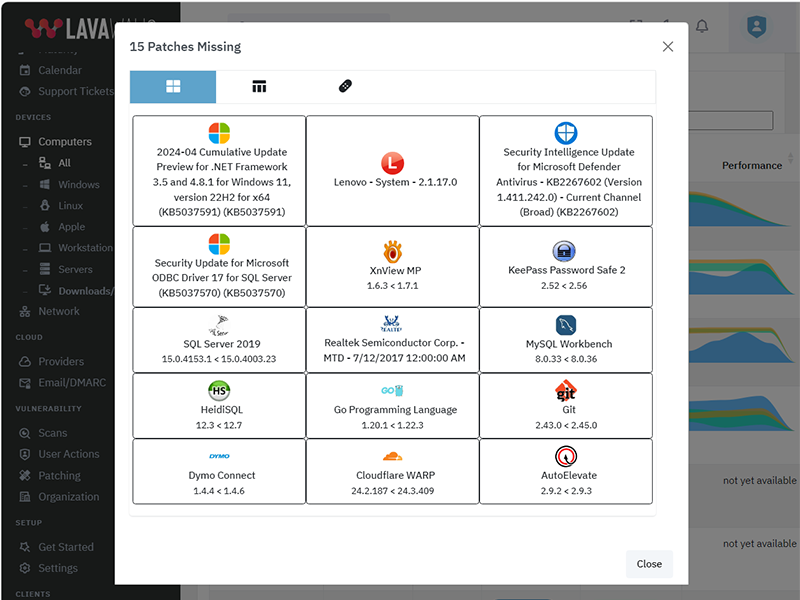
The above listing includes products that Lavawall® monitors through public information and/or proprietary statistical analysis.
Although we do have a partner relationship with some of the listed products and companies, they do not necessarily endorse Lavawall® or have integrations with our systems.
Learn More

Flexible Term; Flexible Service
Flexibility for your dynamic business
You need to get your arms around compliance and security and don't want to get locked into “high watermark” monthly invoices or multi-year contracts.
Pay-as-you-need monthly pricing
DIY, full management, and coaching options
CMMI, PCI, SOC2, Canadian Cybersecurity, Minimum Viable Secure Product, and other compliance support
Choose the plan that's right for you
Simple pricing. No hidden fees. Advanced features for you business.
Month
Annual
Get 2 months free with Annual!
DIY
Security-focused RMM
C$3.25 /computer/Month
C$32.50 /computer/Year
-
1 computer
or 1 of the following cloud integrations:
AWS, Axcient, Connectwise, Datto, Google, Huntress, M365, Sophos Central integrations
(each integration counts as 1 computer) -
150+ application patches
-
30-day Logs
-
Security configuration monitoring
-
Anomaly detection
-
CMMI, MVSP, CyberCanda compliance
-
Lavawall® support
-
Sophos MDR: C$13.50/desktopSophos MDR: C$162/desktop
-
Huntress: C$5.40/deviceHuntress: C$64.80/device
-
Available white-label support for end users
-
Level 3+ IT support for IT
-
Weekly IT coaching sessions
Managed Security & Support
Unlimited end-user support
C$160 /user/Month
C$1,600 /user/Year
-
1 computer/user
Additional devices charged at DIY prices -
AWS, Axcient, Connectwise, Datto, Google, Huntress, M365, Sophos Central integrations
-
150+ application patches
-
90-day Logs
-
Security configuration monitoring
-
Anomaly detection
-
CMMI, MVSP, CyberCanda compliance
-
Lavawall® support
-
Sophos MDR Essentials
-
Huntress
-
White-label email and phone support for end users
-
Level 3+ IT support for IT
-
Weekly IT coaching sessions
-
Automatic discount and upgrade to Support & Coaching after 15 users
Support & Coaching
Improve your IT performance
$2,250 /Month
$22,500 /Year
-
25 computers included
Additional computers charged at DIY prices -
AWS, Axcient, Connectwise, Datto, Google, Huntress, M365, Sophos Central integrations
-
150+ application patches
-
90-day Logs
-
Security configuration monitoring
-
Anomaly detection
-
CMMI, MVSP, CyberCanda compliance
-
Lavawall®-only support
-
Sophos MDR Essentials
-
Huntress
-
White-label email and phone support for 15 users included Additional: C$150/user Additional: C$1,500/user
-
L3 IT support for IT
-
Weekly IT coaching sessions
Frequently Asked Questions
If you can not find answer to your question in our FAQ, you can always contact us or email us. We will answer you shortly!
General Questions
- Two years after a missing Plex Media Server led to the LastPass breach, the
Remote Monitorign and Management (RMM) tools availabel for Manged IT Service Providers (MSPs)
still didn't monitor for it.
Going through industry-specific applications, we noticed many were missing from the big RMM and patching providers. MSPs, insurance providers, and organizations that put their cleints at risk need to know about these risks, which lead to the largest number of critical audit findings and breaches - After 20 years of writing the same audit findings about system configurations, Payment Card Industry (PCI) compliance, and missing patches, our technical co-founder wanted to make it easier fo avoid these findings
- The existing risk visibility tools for insurance underwriters took a shallow look at Internet-facing risks. They -- along with all businesses -- need a deeper view of the threats that could actually lead to breaches.
- Domain risks
- Operating System (OS) patches
- Application patches
- Network vulnerabilities
- Cloud vulnerabilities
- OS configurations
- Axcient*
- Cloudflare
- Connectwise Screen Connect
- Datto RMM
- FreshDesk*
- Huntress
- Microsoft 365
- Panorama9
- ZenDesk
You can use your own logo for the console and notifications. You can also use a CNAME to automatically brand your console.
Note: you cannot currently re-proxy the CNAME to Lavawall® through Cloudflare.
Privacy & Security
However, we do allow passwords and use passwords as part of the zero-knowledge encryption for your clients' sensitive data, such as Bitlocker keys and Personally-Identifiable Information (PII).
These passwords use Argon2id slow hashes with individual salts and peppers.
We have added an additional secure tunnel that mimics the TLS process within the public TLS tunnel. This extra tunnel provides authentication and privacy for the workstations and the Lavawall® servers to prevent attacks such as the one that took down Solar Winds.
Remote access is not enabled for read-only and audit situations.
Get In Touch
Have a quick question and don't want to talk? Send us a quick note with the form below and we'll reply within one business day.
NW Calgary:
ThreeShield Information Security Corporation
600 Crowfoot Crescent N.W., Suite 340
Calgary, Alberta
T3G 0B4
SE Calgary:
ThreeShield Information Security Corporation
105, 11500 - 29th St. SE
Calgary, Alberta
T2Z 3W9
Canada

